











FOCUS ON St David’s College BUILDING CONFIDENCE IN WALES








































FOCUS ON St David’s College BUILDING CONFIDENCE IN WALES


































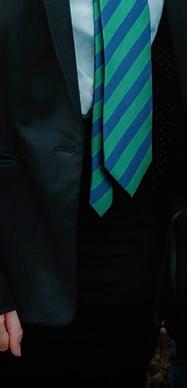









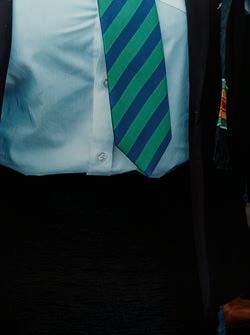




















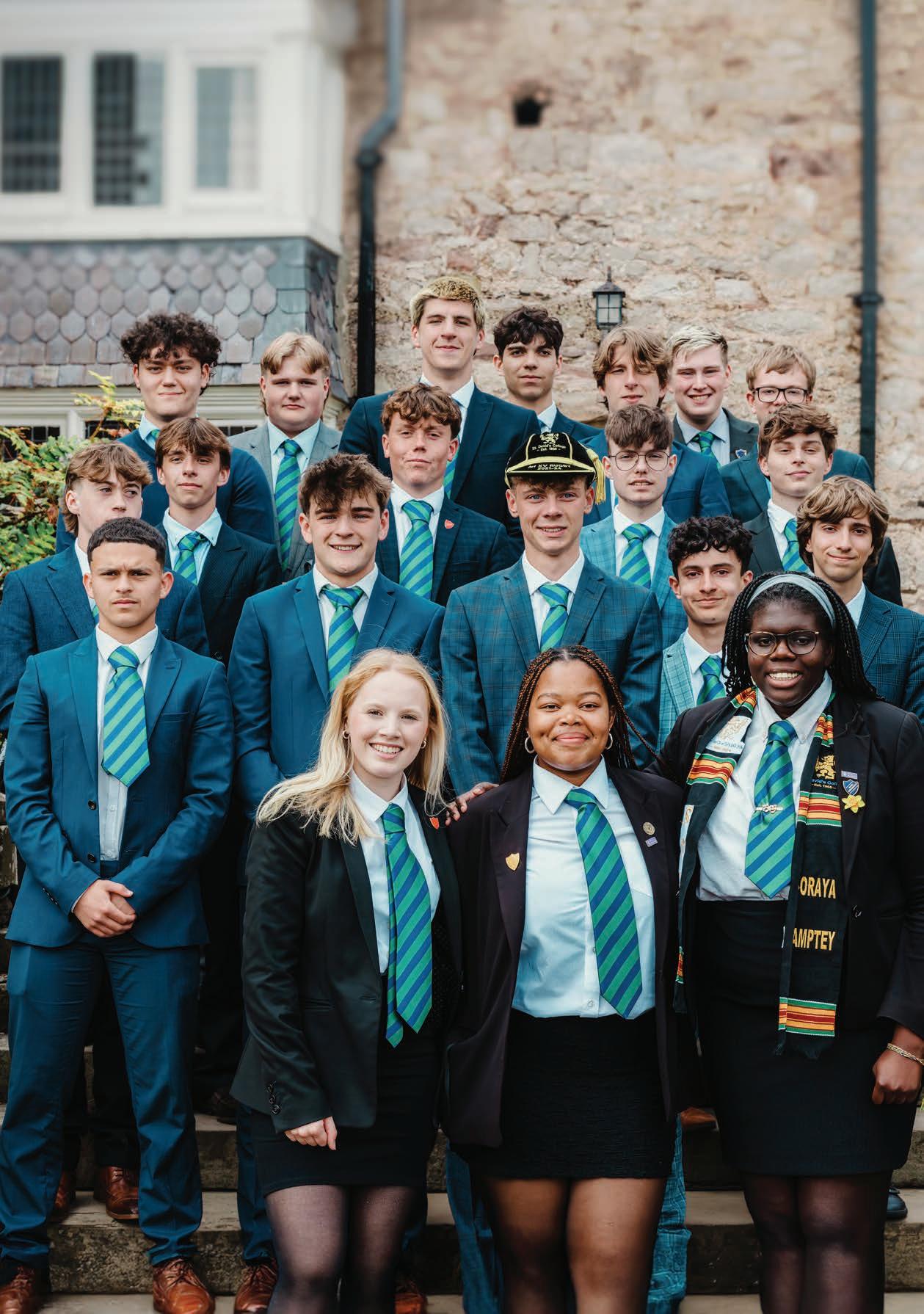
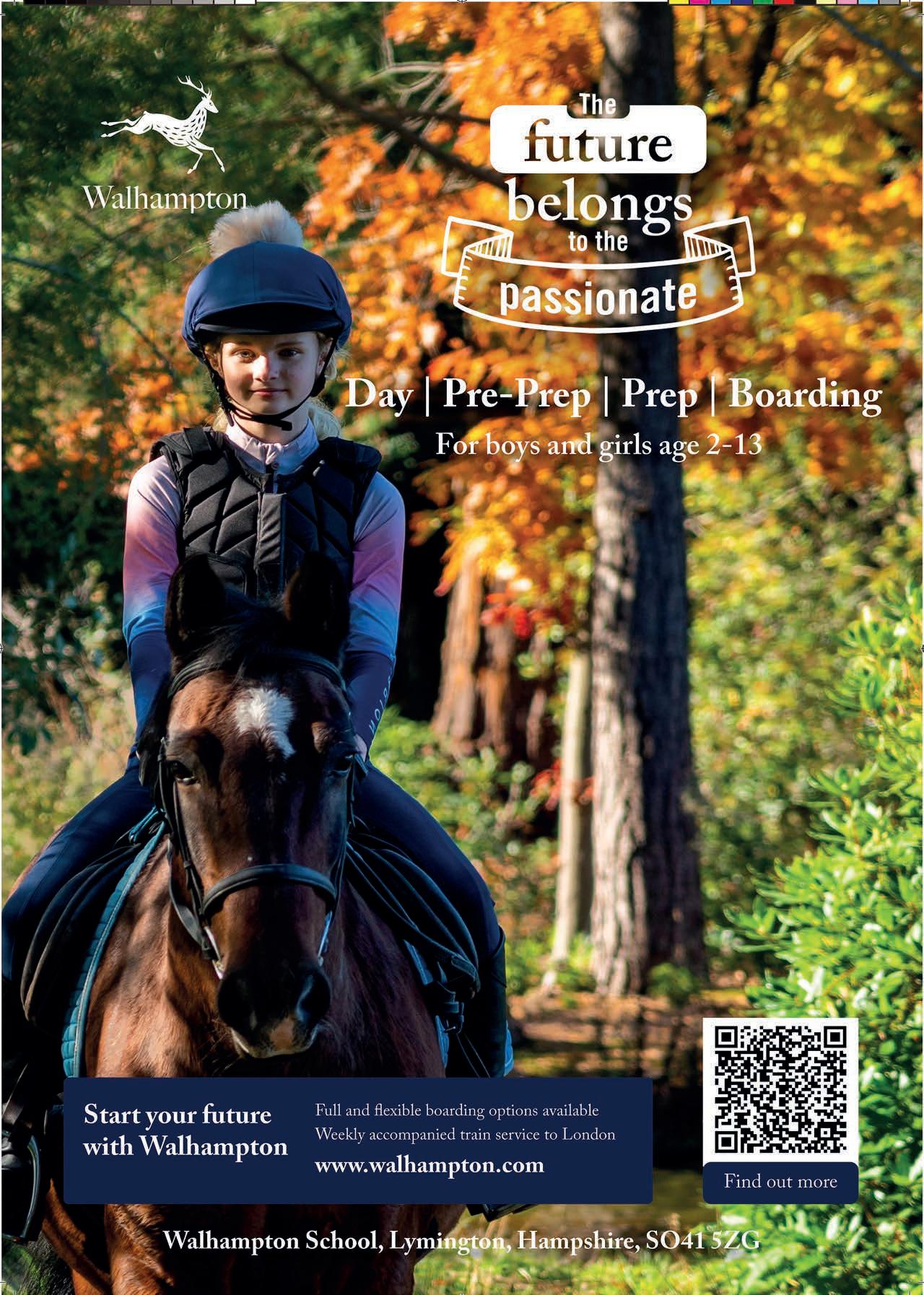





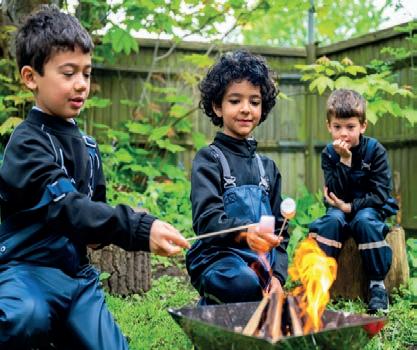
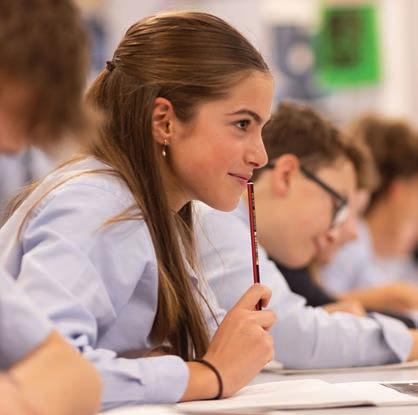

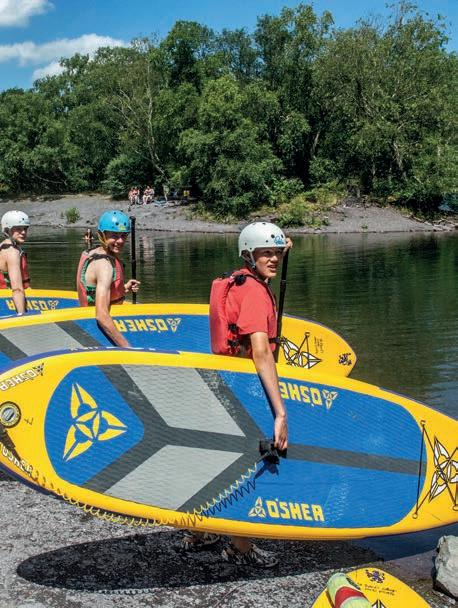
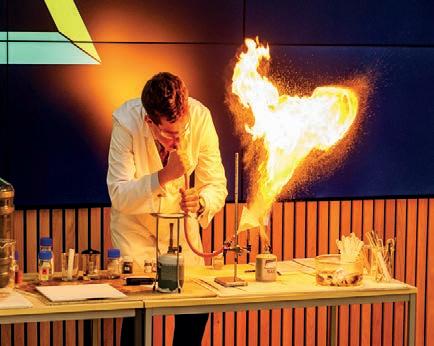

Pawel Kuba
SENIOR
Suzette Scoble
MIDWEIGHT
MAGAZINE
Mariana Suzuki
MARKETING
FINANCE
Jerrie Koleci
James Fuschillo
PUBLISHING
Sherif Shaltout





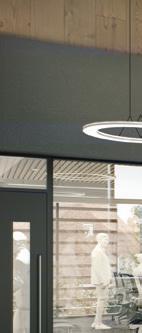







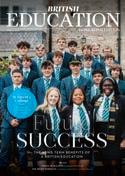
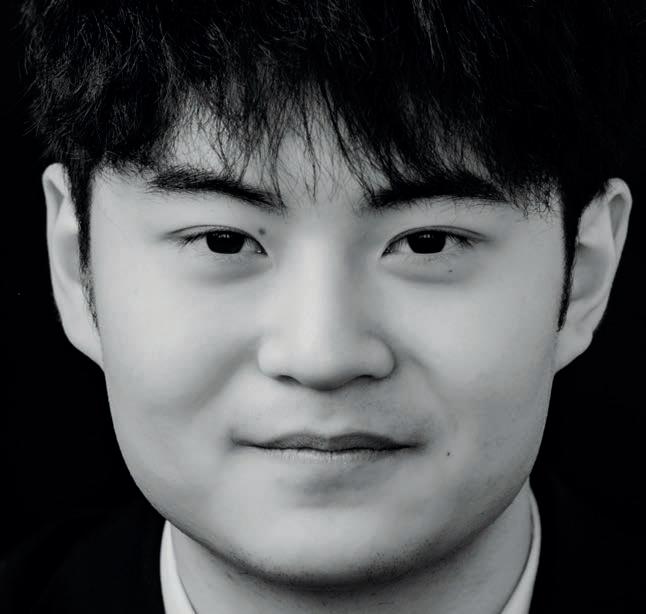


Education is so much more than academics, as we all know, and learning for life beyond school has become a strong theme of this issue.
We talk to five schools about how they build a spirit of resilience from earliest years (page 34) and find that all of them focus on showing children how to recover from failure. Learning how to
that we adults are the ones who have to wise up and undo some of the damage. We could start by restricting our smartphone use in front of our own and others’ children. Going smartphone free for a while might be as liberating for us as it is for them.
This year, Academic Asia is celebrating 45 years of bridging the gap between parents in Asia and schools in the UK. They are hosting the regular UK Schools Expo in Hong Kong this spring,
“LEARNING HOW TO PICK OURSELVES UP AND HAVE ANOTHER GO IS A LIFE LESSON BEST TAUGHT EARLY”
pick ourselves up and have another go is a life lesson best taught early.
Smartphone use by children has risen up the educational agenda dramatically in recent times, but some schools have been way ahead on this. The Head Master of Rugby explores the twin issues of smartphones and ‘safetyism’, which schools such as his work to overcome (page 23).
Indeed, when it comes to smartphones, I can’t help but think
and the show is a wonderful opportunity for parents to discover more about British education. Deciding whether moving abroad to go to school is right for your child can be a fraught process, and access to sound advice is key. Anyone considering this journey for their child will be in safe hands with the team of experts at Academic Asia.
Libby Norman EDITOR






Deputy Head, Millfi eld
James has a BA in History and a PGCE from the University of Reading. He began his career in 1995 teaching History and Politics at Epsom College, later expanding his role to include the Marketing Department and establishing of Epsom Malaysia. James oversees student enrolment at Millfield Schools, public benefit, and international campus development.
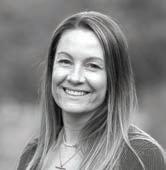
Deputy Head, Pastoral, St George's Ascot
Helen Simpson graduated from Exeter University with a PE and Geography teaching degree. Before undertaking her role as Deputy Head Pastoral at St George’s she worked and lived at LVS Ascot, a co-educational day and boarding school. In this issue, he highlights the ways that schools can embrace the digital age.

Global Director, MPW Group
James Barton studied Archaeology and Ancient History at Warwick, followed by an MA in Performance Philosophy. Working in education for over 15 years, he has authored Trotman Getting Into... guides, as well as giving talks to, among others, TEDx and How To Academy. In this issue, he talks about the current challenges facing independent schools.
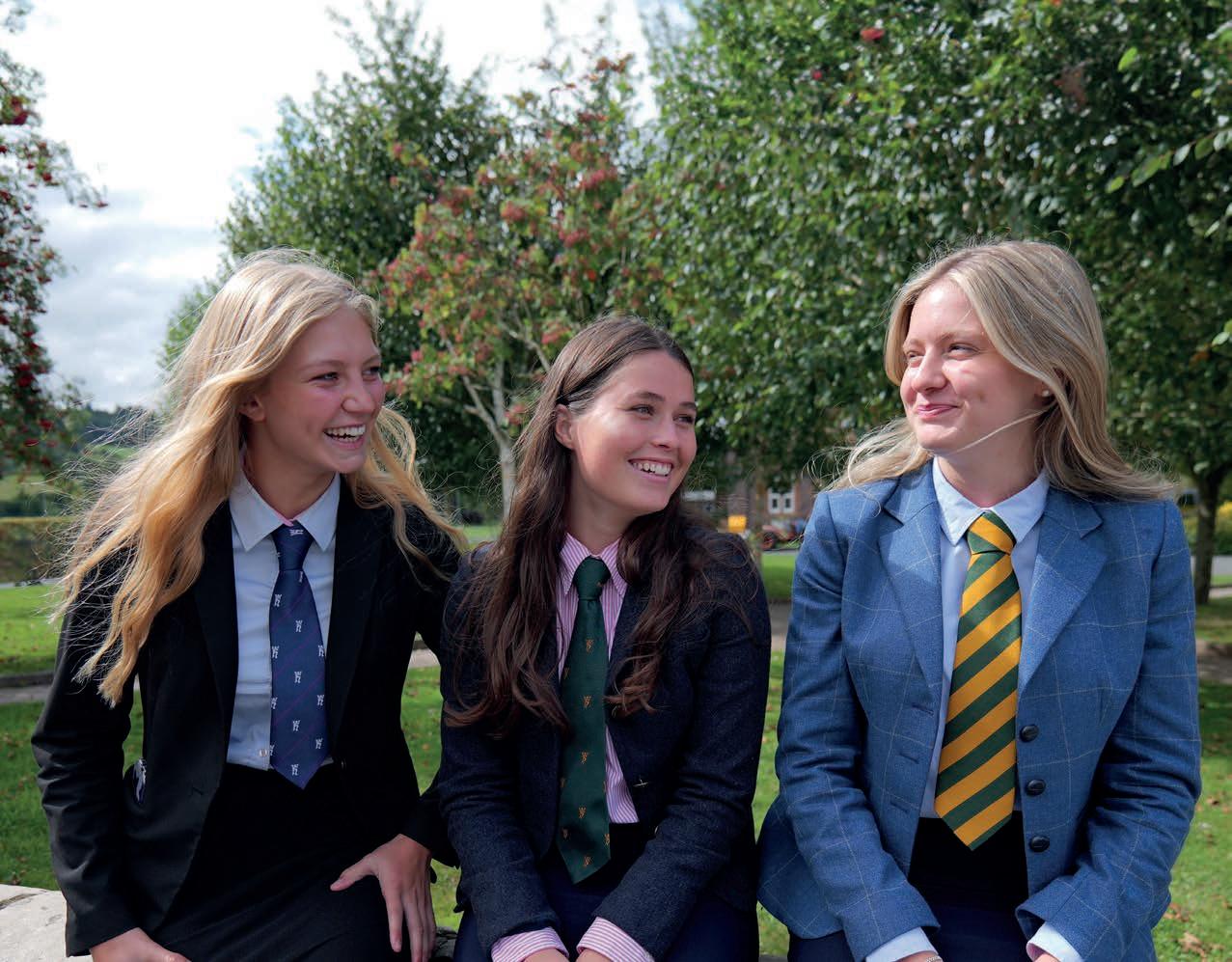

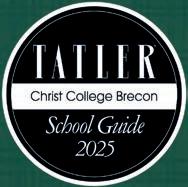

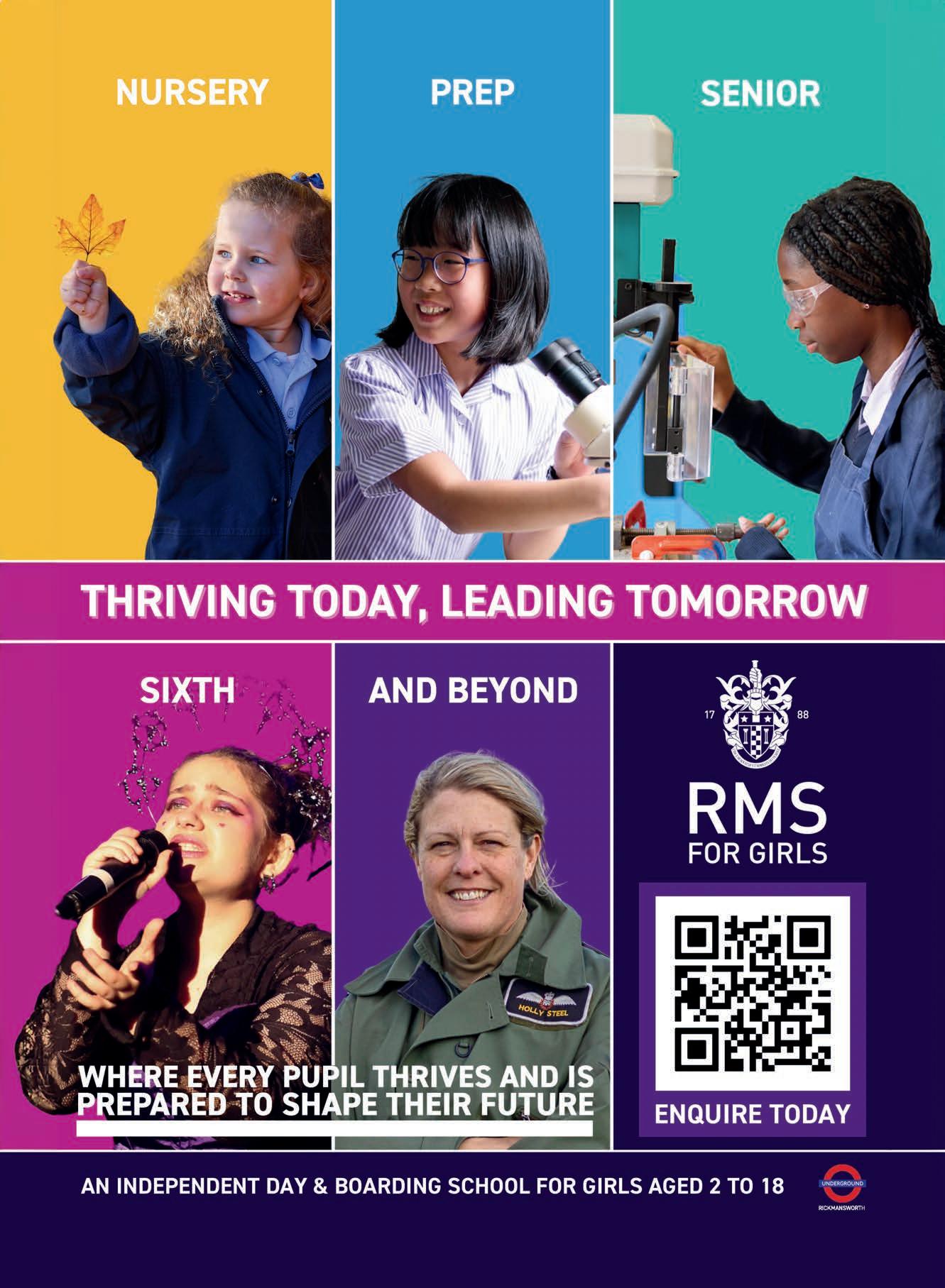
CELEBRATING 45 YEARS OF EXCELLENCE:
ACADEMIC ASIA’S LEGACY IN UK EDUCATION
In 2025, Academic Asia proudly marks its 45th anniversary, celebrating nearly half a century of unparalleled expertise in placing Hong Kong students in UK boarding schools. Established in 1980, Academic Asia has been a pioneer in bridging the gap between Hong Kong families and some of the finest educational institutions in the United Kingdom. Over the years, the organisation has adapted to the evolving landscape of education and the shifting priorities of Hong Kong families.
When Academic Asia first began its journey, the idea of studying in the
Hong Kong parents holding high expectations and demanding personalised solutions that align with their children’s aspirations and talents.
VAT and Its Potential Impact on UK Education
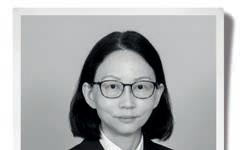

As VAT adds to the already considerable expense of boarding school fees, the sector may see a shift in its demographic. For many Hong Kong families, particularly those aspiring to provide their children with a UK education without excessive financial strain, this development could be a decisive barrier. Academic Asia foresees a future where a ordability becomes a central issue,
“OVER THE YEARS, WE HAVE ADAPTED TO THE EVOLVING LANDSCAPE OF EDUCATION AND THE SHIFTING PRIORITIES OF HONG KONG FAMILIES ”
UK was often tied to improving English proficiency. Decades ago, Hong Kong students were primarily seen as eager learners seeking to immerse themselves in an English-speaking environment, as proficiency levels were generally lower than today. Fast forward to 2025, and the narrative has significantly shifted. Thanks to Hong Kong’s globalised economy, enhanced local educational standards, and widespread English-language exposure, today’s students are entering UK schools with a much higher command of the language. This evolution means that the original niche of studying in the UK to learn English has largely diminished. Instead, the focus has moved towards securing holistic development, academic excellence, and cultural enrichment. UK boarding schools now face a more discerning clientele, with
potentially reducing the diversity of the student body and limiting opportunities for talented individuals from ordinary families.
A Glimpse into the Future
Academic Asia’s legacy is a testament to the enduring value of international education. As it looks to the future, the organisation rea rms its dedication to guiding Hong Kong families through the complexities of educational choices, ensuring that UK boarding schools remain an aspirational and accessible pathway for students seeking to unlock their potential.
Battie Fung MANAGING DIRECTOR
ACADEMIC ASIA
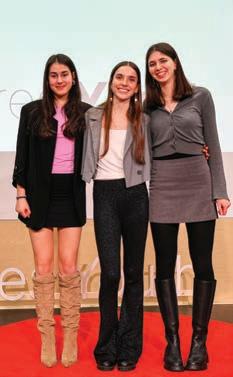
Three IB Diploma students at St Clare’s, Oxford hosted a world-renowned TEDx event, presenting an evening of talks relating to the theme of ‘Questioning the Norm’ to spark deep discussions in their college community. Tina Tafur, Amelia Griffith and Ava May Simon put the spotlight on eight selected student speakers, with topics ranging from the importance of saying ‘no’ to how maths could solve global challenges. The videos are published on the ‘TEDx Talks’ YouTube channel.
St Dunstan’s Education Group and The Villa School & Nursery have a new partnership, giving children at The Villa the opportunity to transition to St Dunstan’s schools at 7+. St Dunstan’s Head Nick Hewlett says: “Parents will now be able to benefit from the new partnership without the worry of a stressful 7+ experience”.


Headington Rye Oxford brought F Scott Fitzgerald’s iconic ‘The Great Gatsby’ to life with a dazzling mix of drama, romance and tragedy through four sold out performances. There were over 70 pupils involved in cast and crew, with over 50 of those being in the cast. Choreography, live music and direction were all provided by pupils.
Bella, age 10, from Walhampton Prep School, won the Young Geographer of the Year. An international award, from The Royal Geographical Society, where children are encouraged to think creatively and analytically about geographical themes. Bella’s beautifully illustrated poster highlighted the range of issues that studying geography encompasses.









Wymondham College U14 touch rugby team were delighted to visit Twickenham, after winning the England Touch 2 Twickenham competition. The prize was to play rugby in front of the 80,000 crowd before the England vs South Africa game. The students also carried the England banner onto the pitch before the match.
“Mentoring someone is not creating them in your own image, but giving them the opportunity to create themselves”
STEVEN SPIELBERG
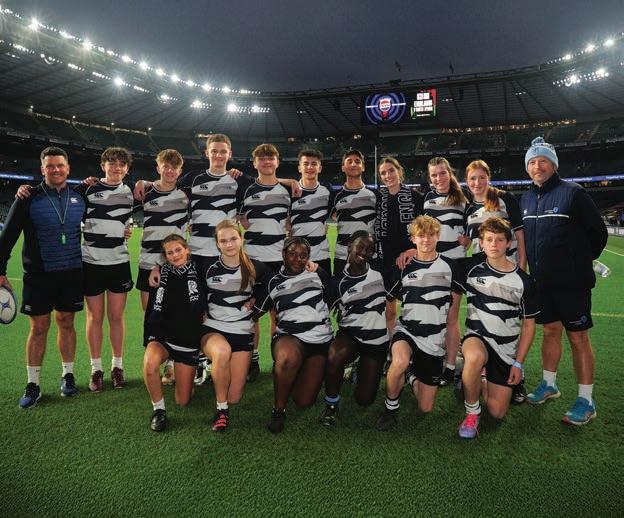

First News relaunched its Look Up! campaign in September, to remind young people of the dangers of phone use around roads. Last year, over 4,500 pedestrians aged 15 and under were injured – that’s a classroom each week. The assembly pack reminded children to put phones away and avoid being a SMOMBIE (smartphones + zombies).

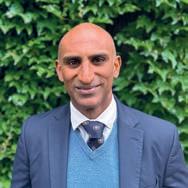
Emanuel School has appointed Ravi Kothakota as Head from September 2025. Currently Deputy Head: Pupils, he says: “I am delighted to be given the opportunity by the Governing Body to build on the exceptional work of Rob Milne, leading Emanuel towards an exciting future”.
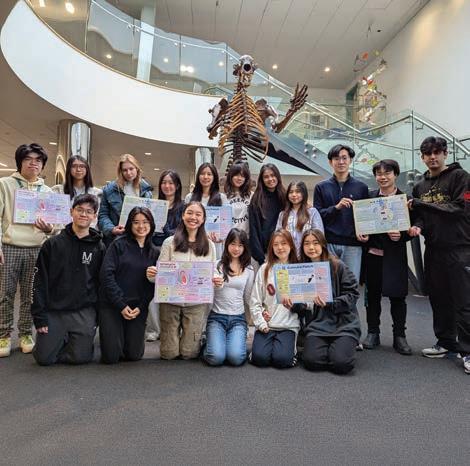

Science was out of this world for boys at Shrewsbury House School when they celebrated World Space Week in October. They were able to step inside a mobile planetarium and journey through the cosmos. The Surbiton prep is also celebrating as its Executive Head Joanna Hubbard (pictured) recently picked up a ‘Best Head of a Prep School’ award.

won







From January 2025, Sibford in Oxfordshire, will open a second boarding house for boys. Penn House will be for Years 7 to 13 and is undergoing renovation to ensure a comfortable living environment. Sibford School offers full, weekly and fl exi boarding options for students from age 11.













Students at Concord College have been celebrating a double win in the Imperial College Science in Medicine competition. Teams from Concord won both the Heart Category with their “Optogenetic Pacemaker” project and the Lung Category with “Air Patch” designed to help in asthma care.

























that





“The only advice... is to not be that person giving out unsolicited advice based on your own personal experience”




REI KAWAKUBO






“WHAT’S INTERESTING ABOUT COLLABORATIONS IS THE POSSIBILITY FOR ONE PLUS ONE TO EQUAL THREE ”

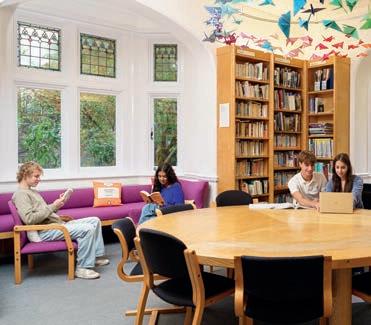
Advancing international education and understanding
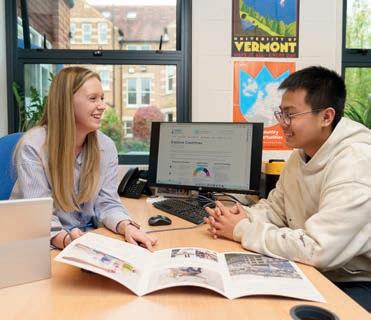
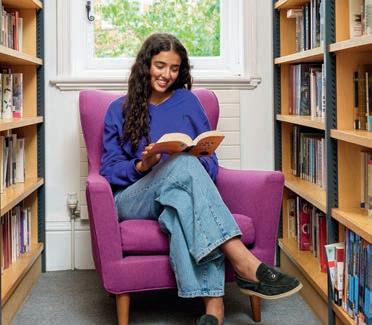
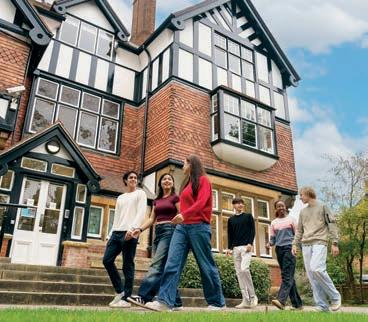
Where aspiration and ambition meet knowledge and experience
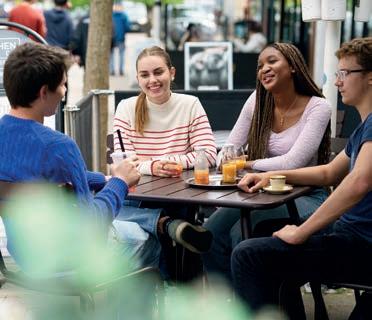
CO-ED DAY & BOARDING SIXTH FORM
In the top 10% for student progress of UK IB schools
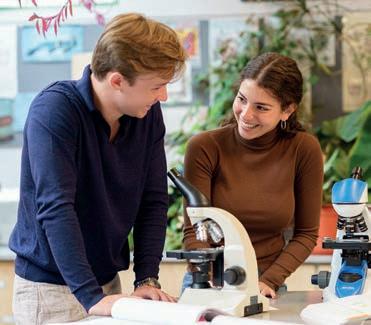

Our teachers write the textbooks and teach the teachers of the future

NEXT OPEN DAYS
17 May 2025 (virtual)
20 September 2025 (in-person)
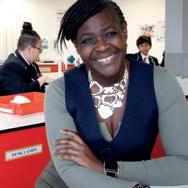
Dame Maggie Aderin-Pocock and Professor Brian Cox have joined with The Royal Society in the latest round of Brian Cox School Experiments. Designed for students aged 11-14, the videos are located on the Royal Society’s YouTube channel and explore robotics for astronauts, microplastic pollution, and green energy for sustainability.
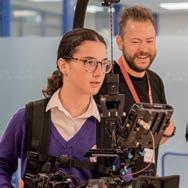
Students at Queen Ethelburga’s Collegiate (QE) gained firsthand experience from experts in the creative industry in a day of workshops from NM Productions – which is led by former QE student Anissa Payne. Workshops included direction, storyboards, makeup and special effects, plus set design.



Cathedral Choristers from CCCS, Oxford went on tour to California at the end of the summer term, singing at concerts, services and alumni events in LA, San Francisco, Palo Alto and Monterey.
“The boys sang brilliantly throughout,” says Sophie Biddell, Director of Music.
“The boys sang brilliantly throughout,” says Sophie Biddell, Director of Music


“The belief that the world is getting worse, that we can’t solve extreme poverty and disease, isn’t just mistaken. It is harmful”
BILL GATES


It’s been an exciting start to the academic year for Worth School. The Catholic co-ed located between London and Brighton welcomed Marisa Bosa as Senior Deputy. It is also celebrating two recent accolades as a Best Boarding School of the Year fi nalist and for Best Alumni Mentoring.















The Downs Malvern’s outdoor programme – with smallholding, farming club, market garden and fruit-tree planting – helped it scoop Small Independent School of the Year award, with its TDM Baccalaureate also receiving praise. The prep won Best Wildlife Garden at the RHS Spring Show and a Best Eco Initiative recently.

MUCH AS TALENT COUNTS, EFFORT COUNTS TWICE”
ANGELA DUCKWORTH
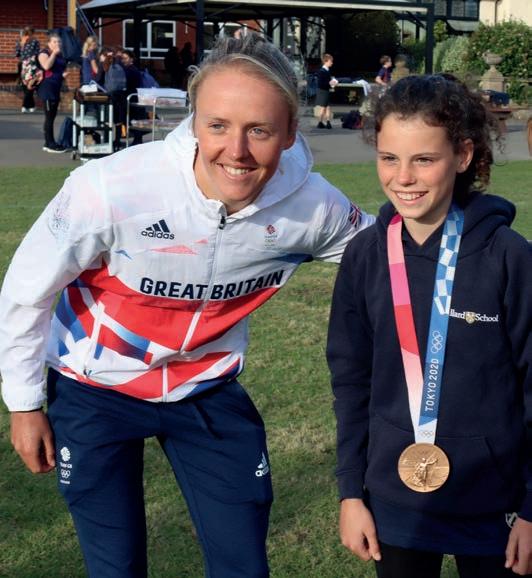
Hanford Year 7 pupil Fleur won the fi nal of the Shetland Pony Grand National at the recent Moreton Show. Fleur was also named ‘Rider of the Day’. She was cheered on by her team, Cherhill Shetlands, which races all over the country to raise money. This year’s charity is the Bob Champion Cancer Trust.
Four Ballard School, Hampshire alumni competed at the Paris Olympics. Rower Matt Aldridge won bronze in the men’s coxless fours. Emma Wilson (pictured) won her second windsurfi ng bronze in the iQFoil class. Sailor Hannah Snellgrove won two ILCA class races in her sailing debut, while Tim Nurse played for Team GB hockey.

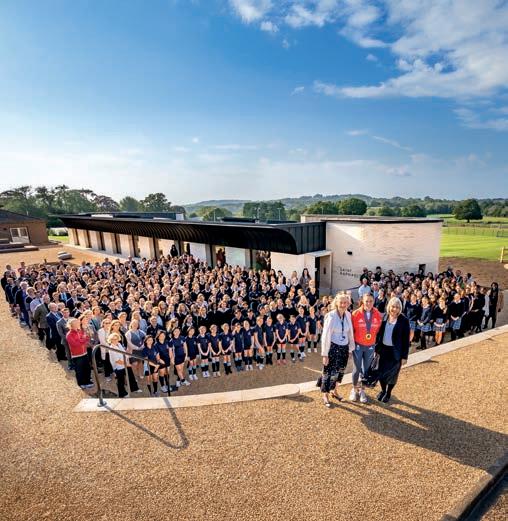
Mayfi eld School welcomed back former pupil and Olympic rowing champion Emily Craig to open its new Wellbeing Centre, St Raphael’s. The centre is a hub for support, with nurses, a counsellor and Wellbeing and Pastoral teams on site. She spent the day with students, sharing her Olympic journey, from narrowly missing out in Tokyo to a Gold in Paris.
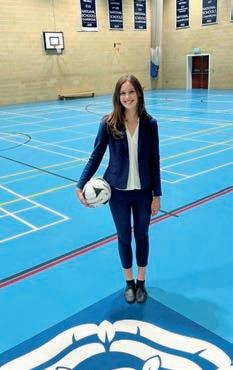
Year 13 Berkhamsted student Evie L has been selected for the England Netball Roses Academy for the 2024/25 season. She is one of only 23 selected for regular training camps in Loughborough. These are led by Roses Pathway Head Coach Sonia Mkoloma and support athletes on the journey to being potential senior England internationals.
“Evie is one of only 23 students selected for netball training camps in Loughborough”




“You can’t live someone else’s expectations in life. It’s a recipe for disaster”
BEAR GRYLLS

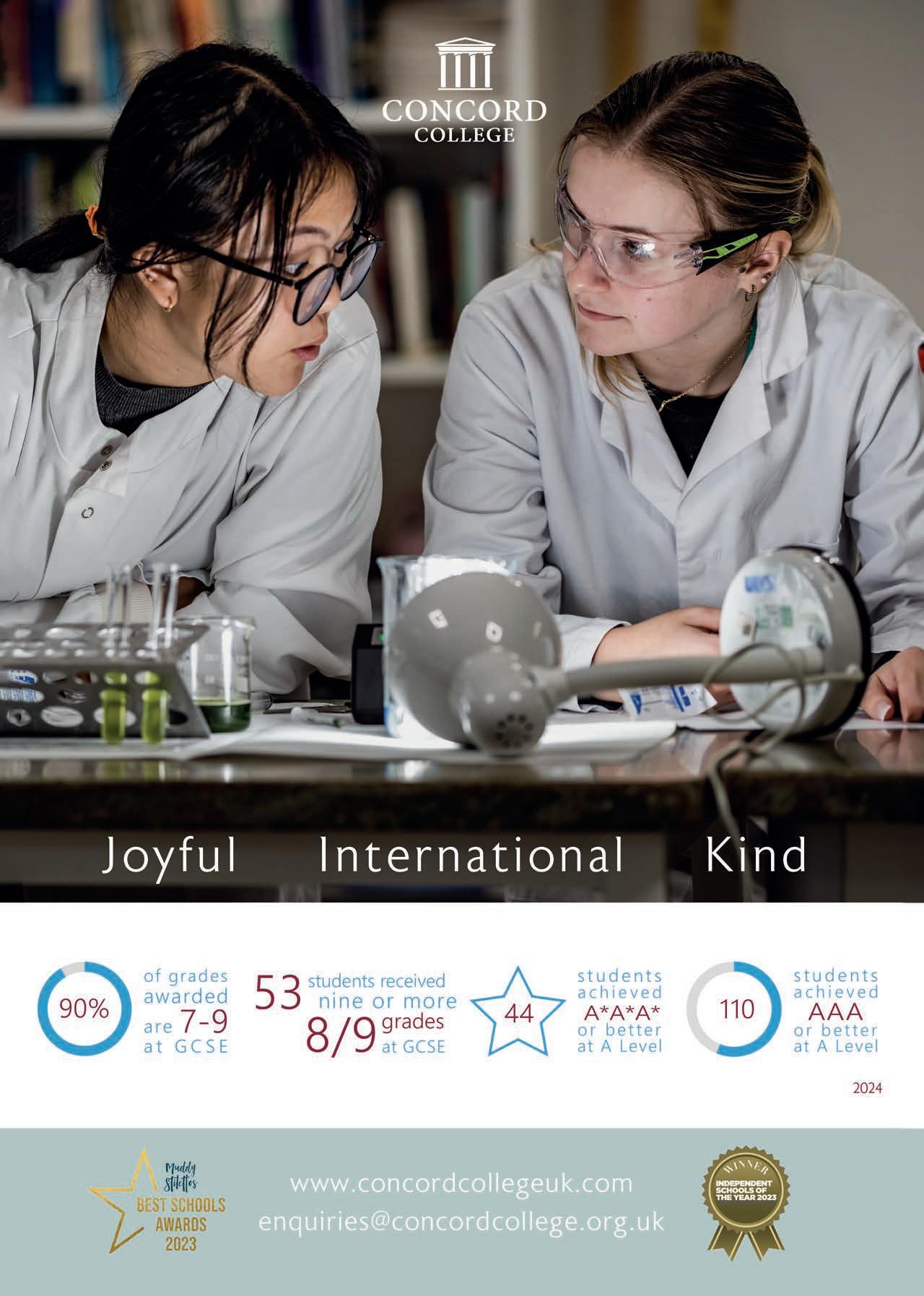
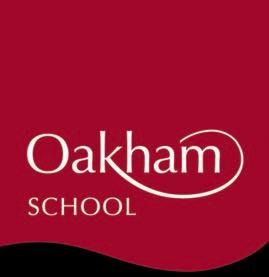
Join us at an or get in touch to arrange a visit that suits your schedule.




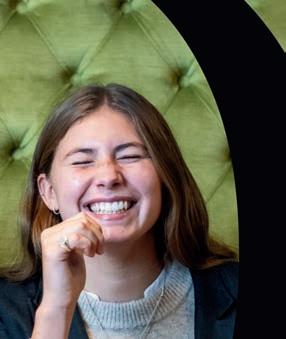












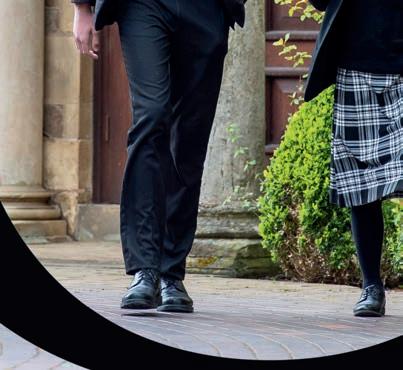









@oakhamschool
@OakhamSchool
@Oakham School
Scan to arrange your visit: oakham.rutland.sch.uk






















Arrange a visit to about
Arrange a visit to about our high-achieving, co-educational boarding and day school, where pupils aged 11-18 learn, grow and thrive in the heart of rural England. discover more














The Faculty of Queen Ethelburga’s takes the win for ISA Senior School of the Year
The Faculty of Queen Ethelburga’s, one of the two senior schools from Year 10-13 at Queen Ethelburga’s Collegiate, has been awarded the prestigious title of Independent Schools Association - Senior School of the Year. The ISA Awards are held annually, celebrating success in independent education and they recognise the breadth and quality of provision within the sector.
QE Faculty combines academic excellence with the opportunity to also pursue a more vocational and creative approach to studies and aspirations. QE Faculty o ers both A Levels and BTECs giving a diverse and flexible curriculum.
Speaking of the awards, the ISA judge’s comments were as follows: “QE Faculty wins this award because its application shows the clear cause and e ect between
a range of innovatory strategies and the intended outcomes in two areas of the Faculty’s work. The flexibility of a twin A level and BTEC qualification o er, the provision of structured opportunities for developing excellence in sport and dramatic arts, and the innovatory Esports BTEC provide excellent opportunities for students with diverse backgrounds..... to excel. The use of several student profiles to showcase the e ectiveness of QE’s approach was highly e ective.”
This flexibility within the QE Faculty curriculum allows students the time and the opportunity to pursue community action, or to invest increased time in an area of particular talent. A specific example is allowing A Level students performing to a high level in sport to have time built into the curriculum, which provides them with structured opportunities to dedicate time to their sport by accessing the incredible Performance Sport Pathway. The impact
of this decision, which gives students in Year 12 an additional five hours a week for their sporting development alongside four AS levels, means they have a high level of aspiring athletes within the QE Faculty student cohort. The importance of providing each student with a curriculum that suits their interests and talents leads to strong outcomes for the students academically. QE Faculty supports the aspirations and ambitions of all of its students from Oxbridge applications, to professional sport, to entrepreneurship, to performing on the stage. QE
Faculty aims to get the best from students by finding an academic pathway that brings out the best in them, in whatever area that may be.
ISA senior schools are among the best in the country. To be the ISA Senior School of the Year, applicants had to demonstrate how the school makes a positive di erence to the outcomes of the pupils in its care. The QE Faculty philosophy has a fixed focus on academic excellence and preparation for the future but with an emphasis on maintaining a sense of creativity and fun – and gives more options to students, their individual talents and how they want to shape their personal development during their time at QE.
The award comes hot on the heels of Queen Ethelburga’s College, the second QE Senior School, taking sixth place in The Telegraph Best Private Schools in the UK by A Level Results 2024 and The Times Independent School Exam Results.

BUILDING CONFIDENCE 20 INTERNATIONAL PARTNERSHIPS 25
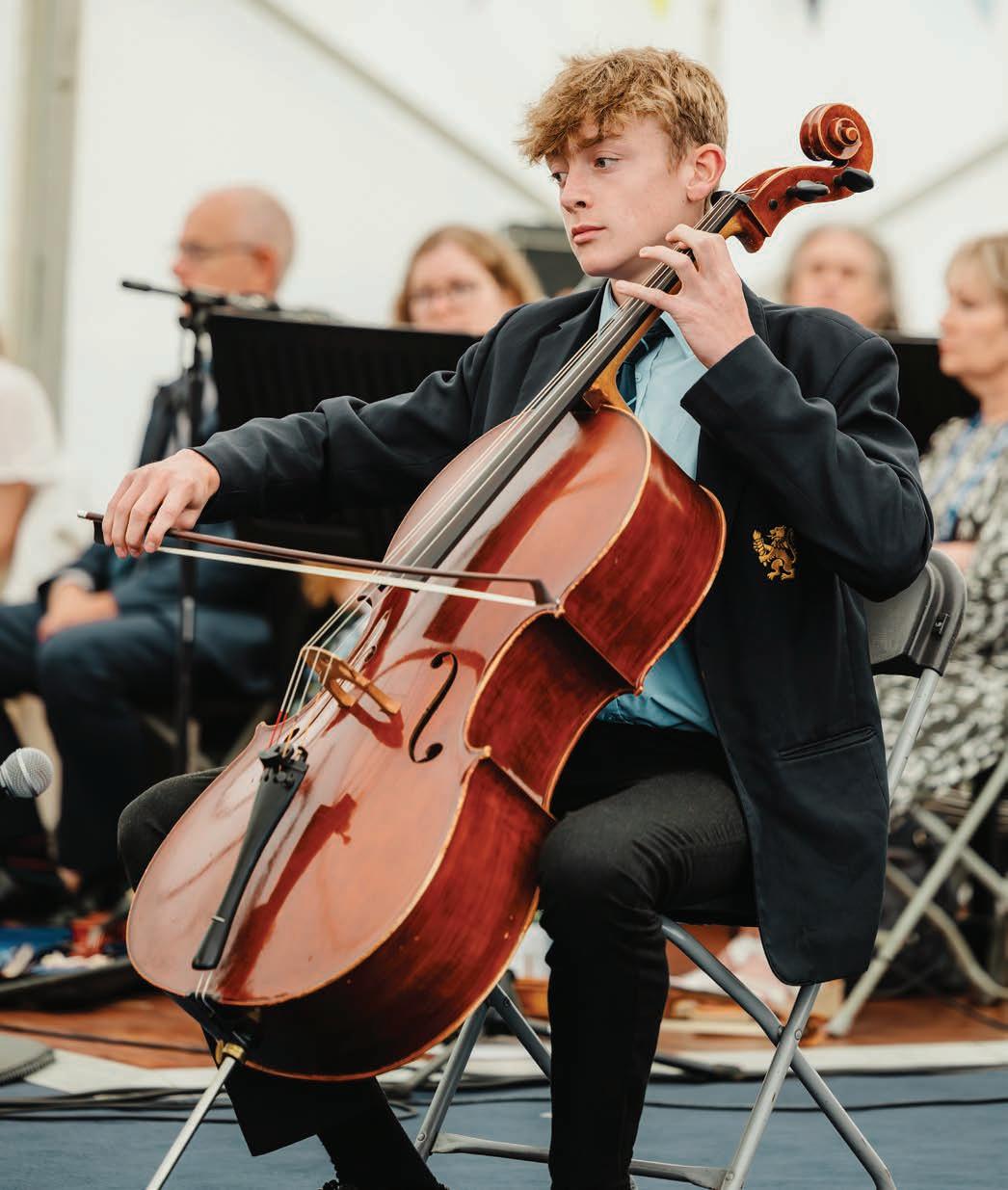
At St David's College, music professionals provide over 50 private classical and contemporary lessons a week to all ages in voice and a wide variety of instruments. See page 20
With small class sizes, exceptional learning support and an active lifestyle, St David’s College helps all pupils shine
Many independent schools o er exceptional surroundings and small class sizes, but St David’s College in Llandudno, North Wales is one of a kind. It was established in 1965 by a forward-thinking educator John Mayor. He had been working in a school on the Wirral and identified many pupils who were highly able verbally but not on paper. He sought advice from Professor Tim Miles, a pioneer in dyslexia research, and the end result was St David’s.
In a letter describing the school’s founding vision, Mayor wrote: “We shall aim at sound scholarship, we shall pursue prowess at games, we shall encourage a love of the beautiful and of creative skills”. St David’s also aimed to be character forming and retains those Christian principles today, while welcoming all faiths.
Today the school educates boys and girls from 9 to 19. It is well known for its specialism in dyslexia, but around a third of pupils have no specific learning needs. “These pupils improve their added value because if you get a classroom right for dyslexic students you get it right for everyone,” says Dr Faye Favill, the school’s Special Educational Needs Co-ordinator (SENCO. “The lessons are generally more interesting because they are chunks, they are multi-sensory, there is a lot of repetition, lots of preparation.”
Faye Favill has worked at the school for around a decade, and has a daughter
with dyslexia, so knows the extra support that helps from both a parent’s and educator’s perspective. “When I was first on a placement here, I was blown away by the class sizes, the one-to-one specialist provision and just the general knowledge of the teachers in how to make classrooms really inclusive. In our mainstream lessons we have a teacher that has a qualification in the teaching and learning of children with specific learning di culties. Class sizes are really small, so 12 is OK and 15 would be too big. With our less able pupils, there are normally between four and six in the class.”
At the heart of the school is The Cadogan Centre, a learning support resource everyone accesses. This was funded by Lord Chelsea some 50 years ago – a grateful parent whose son had thrived thanks to a St David’s College education. “The Cadogan Centre is like a golden thread that every department links towards – from sport to outdoor education
“Pupils improve their added value because if you get a classroom right for dyslexic students you get it right for everyone”
to more academic subjects,” says Faye Favill. There, specialist support teachers, all with a Level 7 qualification, support children with dyslexia or other types of SEN up to eight times a week. The team now o er a remote service too, increasingly popular with both UK and international students. For all pupils, The Cadogan Centre is part of the learning week. The team deliver literacy and numeracy support and cross-curricular back-up, including personalised help for the able and talented – the brilliant mathematicians who falls down in other areas, for instance. “It’s just



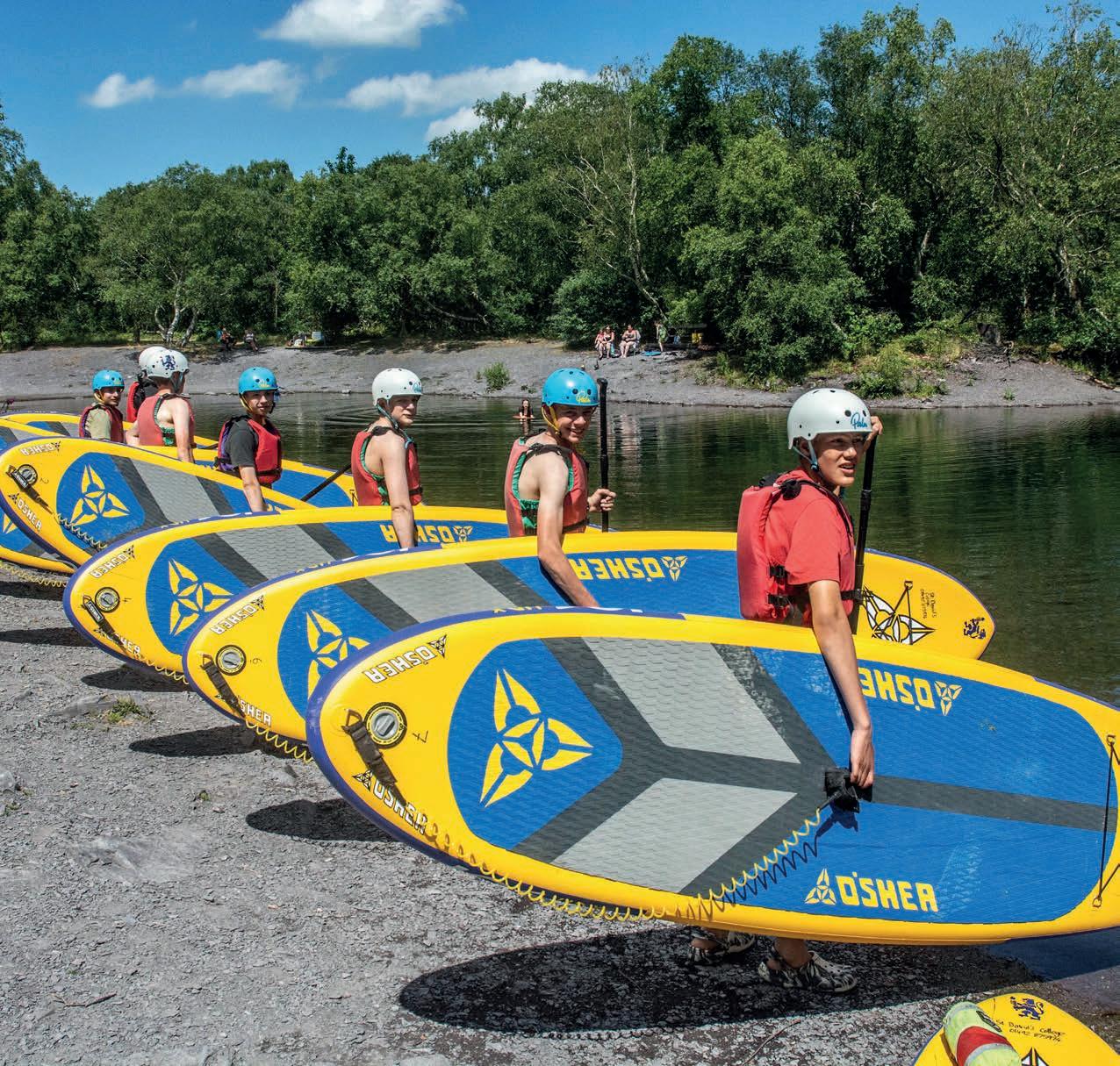


picking up on what they are really good at and developing that self-confidence”. Many children come to St David’s with poor self-esteem, so boosting that is the starting point to unlocking their abilities.
There’s occupational therapy to support students who have specific barriers –perhaps gross or fine motor skills issues, or executive functioning sequencing skills (planning and organisation). Sta also help children who have sensory sensitivity (for instance, to light or noise) to manage symptoms. All children benefit from the kit that comes as standard here, including laptops with specialist software. “It’s a normal way of working,” says Faye Favill. Another successful approach at St David’s builds learning retention. “About
80% of every lesson is repeated in the following lesson, just to ensure that if there are any working memory di culties or auditory processing challenges that information goes into the long-term memory and helps with exams,” says Faye Favill. Teachers are supported in this by The Cadogan Centre specialists, who ensure they deliver learning in creative ways. “Rather than just relying on listening or reading, it’s using a wide variety of senses – and that is an approach that works for all students.”
The school builds both self-esteem and life skills using outdoor education, and it is in the perfect setting for adventures. Being active is part of every school day – it’s a long day, starting at 9am and finishing just
before 5pm – but carefully balanced and with around 80 minutes of sport and physical activity, not including break times. “One day a fortnight the kids go o timetable. They are rock climbing, sailing, kayaking, paddleboarding. It’s a di erent platform there, so someone who is a whizz in the classroom might find that more challenging than a pupil who has got a SEN,” says Faye Favill. At the end of Year 10, children are ready to spread their wings on an even bigger adventure – usually somewhere in Europe –to hone a specific skill such as rock climbing or sea kayaking. “Seeing children in these di erent environments is so important and we do find that our outdoor education programme builds a lot of confidence.”

We are looking to expand our family of high quality, premium schools and are looking to work with partners in new locations.
Over 500 years of academic excellence

Proven success in establishing K-12 schools internationally
Our schools have all achieved strong inspection ratings and prestigious accreditations

Our schools combine the best of RGS Guildford, local cultures andan inspiring UK curriculum 5 schools across UK, Middle East and China
To discuss opportunities email enquiries@rgsgi.co.uk or call +44 1483 880 600. www.rgsgi.com Find
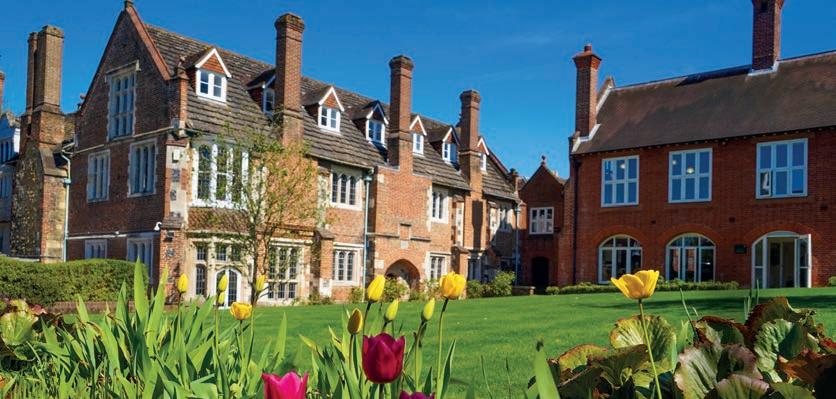
The Head Master of Rugby School on why regulated phone use and unregulated time to play, learn and socialise are vital for our young people
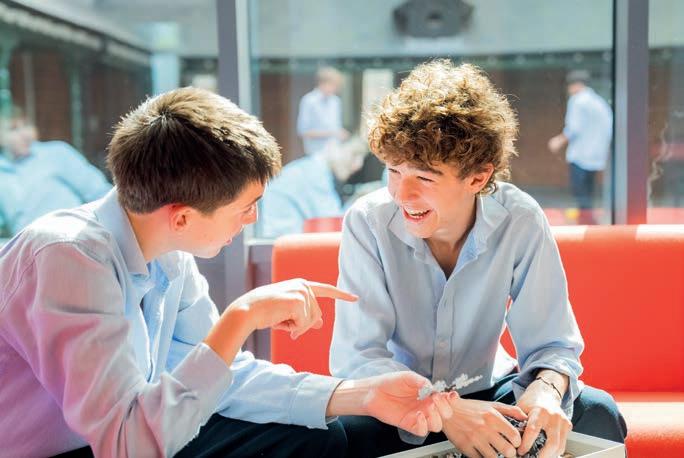
Irecently attended a meeting with 15 CEOs from diverse industries. They were collectively bemoaning the work habits of their Gen Z sta . As the only educationalist in the room, I was blamed for shortcomings in the education system and for its failure to produce su ciently robust employees. The conversation was a jovial one and in more serious moments they did speak positively about this particular age group. Nevertheless, the conversation did bring to mind Jonathan Haidt’s The Anxious Generation Haidt’s book makes two key points. First, unregulated access to smartphones has done and continues to do significant damage to children. Second, a culture of ‘safetyism’, developed over more than 40 years, has produced children who have been mollycoddled and, as a result, are reluctant to take part in adventurous play or to seize opportunities where an element of risk is involved. Haidt’s verdict on smartphones has attracted the most column inches and it
is reassuring that most schools have now imposed restrictions on their use. The impact of ‘safetyism’ has received less attention, but is equally important. Many children born in this millennium have experienced a childhood where perceived risks in the real world have been greatly exaggerated, while the genuine risks of the online world have been ignored. Schools like Rugby provide an antidote to these two modern problems. Smartphones have long been banned from our classrooms, with strict limits on mobile phone use outside the classroom. This allows our students to have more face-to-face interactions with each other and to engage wholeheartedly, and without electronic interruption, in the adventurous group activities where they learn the skills which are so
“Perceived risks in the real world have been greatly exaggerated, while risks of the online world have been ignored”


important for making the most of life at school and for thriving after school. Just as important are the opportunities for the students to have fun and spend unregulated time with each other, busy or not. We have more than 30 student bands, each of which has to find the time to practise and manage the dynamics of group performance. There are informal games of sport long into the summer evenings. Students are learning about collaboration, managing their reactions, forging real-time friendships, discovering what they are good at and what they like doing – without other-world distraction. We can safely and confidently provide these opportunities, organised or not, because we are a full boarding school with the time and space to educate beyond the classroom. Perhaps the most important element of a full boarding school is the House system. Our boarding houses have approximately 50 students with 10 in each year group. There is something magical in the way that 10 students who come together at the age of 13 learn – despite, or perhaps because of, the inevitable squabbles and conflicts – how to live together successfully in a community and absorb the vital life skills that transport them beyond the Gen Z stereotypes presented by my CEO friends.


RGS Guildford on the powerful partnerships successfully forged internationally to bring a top-flight education to more young people
One of the biggest decisions a family will make is where to educate their children.
A long-standing dilemma for many parents has been whether or not to send their children overseas to benefit from a world-renowned international education. With a number of well-respected British schools expanding overseas, parents now have the choice of benefitting from a first-class British curriculum much closer to home.
For organisations such as Royal Grammar School (RGS) Guildford, these alliances go far beyond a British curriculum, high quality teaching and academic success.
They foster a deeper understanding of global cultures, enhance the quality of education, and prepare students for a more interconnected and global future.
With over 500 years of history, RGS Guildford is one of the oldest schools in the UK and is well known for its academic excellence. Its students secure places on highly competitive degree courses at top UK universities. It is also a school that 10 years ago took the decision to expand and has successfully established four schools overseas. Now, there are over 4,000 students within the RGS family.
Bob Ukiah, Chief Executive of RGS Guildford International, says that UK schools can o er many benefits to investors interested in opening schools internationally. “We are tremendously
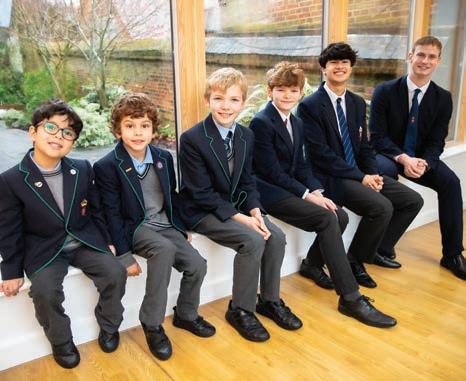
proud to have created thriving schools in Dubai, Qatar, Oman and China. Together with our home school in Guildford, we are an established, successful and flourishing family. All our schools receive impressive inspection reports from the local education authorities, including in Dubai, where RGS Guildford Dubai received the first ever and highest possible ‘Very good’ rating on its initial inspection.”
He adds: “Our family of schools bring together the best of RGS Guildford and local cultures to deliver a market-leading international education for students in every country”. RGS Guildford International believes that a successful expansion overseas is the result of several factors – beginning with well-matched investment partners. This relies on a genuine partnership with investors who have experience of, and an interest in, building and operating premium British international schools in new territories.
Continued involvement and collaboration between the school and operational investor, during the development phase and once open, is essentialto ensure that schools thrive in their local markets. Shared values and ethosare also critical. This guarantees that, despite the distance between them, there is a strong and consistent sense of what it means to be part of the RGS.
It’s a process of continuous collaboration and the community comes together with a wide variety of collaborative events, activities and learning opportunities.Trips between RGS schools take place regularlyand the many nationalities of students are celebrated with an International Day. RGS Guildford International’s vision is to bring the benefits of an RGS Guildford education to an even wider audience, so that more young people can benefit.
If you would like to explore becoming part of the RGS Guildford family of premium schools, contactenquiries@rgsgi.co.ukor call +44 1483 880 600; rgsgi.com
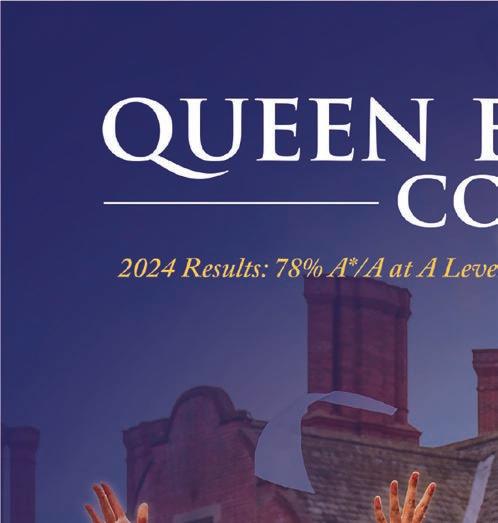
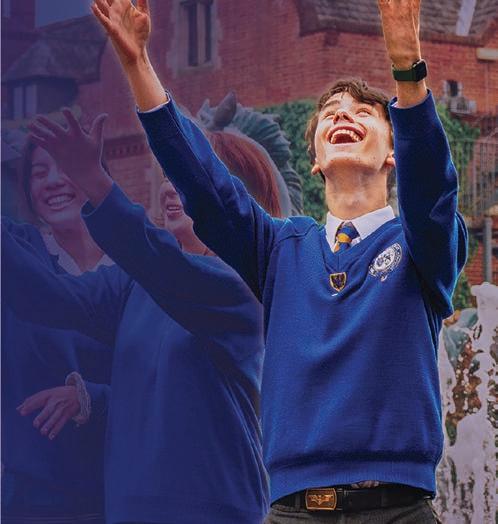
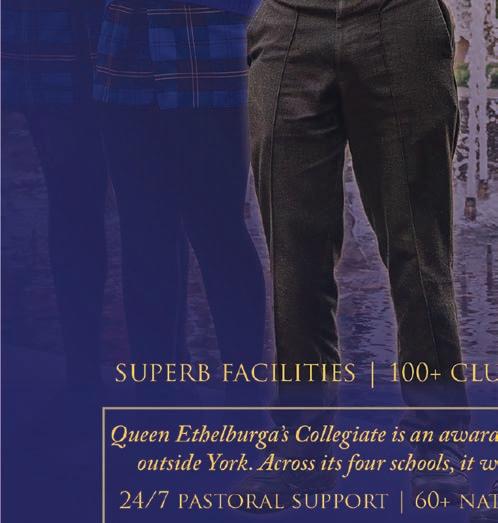

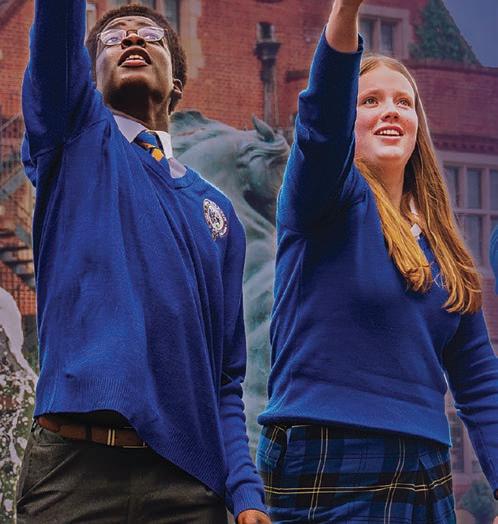
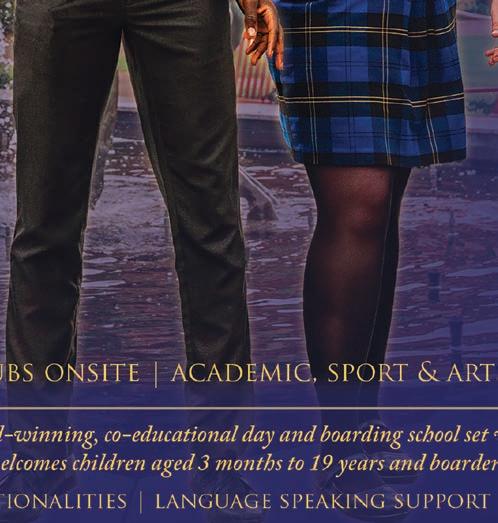



William Brierly of Claremont Fan Court School on the benefits and pleasures of a single location throughout your school days

For the first time in my career, this September, all my schoolgoing children and even my wife will be at the school I lead as Head. Admittedly two of my four are now at university, but I am excited by the prospect of only needing one car and having the same holidays. However, as I commence my seventh year as head of a school that previously had 700 pupils and now has 1,200, my real drive for a single journey is not about the Peugeot 5008, but rather to optimise the learning experience of our pupils, who range in age from 2 to 18. While our historic 100-acre site has its very own folly, a mini castle called The Belvedere (with beauty but little practical use), I was more conscious that the pre-prep, prep and senior school felt like three little communities – metaphorical castles of their own.
It is rare for parents not to see an all-through school as a single school, but it is very easy for its constituent parts to work in silos. Schools need character and there should always be something
refreshing about the next step in a learning journey. But it is easy to overlook the synergies and opportunities of sharing best practice and overlapping planning in making the journey better still.
Claremont has a fantastic flair for creativity, to complement its success in science, the humanities (I could go on). And yet this had been an area where the youngest had not had the benefit of specialist teachers. I could say the same for gymnastics, where our seniors were placed second nationally in the four-piece recently, or about lacrosse. Looking the other way around, our youngest had the benefits of an exciting forest school yet we had not been guiding as many pupils to study degrees in environmental science as you might expect. Thankfully, coding and computing has always been a strength across the site, as are the traditional core subjects, but you can see my point.


“Importantly for an all-through school, working together provides opportunities for mentorship – which supports the youngest and enhances the soft skills of the eldest”
One school journey enables the youngest to find their feet in a myriad of opportunities that they can pursue to become world leaders in if that is their wish. More importantly still for an all-through school, working together provides opportunities for mentorship –which supports the youngest and enhances the soft skills of the eldest. There’s also mindfulness. For instance, helping much younger groups in a tranquil and nonintimidating forest school at lunchtime can be invaluable for a child who might otherwise find school overwhelming.
When we first introduced vertical tutor groups into the senior school, people worried whether the interaction of di erent ages would be beneficial and safe, but it quickly became clear to all that while the lion’s share of schooling is rightly within a single age-group, the sense of community, empathy, and more broadminded understanding we all gain from working with other groups o ers a brilliant education in its own right.


When we take our biannual school photo with the backdrop of the historic mansion it can test the patience to get the very youngest sat down when our ever-growing sixth form have been at the top of the steps for some time, but the outcome speaks volumes. Understanding others is what makes a community.



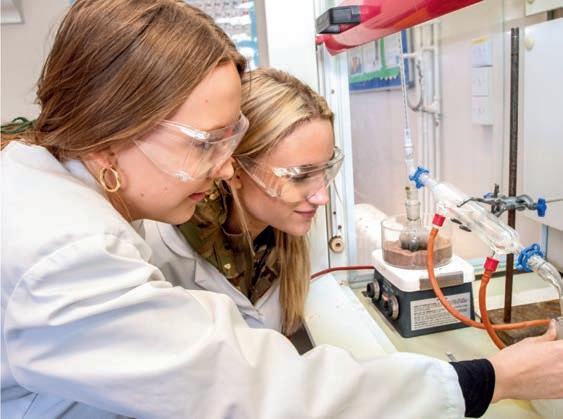


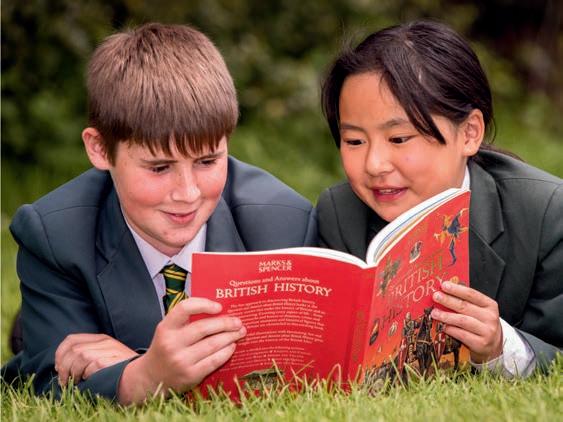


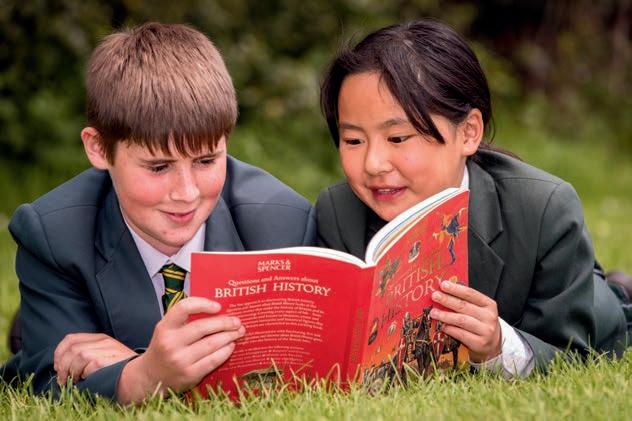

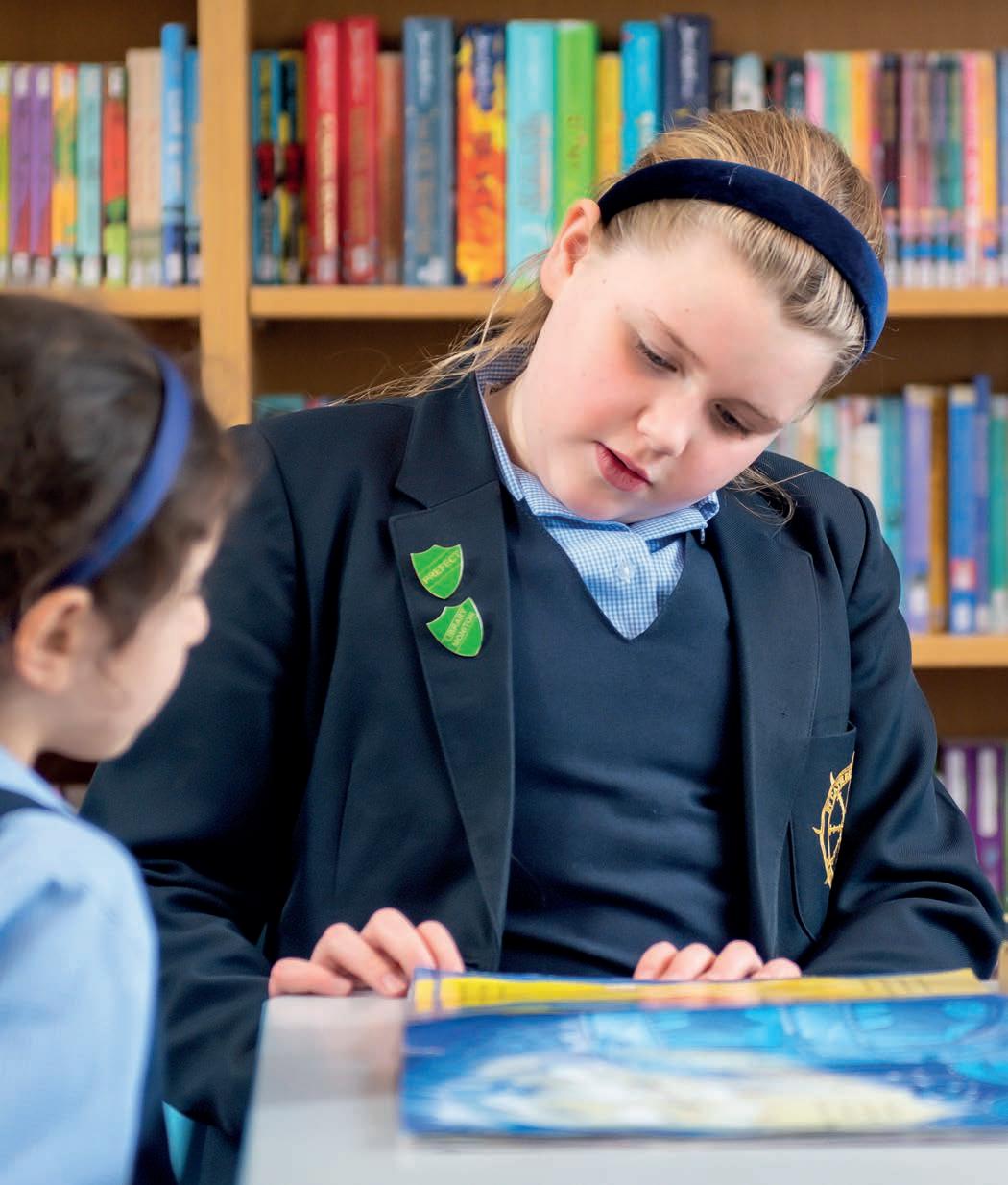
Framlingham College in Su olk on why delivering skills to help children grow and thrive in future life is as important as academic results
As education requirements continue to evolve in response to an everchanging world, schools are rethinking not only what they teach but how they assess learning and potential in their young people. At Framlingham College – a day and boarding through school in Su olk – the focus is on developing good human beings, not just delivering stellar academic results.
Principal, Louise North says: “Academic achievement should be viewed as a byproduct of the educational experience rather than the sole measure of a successful education”. This philosophy reflects a broader shift in education, as schools and parents question the longstanding reliance on traditional testing systems, such as Common Entrance (CE) and GCSEs, as the best way to assess pupils.
“The role of education in the 21st century goes far beyond memorising facts and
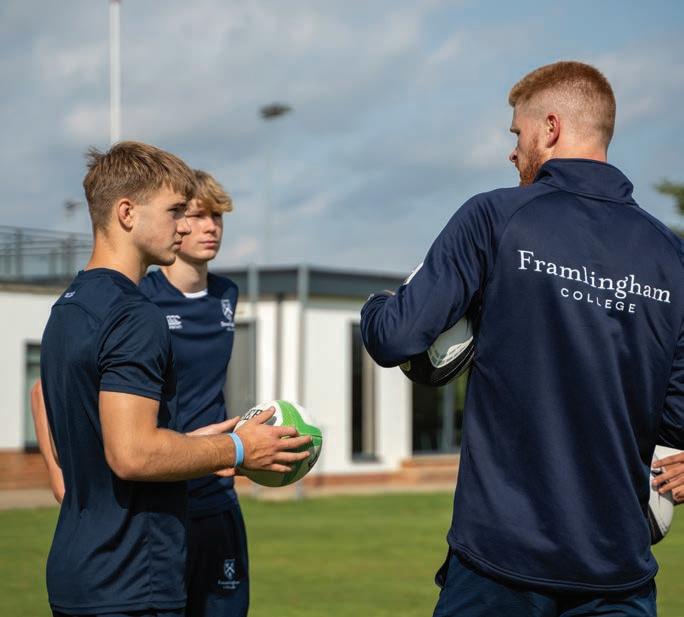

regurgitating them in exams. In today’s fast-paced, technology-driven world, the skills, knowledge and understanding that our young people need are rapidly changing,” says Louise North.
The World Economic Forum has noted that employers are looking for a skillset that encompasses creative and analytical thinking, resilience, technological literacy, and emotional intelligence. At Framlingham, these habits are embedded into educational provision, with the focus on encouraging pupils to be ambitious, nimble and creative in their thinking, and to embrace change rather than fear it. “As educators, we must ensure that our educational provision evolves to reflect the future adult world of our pupils, equipping them with the skills, confidence and resilience that they are going to need.”
This, adds Louise North, also impacts the whole approach to teaching. “The

traditional role of teachers as omniscient figures imparting knowledge has changed significantly. In an era where information is readily available at the touch of a screen and AI is ever more present in all that we do, the role of educators is increasingly to teach young people how to acquire and apply knowledge, and why it is relevant to life beyond the classroom.”
One area where Framlingham College has reflected the changing nature of life beyond the classroom is in Years 7–9. Having abandoned Common Entrance, the curriculum has been reshaped to focus on building a love of learning and an intellectual curiosity. This means the curriculum takes a thematic approach to learning, developing skills such as collaboration and creative thinking, independent research and oral presentation skills. It also focuses on ensuring that
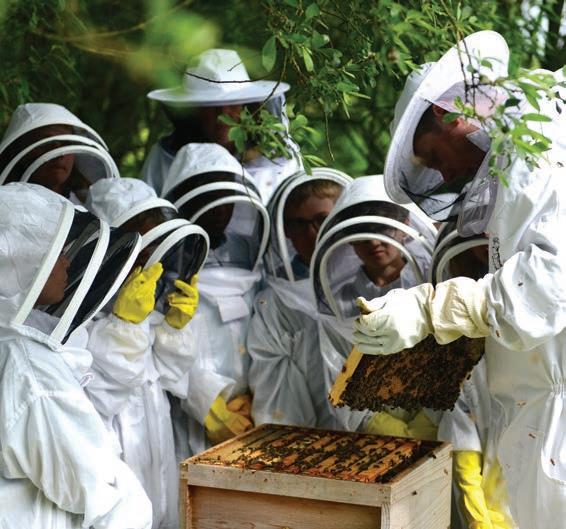
“The role of educators is increasingly to teach young people how to acquire and apply knowledge, and why it is relevant”
pupils make connections between their subjects – learning Music through Maths or Geography through Biology, for example.
“We understand the pressures that young people face, especially when preparing for senior school entrance testing. These are pressures that can significantly reduce their spirit of enquiry and love of learning,” says Head of Framlingham College Prep School, Simon Roche. “As an all-through school, we are fortunate to be able to create a shared and seamless learning journey from Prep to Senior, through a curriculum that develops skills and resilience, while also ensuring that the joy that comes from deepening knowledge is kept alive.”
To assist with keeping that knowledge development alive, Framlingham College uses a combination of teaching methods, including project-based learning, experiential learning, and traditional
instruction. This supports teachers to deliver rigorous and purposeful lessons, where pupils are encouraged to see ‘a bigger picture’ and spot interrelationships between themes. “Our integrated approach to learning reduces many of the stresses of transitioning from Prep to Senior, giving pupils the confidence they need to succeed without feeling overwhelmed by the process,” adds Simon Roche.
Framlingham College Principal Louise North adds that now, more than ever, schools need look to the future and prepare young people to thrive. “Education should be about more than just exam results, and pupils should not be defined purely by their performance in a narrow set of assessments. Instead, the focus should be on preparing them for the world beyond school – one where creativity, resilience, and the ability to adapt to change will be essential.”
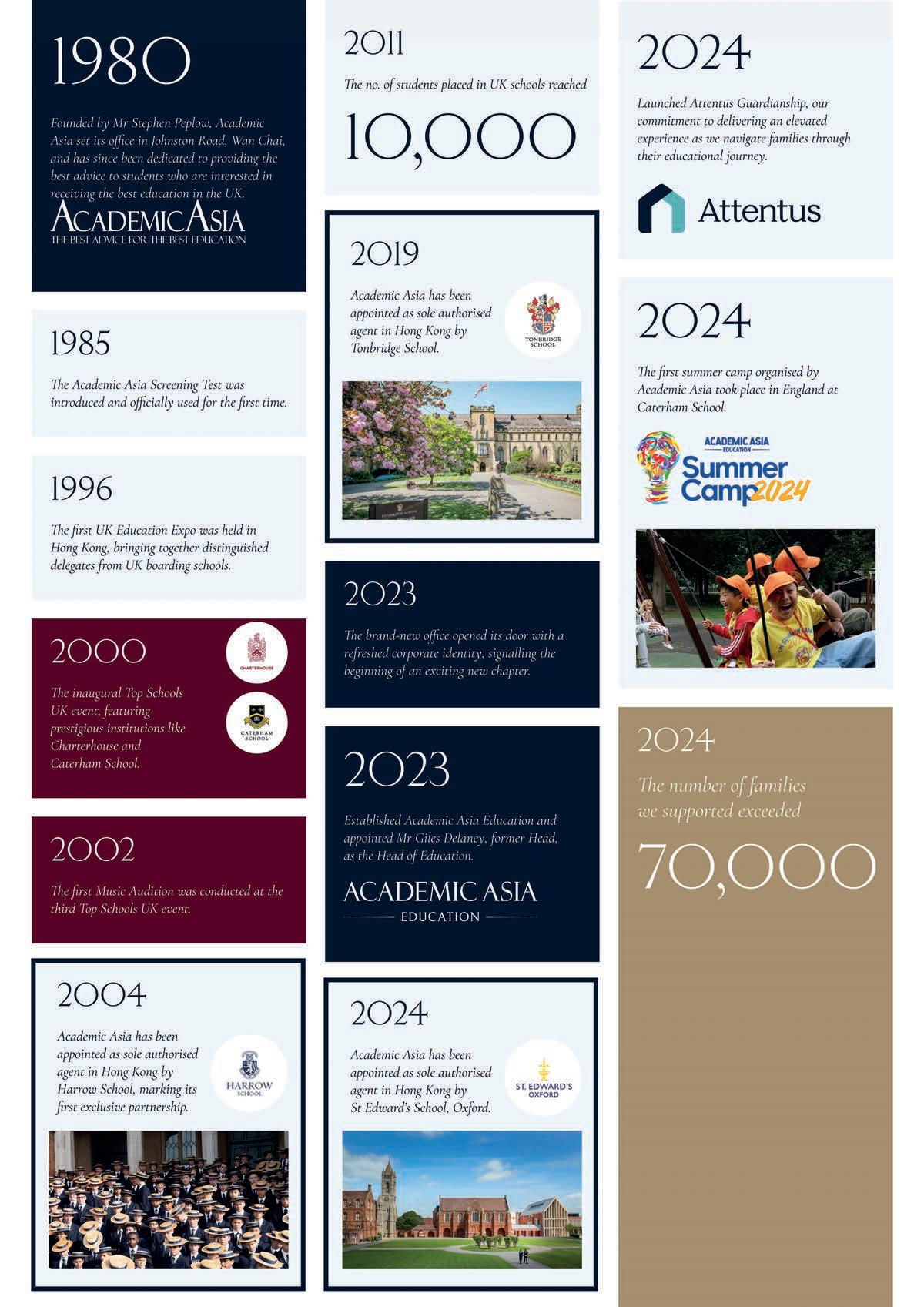
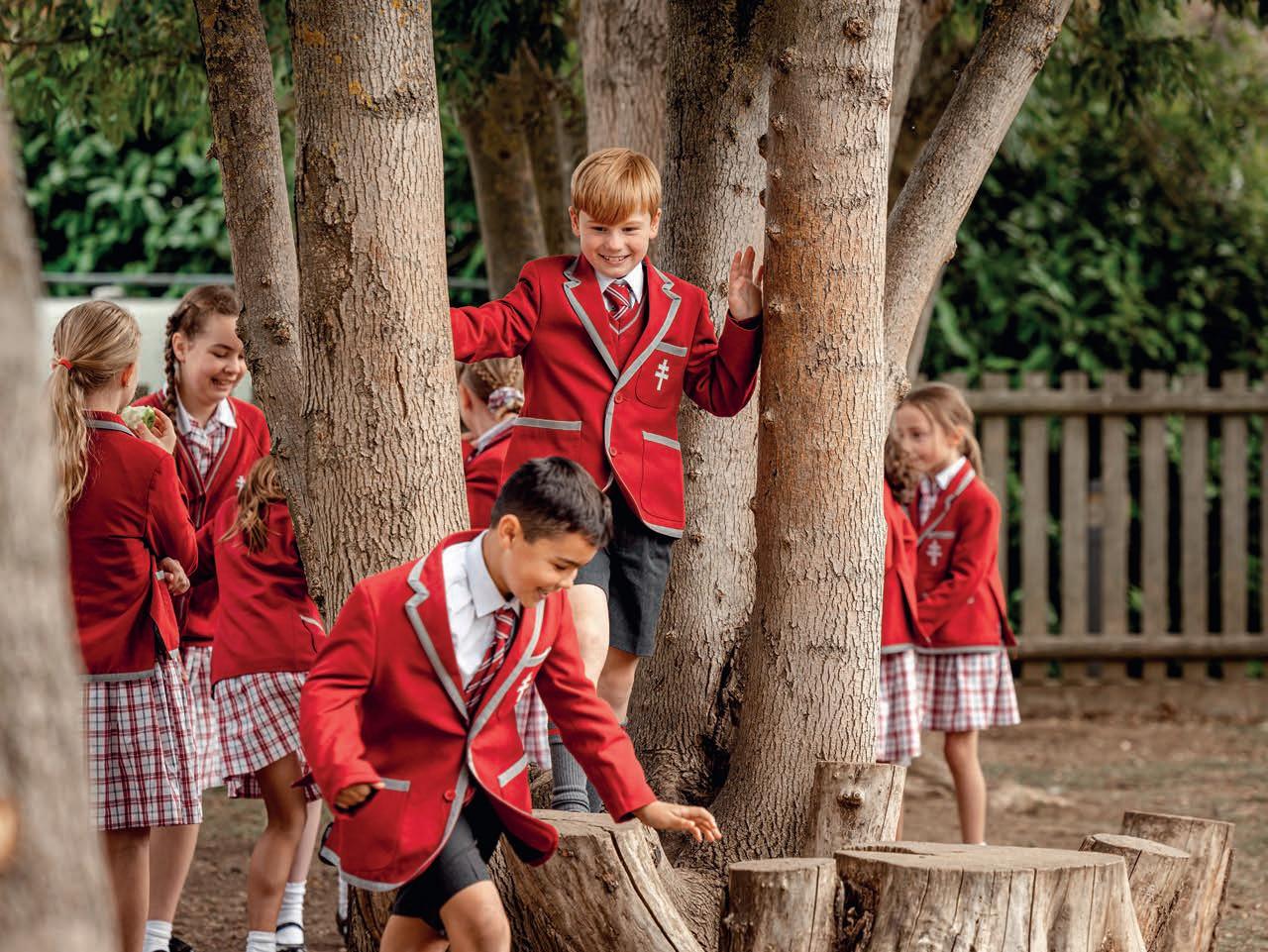
Resilience is a buzz word in education, so how can we help younger children to build confidence and take setbacks in their stride? Schools share their winning strategies
At New Hall in Oxford, the team work to create a culture where mistakes are seen as an integral part of the learning process. Younger pupils are taught that failure is not something to fear, but an opportunity to grow. Teachers emphasise that it’s normal to get things wrong and that the most important thing is the e ort pupils put into trying again.
This is reinforced through classroom discussions, collaborative problem-solving tasks and stories where characters succeed after persevering. Sta employ a growth mindset approach, helping children understand that their abilities can develop through persistence.
To help children identify and build on strengths, they employ a mixture of approaches, including one-to-one teacher discussions, peer assessments, and self-reflection exercises. New Hall pupils are encouraged to think critically about their abilities, what they enjoy, and where they excel. Then teachers help them set achievable goals based on these strengths, gradually building on small successes. The team here find that strengths-based learning is a great way to celebrate individual progress (rather than comparisons to others). This also fosters intrinsic motivation – pupils see the e ort they put in leading on to improvement.
Sport and outdoor learning are part of the toolbox for building resilience. Whether it’s on the playing field, visits to the school farm or outdoor adventures, the activities help children push through challenges, manage
frustration when they can’t ‘get it right’ and also work within a team. The New Hall team say that outdoor environments present unique opportunities to fail safely and try again. They also foster problem-solving skills, risk-taking, and adaptability – supporting both wellbeing and mental resilience.
There is strong emphasis here on recognising not just academic success, but also perseverance, curiosity, and personal progress. Reward systems are designed to celebrate the process of learning, valuing e ort over achievement to help pupils understand why hard work and determination are as important as reaching the end goal. This approach motivates pupils to keep pushing through learning barriers, even when the going gets tough.
Fostering a supportive community where every child feels valued and encouraged is vital, say New Hall. Mindfulness practices and emotional literacy are integral parts of the school curriculum, helping children manage stress and navigate challenges. Opportunities for leadership – from being a prefect to participating in School Council – let them take on responsibility and shine in multiple ways.
At Kew College Prep, the team understand that many children feel nervous about making mistakes, which can hold them back from exploring new opportunities. There’s a big focus on nurturing self-esteem – showing even the youngest and most timid pupils that mistakes aren’t something to fear, but an essential part of the learning process.
Prep sta say that a supportive and tightknit community is critical to this. Teachers focus on building strong, trusting relationships with each child, using praise to create a space where the children feel able to try new things. Whether they’re tackling a challenging maths problem, performing on stage, or competing in sports, pupils are encouraged to believe in themselves and their potential.
One of the ways a ‘tryer’ mentality is modelled is through sticky questions –
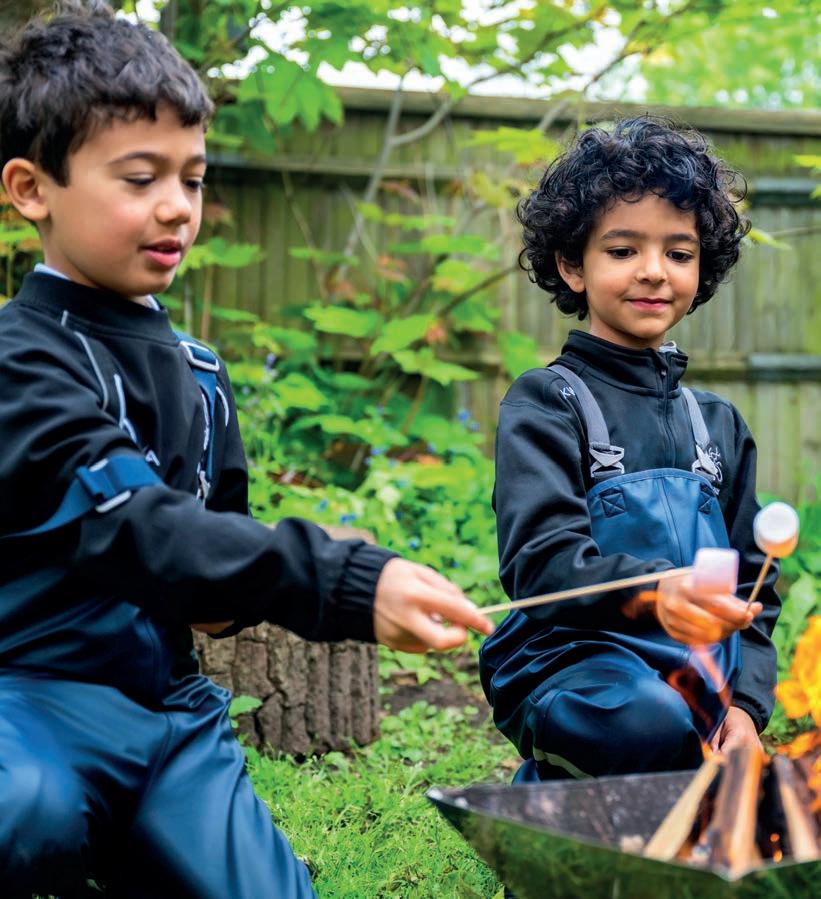
where there isn’t a clear right or wrong answer. These spark open discussions and encourage critical thinking, helping children to see that the journey of figuring things out is as important as the solution. By exploring di erent viewpoints, they also learn to embrace uncertainty and recognise the value in trial and error.
Teachers model this mindset by openly demonstrating how they handle their own mistakes and learn from them, reminding pupils that nobody is perfect. This gives children the confidence to step outside their comfort zones and keep going, even when things get tough or go wrong. In PSHE lessons, resilience is a regular theme, helping each child recognise their strengths and celebrate their progress.
The concept of a growth mindset is also introduced, teaching that just because something feels hard now doesn’t mean it will always be that way. This helps pupils to approach challenges with patience and
“A ‘TRYER’ MENTALITY IS MODELLED THROUGH STICKY QUESTIONS – WHERE THERE ISN’T A CLEAR RIGHT OR WRONG ANSWER”
determination. Achievements are celebrated via regular assemblies, where pupil successes, both in and out of school, are shared with the school.
Beyond the classroom, outdoor learning environments – including forest school sessions – o er even more opportunities to build resilience. From climbing trees to using tools for woodwork, Nursery and Reception children engage in ‘risky play’ which fosters independence and a can-do attitude.
The Kew Collee Prep team note that praise, reward, and recognition are


essential to helping children push beyond their perceived limits. Positive feedback, house points, and awards celebrate not only top achievements but also the e ort it takes to overcome hurdles. With problem-solving, sports, and mindfulness embedded within the curriculum, pupils have the tools needed to be resilient and confident learners.

At The King Alfred School (KAS) in North London, Head of Lower School Karen Thomas says we adults need to resist our natural tendency to protect the children in our care at all costs as it’s not in their best interests. “It does little to equip them with the tools and strategies they need to live healthy, happy lives,” she says. “Understanding what to do when faced with adversity is woven into the fabric of our educational provision,” she adds. “We place as much value on how we learn as what we learn.”
The KAS approach is that a shared language and an expectation for children to review themselves as learners is key to developing e ective learning dispositions, including resilience. “By helping children identify, understand and expect the feelings we get when something challenges us, we start to disperse the mystery of the
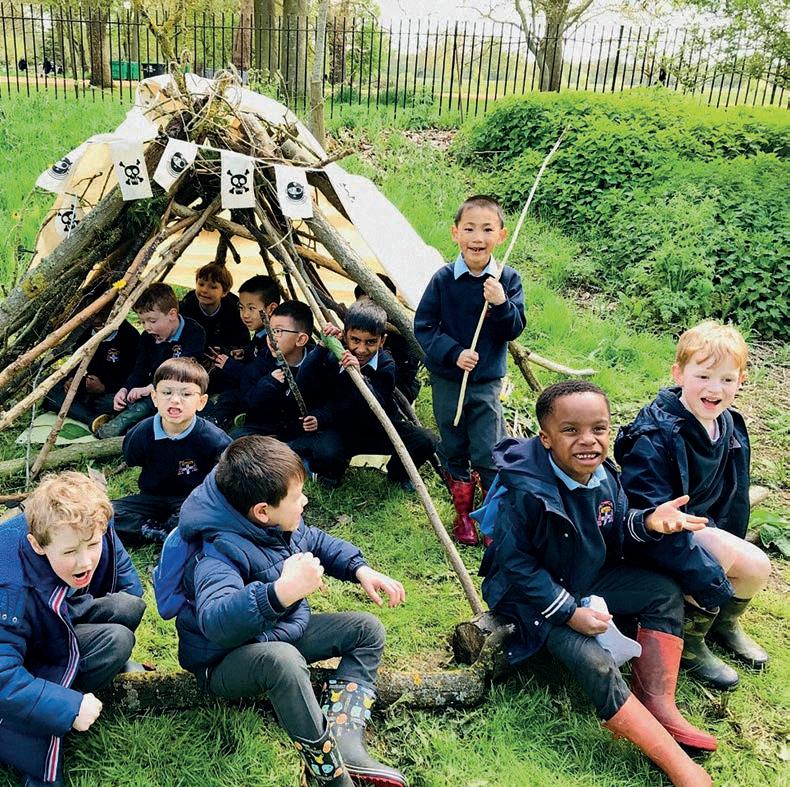
“CLASSROOM TALK OFTEN REFERENCES ‘BOUNCE-ABILITY’ – HOW DO WE GET BACK UP AFTER SOMETHING IS TOO DIFFICULT?”
learning process, allowing children to be curious and brave rather than afraid when they are not immediately successful.”
The concept of “productive struggle” is introduced to the youngest children as an important indicator that learning is happening. In the Early Years, for instance, resilience is also addressed through books – KAS favourites include Tilda Tries Again, After the Fall and Yes You Can, Cow. Together, teachers and children analyse characters’ emotions and actions from the safety of the story corner and this helps pupils to make links to their own learning experiences.
“Classroom talk often references ‘bounce-ability’ – how do we get back up after something is too di cult? We teach the children the science of learning – how their brain can grow and strengthen when
they take risks, learn new skills, solve problems, and make mistakes,” says Karen Thomas. “We talk with children about having a growth mindset, sca olding their approach to challenge with a positive mental attitude.”
Above all else, helping children become resilient relies on teachers and caregivers really knowing each child. “When we know their di erent strengths, experiences and levels of confidence, we are able to provide the right level of challenge at school in terms of the learning experiences we design,” says Karen Thomas “We help children to identify when something is too easy, too hard or just right, so that they can exercise their ‘resilience muscle’ safe in the knowledge that that we will be there to champion their e orts, to cheer them on or to o er a helping hand.”
Perseverance is a key School value here at Bickley Park,” says Headmaster Tom Quilter. “We aim to model and promote the benefits of a growth mindset, embracing the concept that failure is a key part of success. Imagine, if as babies, we gave up the first time we fell? We would never learn to walk. Some of my favourite assemblies, centre on the theme of learning to pick ourselves back up.”
The Bromley prep and pre-prep loves to remind children that it’s not that they can’t do it, they just can’t do it yet. “We are determined to make sure that we identify, nurture and celebrate every child’s strengths and talents. By finding that spark – ensuring e orts are rewarded and then celebrating achievement – we see selfesteem snowball,” adds Tom Quilter.
The curriculum is framed around what are known as the Four Quadrants of Learning – Academics, Sport & Outdoor, Arts plus Community. “Together they arm our pupils with skills for life – a love of learning; the ability to communicate confidently; the desire to contribute meaningfully to society and to show initiative; resilience, teamwork and the confidence to take risks.”
Sport & Outdoor is especially key to developing resilience and confidence, with sport sitting alongside a Forest and Adventure School programme. “We aim to foster teamwork and leadership skills, whilst developing independence and the ability to manage risk,” adds the Head. “And we believe in sport for all – for example, ensuring that all pupils are exposed to healthy competition and can represent the school throughout their time with us.”
The Adventure School programme builds on forest school sessions and sees all children in Years 3 -8 taking part in residential trips which focus on progressively demanding skills and challenges – from camping in the Peak District and the South Downs to a kayaking adventure along the Cornish coast.
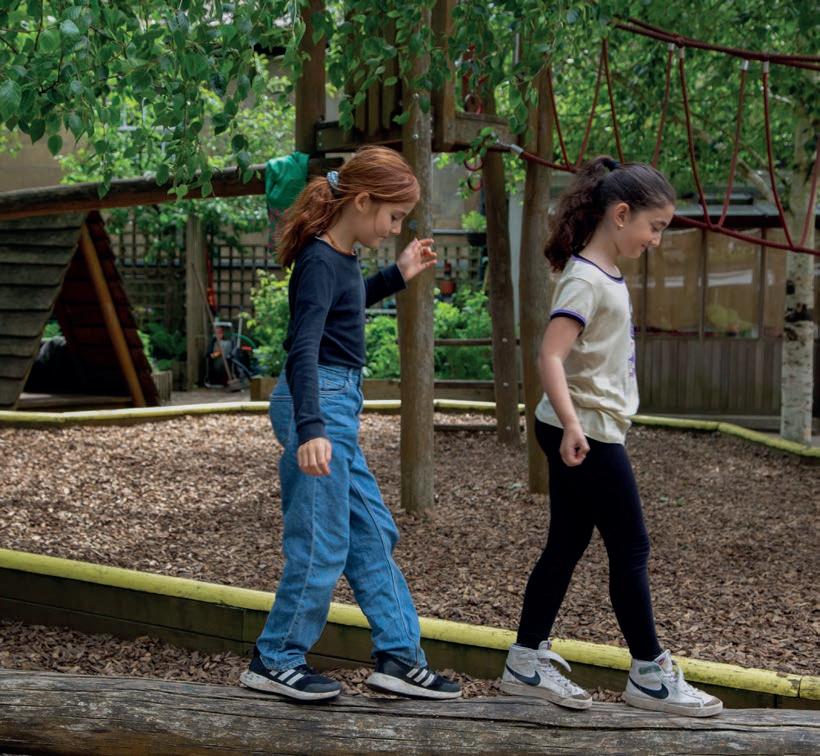
In all of these adventures, Tom Quilter believes it’s important to foster a culture where pupils recognise the importance of supporting and looking out for others. “We foster kindness, inclusion and respect in everything that we do,” he says. “We pride ourselves in being a kind school that celebrates and embraces diversity.”
At CCCS in Oxford, the boys are encouraged to ‘give things a go’, says Deputy Head (Pastoral) Nick Harrison. “From a young age through lessons, assemblies and play times we try to instil the belief that giving things a go and getting them wrong is much better than shying away from di cult situations. Our teaching sta are careful not to discourage our pupils from raising their hands during lesson time, even if they think they are wrong.”
There’s a new enrichment programme at the prep, which helps to reinforce this by giving boys the chance to take part in activities they wouldn’t normally do. “Our hope is that, through this programme, we can continue to
“IF OUR PUPILS FOCUS ON TRYING THEIR BEST, RATHER THAN THE BEST MARK, THERE IS NO CEILING TO THEIR LEARNING”
increase our boys’ resilience and increase their opportunities to explore activities they might enjoy and find challenging.”
Alongside enrichment, PHSE is used to help guide pupils to understand their strengths and weaknesses. “We find this an invaluable process that enables them to enjoy the experience of being good at something alongside the challenge of improving at something else,” says Nick Harrison.
Sport and wellbeing are a big part of school life, despite the school’s city central location. “We make sure our pupils know that they are in a privileged position to be able to play on such wonderful playing fields (Christ Church Meadows) and take part in woodland activities whilst still being in the heart of Oxford.”
Pre-Prep pupils have dedicated Woodland School lessons, now being introduced through to Year 8 as part of enrichment. “We are able to reinforce key messages that help to build resilience and help with their general wellbeing,” adds Nick Harrison.
In common with many schools, there’s a focus on e ort-based praise. “We firmly believe that if our pupils focus on trying their best, rather than achieving the best mark, there is no ceiling to their learning. We find this attitude often leads to more resilient children and ultimately excellent results when testing in a more formal manner.”
CCCS is also a small school, with a family feel, so children are known. And it has a linear pastoral system, where older children visit younger classes, especially during Form time. “We find this ‘buddy system’ gives boys the opportunity to speak to a range of ages and helps them to feel included and nurtured at every level.”
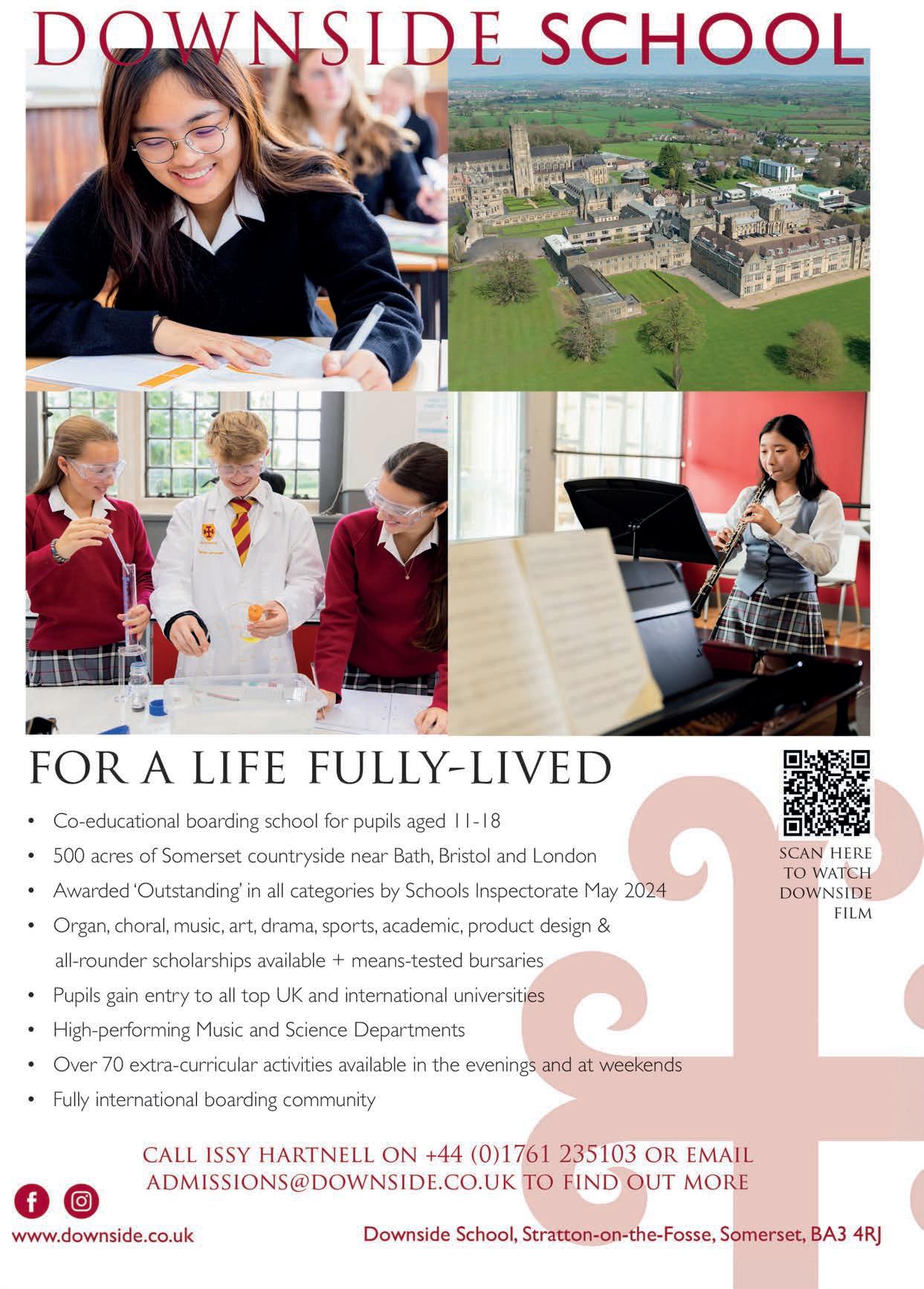
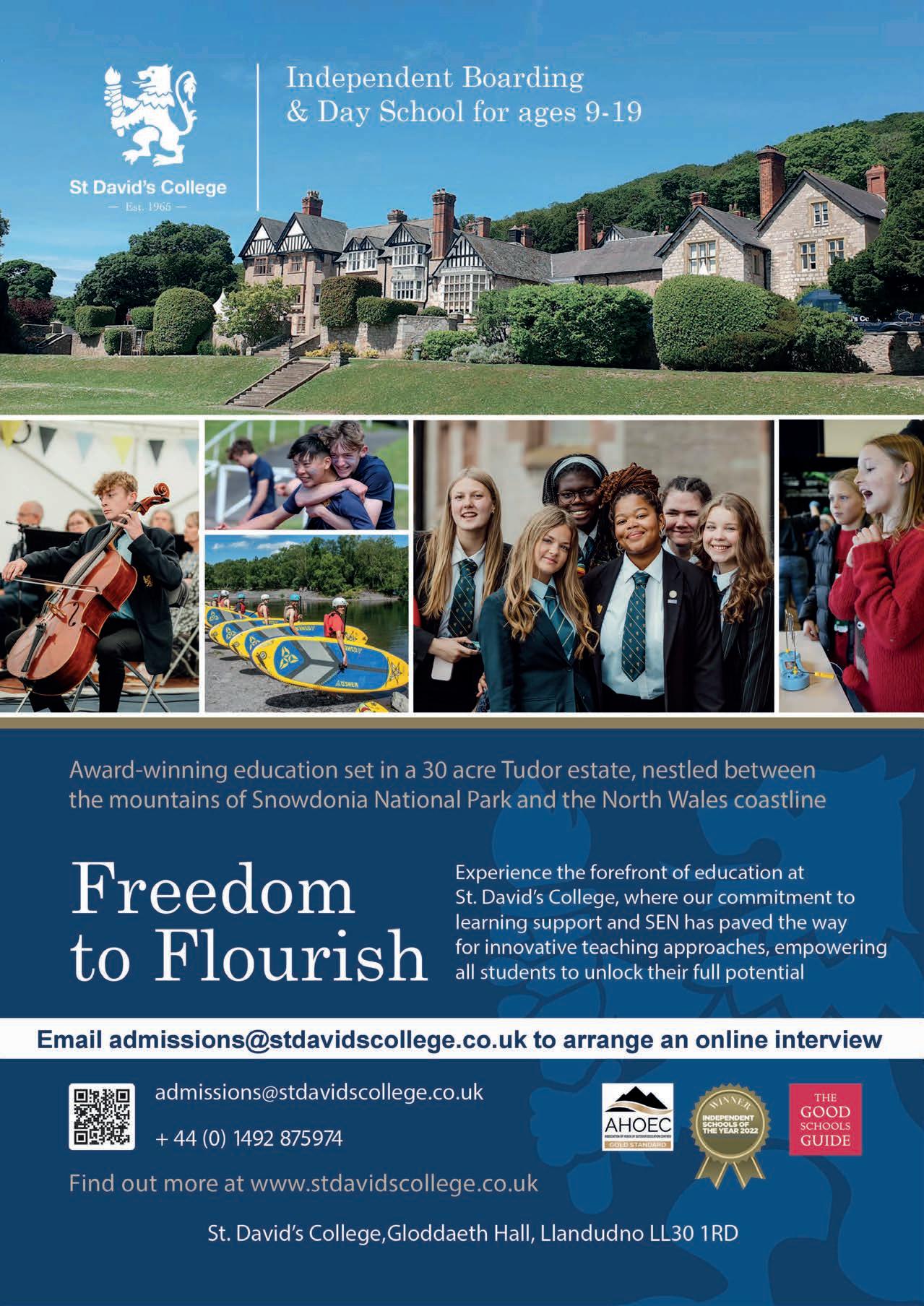
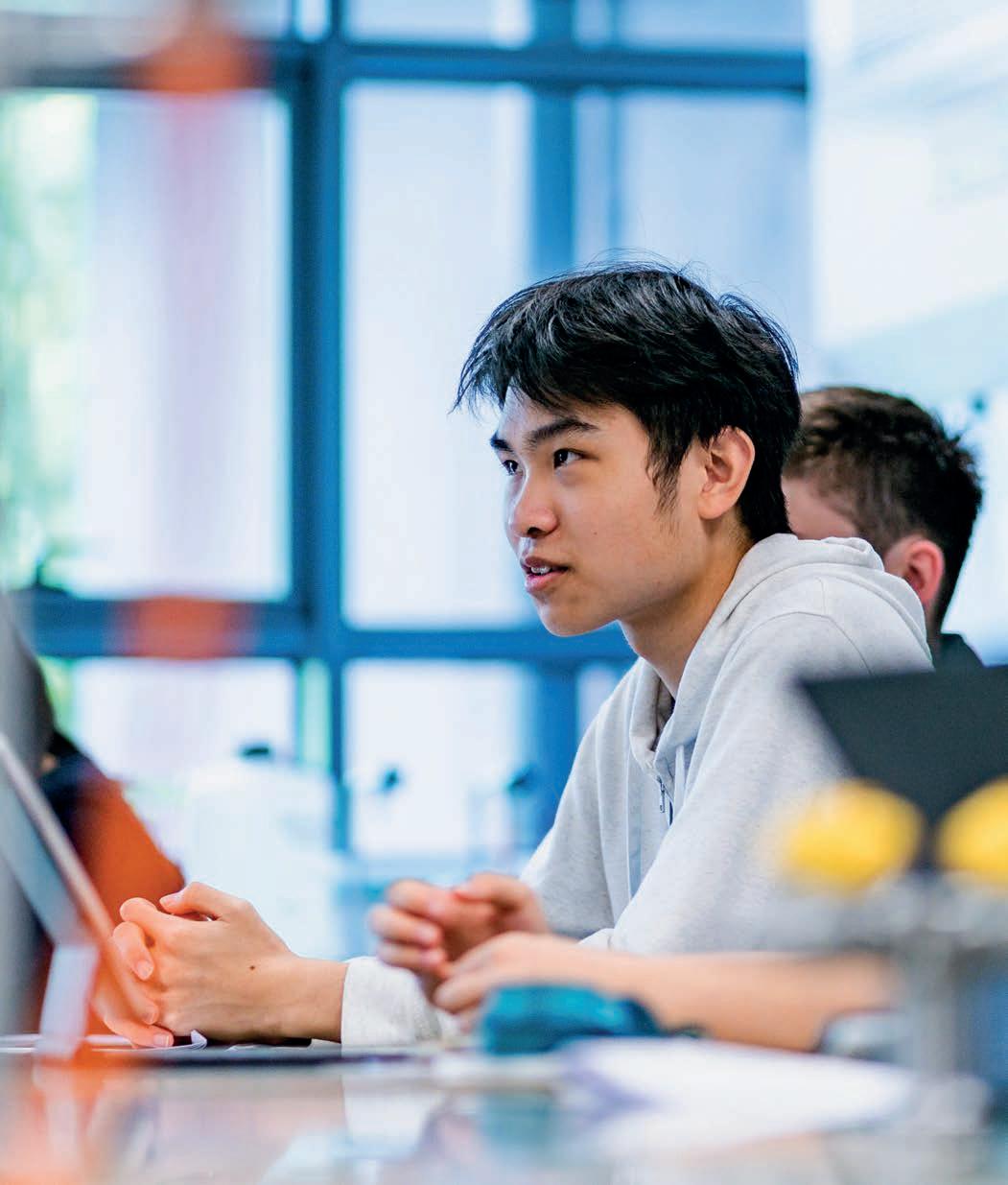
SCIENCE Making science stick at Concord College Page 40
Curricular, cross-curricular o campus or o beat, what are the innovative approaches schools use to engage students with science – for both study and future careers?
Absolutely Education speaks to four schools that use clever
approaches
to bring these subjects to life
If we’re not reaching for real-world examples of science in our lessons, then we are missing half the fun”, says Nick Waite, Head of Science at Tonbridge School. “It’s the hands-on experiments and relatable examples that make science stand out, sparking curiosity in ways that other subjects can’t match.”
The goal here is to ensure every lesson includes an exciting experiment or memorable demonstration to “anchor” theory in life. “Whether it’s exploring diseases in biology, thrilling explosions in chemistry, or the highspeed world of Formula 1 in physics, these real-world connections transform abstract concepts into something tangible.” The school’s superb Science Centre is designed to ignite curiosity, featuring displays, challenging questions and posters about past projects.
Students here are often on their feet, collaborating, problem-solving, and presenting solutions on the whiteboards spanning the walls of labs. “By integrating technology – whether it’s using ChatGPT as a virtual study companion, tackling online question banks, or exploring YouTube – we empower our students to dive deeper, expanding their understanding and making learning an adventure,” says Nick Waite.
Tonbridge became the first school to earn ‘Employer Champion’ status from the Science Council, in recognition of its commitment to sta training and professional development. And in September, the school’s Senior Chemistry Technician received the Hauksbee Award from the Royal Society for her contribution to sparking scientific curiosity and driving collaboration across schools. “Our educators are not only experts in their fields but also pioneers in delivering cutting-edge, engaging STEM experiences for our students.”
Cross-curricular approaches are a big part of bringing science to life. From constructing model rockets to learning about the iterative design improvements required in engineering, there are multiple real-world opportunities. External speakers are a big part of the mix and students also deliver presentations to their peers, as well as producing a school science magazine. The school’s annual science conference – now in its 20th year – brings together over 20 di erent schools. Visitors from Japan and California have been among participants in recent years. There’s a science communication competition, now in its third year, that Nick Waite says is proving to be an excellent platform for young people across
London and the south-east to articulate big ideas persuasively and coherently.
‘These activities not only deepen scientific knowledge but also cultivate essential skills.”
Many students here choose STEM subjects at university, and careers-related activities are designed to showcase their versatility. “They highlight the value of studying STEM subjects, not just for those pursuing science-based careers but also as a foundation for critical thinking, problemsolving, and innovation,” adds Nick Waite.
Head of Science and Biology
Alexander Van Dijk says Stephen Perse’s Cambridge location – surrounded by innovative companies – is a real boon for selling science’s real-world applications. The school makes good use of local resources by taking students to events around the city. Recent examples include a ‘Physics at Work’ educational outreach event at the Cavendish Laboratory, trips to the city’s Museum of Zoology and to the school’s own nature reserve. There, students get involved with ‘live’ science.

“We have set up semi-permanent quadrats to allow the tracking of species diversity over time and analysis of the impact of mowing on the sedge,” says Alexander Van Dijk.
Extracurricular activities are encouraged – helping to build problem-solving and critical thinking skills as well as make science enjoyable. “Our TeenTech club has inspired students to achieve incredible things, including one student who designed
a new music curation model and a team that investigated how we can use AI to help with garden design and maintenance.”
Science Extension sessions enable students to meet weekly to discuss a wide range of topics – from de-extinction to the science of tanning. “One particularly engaging cross-curricular activity saw our science students visit RAF Henlow in collaboration with the languages
department, where our budding engineers were able to design a space station in one of three modern foreign languages.” Students participate in Olympiad competitions and use IsaacPhysics to reinforce their studies – one student even earned a place at a University of Cambridge summer school as one of the top 50 school physics students in the country. Thanks to the school’s science-centric location, there are regular talks from the
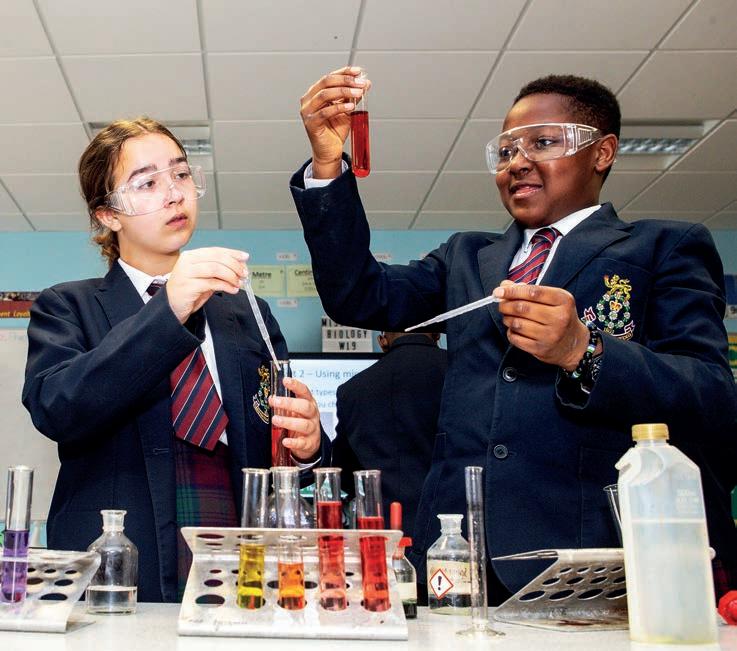
parent body. “The majority of our students studying science at A level go on to study related university courses, but even those who don’t will have developed key critical thinking skills that will stand them in good stead,” says Alexander Van Dijk.
They also consider career possibilities beyond the obvious. “Students recently heard from scientific organisation Costello Medical, which highlighted the science and medicine careers available for arts and humanities students, such as medical communications and compliance.”
With a superb science building at the heart of its Shropshire campus, Concord College is focused on future opportunities for its student cohort from the moment they arrive. “Part of our vision for science at Concord College is to inspire students to become the scientists
“One student designed a new music curation model, and a team investigated how we can use AI in garden design and maintenance”
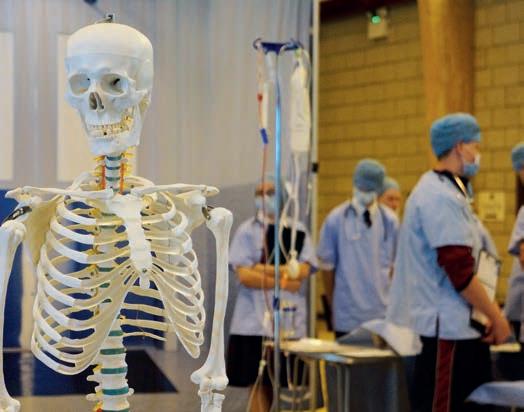
of the future,” says Head of Science Barry Brown. When they first arrive at Concord, Year 9 (F3) students complete a sevenweek neuroscience of learning course. The aim is to use science to become a more e ective learner.
“They experience a wealth of practical investigations leading to two opportunities to complete a British Science Association CREST Award, working in collaborative groups to solve a real-world problem,” adds Barry Brown.
There are 30 science teachers at Concord, and the school also invites scientists from academia and industry in to speak. Students experience higher-level study by attending university lectures, and with insights via industry links, too. “For example, we are forging a link with Ricoh 3-D with our aspiring engineers.” The Extended Project Qualification (EPQ) that
is a feature of sixth form life here is also a great forum for science investigation. Many students opt for a practical science-led investigation and the College’s research lab is open every Monday night for four hours specifically for this purpose. Students are mentored by experienced teachers and have access to equipment such as 3-D printers, spectrometers and a muon detector.
The EPQ successes bear out the value of the facilities and support given to students. But they also pass on their wisdom and have both research and communication of findings tested in a ‘live’ situation. “Sixth Form students present their EPQ work and younger students are able to ask questions and learn about the breadth of applications of scientific research,” says Assistant Principal (Student Futures) Diane Van Dongen.
Homegrown and student-led academic societies hold formal and informal meetings every week, supported by
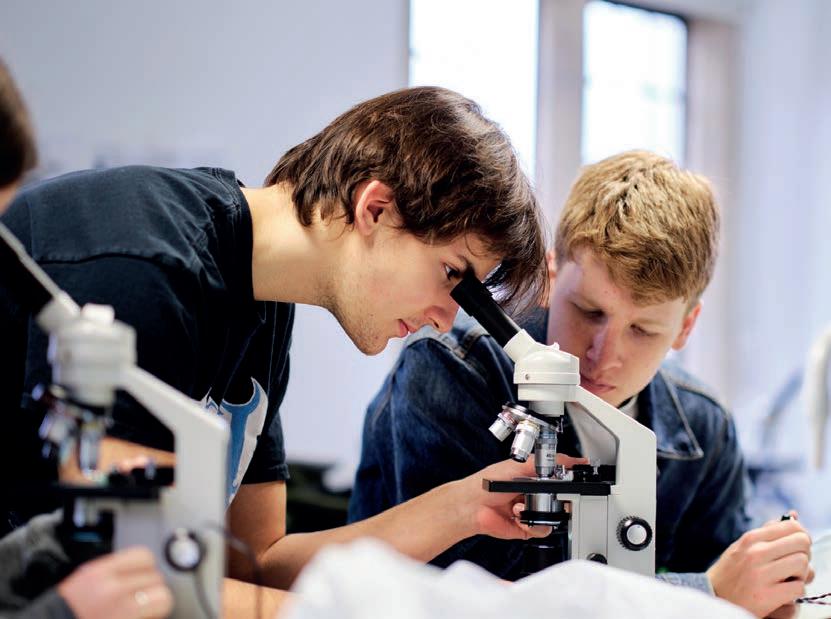

sta . There are also areas where STEM comes together with humanities – for instance, in discussions on medical ethics or the economics of high-tech engineering companies. “Seeing the place that science plays in society and understanding that the society around us can a ect the science we do are important for aspiring STEM students,” says Diane Van Dongen.
The annual medical conference hosted at Concord College is now open to all aspiring medics in the region, with some elements available online. “It features visiting speakers, hands-on workshops and the chance to meet one-to-one with practicing doctors and sta from university medical schools,” says Barry Brown.
The Engineering Society has followed suit, with an increasingly ambitious programme of lectures, visits, discussions and masterclasses, and there are also active groups for biochemistry and physics.
The buzz around science rubs o on everyone here. “With such student enthusiasm we are also able to involve many students studying non-STEM subjects in the wider discussion around science,” says Diane Van Dongen.
“With so many careers even in apparently non-STEM fields making use of technologies such as IT or smart materials, it is important that science is part of everyone’s knowledge landscape.”
At DOYRMS in Kent, the science department is committed to building engagement with science through innovative programmes, state-of-the-art facilities, and hands-on learning experiences. One of the school’s most prestigious initiatives is its participation in the Independent Research in Schools (IRIS) project. This enables students to undertake novel research projects and present their findings at academic conferences, mirroring processes that postgraduate researchers follow.
Students are also given the chance to compete in various STEM competitions, both locally and nationally. These include the Top of the Bench competition, organised by the Royal Society of Chemistry, which challenges young chemists to showcase their skills. The team here say that these opportunities not only boost students’ scientific knowledge but also help them build confidence and experience in public speaking and presenting research to mixedage audience – all useful stu for future university and job interviews.
The school’s team of science teachers includes many who previously held positions in industry and DOYRMS says this realworld experience brings a lived perspective to the classroom, ensuring that students are always thinking in terms of the latest advancements and their real-world value.
Collaboration is a key aspect of the science approach, helping to boost engagement. Teachers from di erent disciplines regularly share best practice and work together on cross-curricular projects – particularly with the maths department – to develop common approaches across the school.
Extracurricular activities play a significant role here, especially when it comes to building interest and knowledge in science. There are 60 diverse activities to choose from at the school, including VR and ecology clubs, as well as clubs related to the physics and chemistry Olympiads. The addition of regular laboratory days at a nearby science park’s community lab, gives students practical and hands-on experience using industrial-grade equipment.
The DOYRMS team know that science engagement, both in and out of the classroom, throughout school days pays dividends when it comes to inspiring future STEM-related careers. Triple sciences are common through to A level here, and with many students heading o to university to study science and maths-related courses.

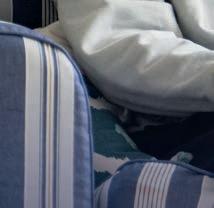








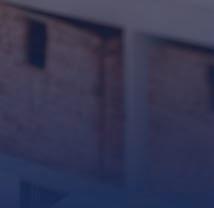











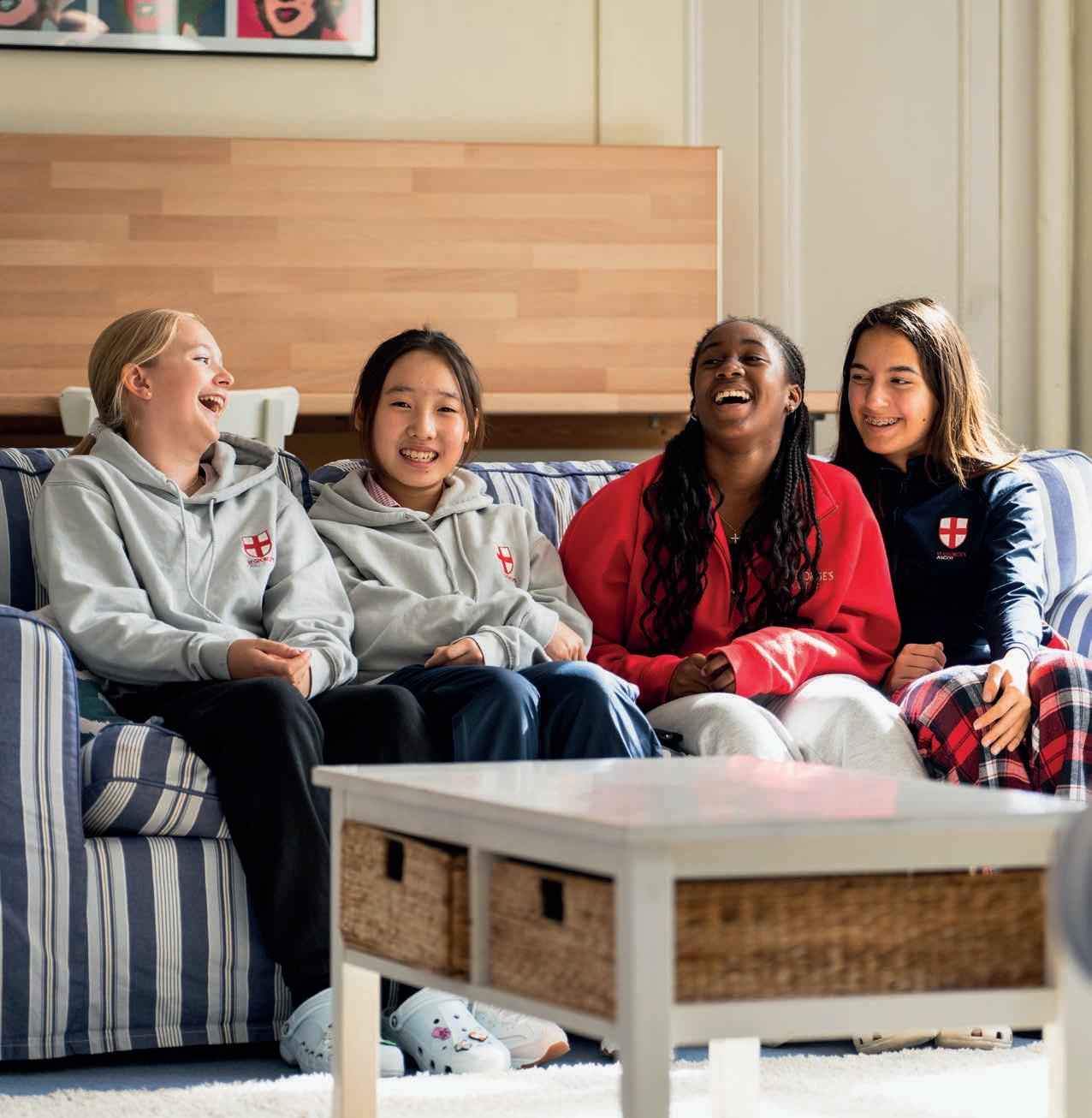
A one-size-fits-all approach is no longer either relevant or desirable in our changing world, says Kevin Carson of RMS for Girls
Where is your school at with personalising learning for every student, and just how accommodating should an individual teacher and a school be in this respect? By “personalising learning” I should clarify that I have in mind two key components: teachers knowing each student extremely well and then tailoring the provision to best suit each learner, their context, their strengths, needs, skills and interests; and schools providing students with choice, voice, and flexibility in reaching learning outcomes.
On the one hand, isn’t the first of these what great teaching has always been? Certainly, the best teachers that I have known have always adapted their questions, support and feedback for each pupil in front of them. And yet on many occasions in my career, I have heard negative perceptions of personalised learning from teachers, with opponents of the idea decrying the possibility of adopting such measures, or claiming it has political motivations, is too woolly and fuzzy, or bemoaning that it’s a nice idea but too challenging to put in place within the time pressures of term time and a prescriptive curriculum.
And yet, I sense the world is changing its attitude towards personalising learning, and this is for the better. My experience across


five schools is that increasingly families and teachers appreciate that all children have learning di erences, and some are more marked than others. Across the globe, there is a growing awareness that a one-size-fits-all approach to schooling is insu cient to meet learners’ needs or those of society at large.
As headteacher, I’m seeing examples of personalised learning every day, in manifold, varied ways, big and small, and it delights me that all students’ needs are being met, that every pupil is being given the chance to thrive. With our youngest students, in Nursery and pre-school, if a child joins from overseas and largely as a non-native speaker, we create an auditory book of photographs and key phrases in their first language and English, we make home visits, adjust their timetable, and translate the texts we are using into their native language so that they too can enjoy ‘The Hungry Caterpillar’ alongside their new classmates.
In Senior School, our Social Communication Group is an important, well-established time for our neurodiverse students to meet, o oad, and to share
their strategies. This week younger students from Years 5 and 6 joined the group ahead of their transition into Senior School. Our most highly talented sports students are allowed to arrive late and to leave early for training, with lessons and timetables adapted around their training programmes. Similarly, in our Sixth Form, we don’t require sixth formers to be here at 8:30am but instead give them the choice to arrive for whenever their first lesson of the day is to best fit their body clock and working patterns. Thinking structurally, we have joined a number of schools in changing our GCSE o er to allow each student greater choice and flexibility about the subjects that they wish to study. We have reduced the number of compulsory, core subjects (Mathematics, English Language and one Science) which means students are free to choose six options and can follow as traditional or as progressive a curriculum as they wish, depending on their contexts, strengths, skills and interests. The movement from teacher-centered to student-centered learning, and then on to more student-driven learning is picking up pace internationally, but is sadly still the road less travelled at present.
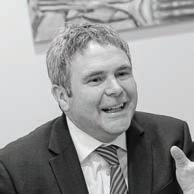

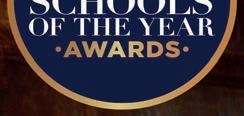
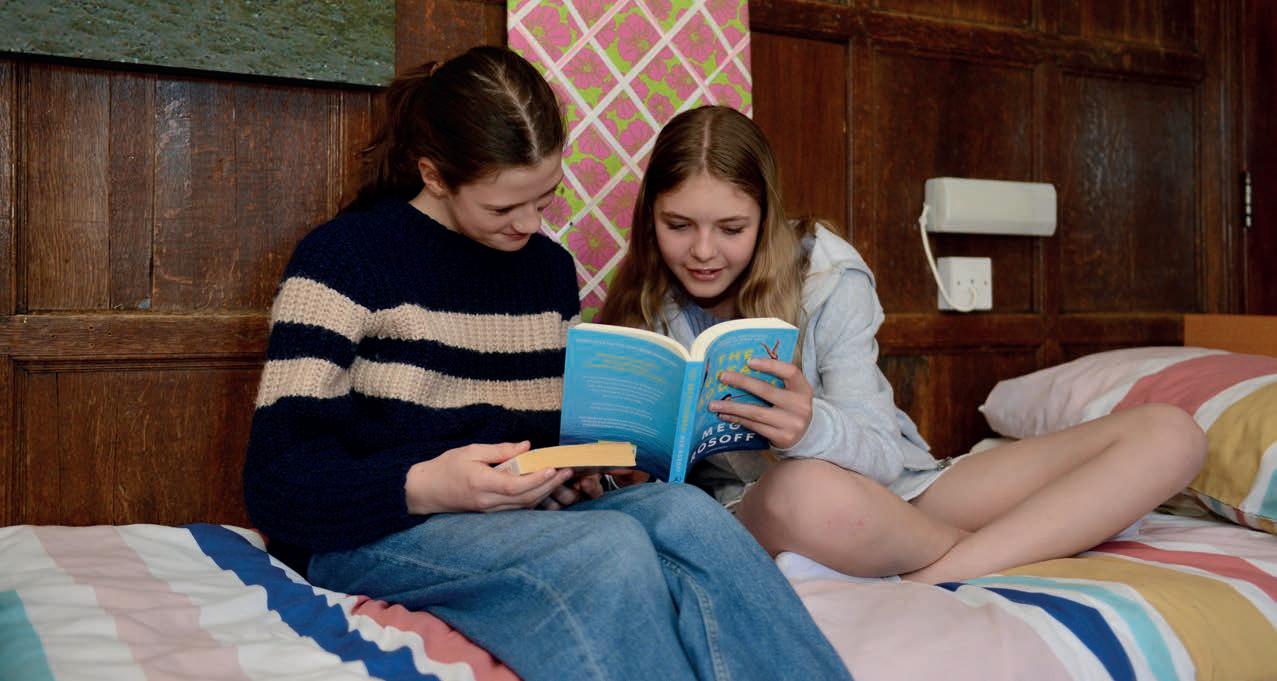

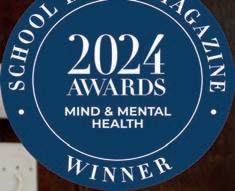
BOARDING FROM AGE 7 TO 18 FULL, WEEKLY OR FLEXI OPTIONS AVAILABLE A WELCOMING HOME-FROMHOME FOR PUPILS TO GROW, ASPIRE AND ACHIEVE WE OFFER A SPRINGBOARD FOR INDEPENDENCE, FRIENDSHIP AND OPPORTUNITY
Boarding at Framlingham offers stability, continuity, and a welcoming home away-fromhome environment . We understand the unique challenges of being away from home life and provide tailored flexibility to suit your needs. From age 7 (Year 3) to 18 (Year 13) , our boarding provision provides a vibrant, supportive environment where pupils can grow, thrive, achieve and aspire.
START YOUR CHILD’S JOURNEY TODAY
Contact our Admissions team to arrange an initial online meeting. Visit framlinghamcollege.co.uk, contact admissions@framlinghamcollege.co.uk or call +44 (0) 1728 723789.

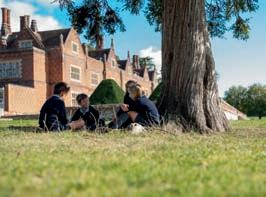
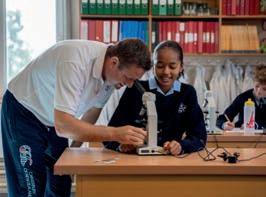



ABOVE
With so many changes in the world, Berkhamsted School believes it’s vital to transform learning spaces – its new Sixth Form centre is set to do just that
The world outside schools is changing fast, and Berkhamsted believes that we can’t expect students to adapt automatically to the world beyond their classrooms if those classrooms remain unchanged. According to Forbes, 56% of businesses are using AI within their operations, and this is only expected to grow by the time current sixth formers enter the working world. Equally, tech developments mean most current students are expected to have between 10-15 di erent jobs before they are 40. Beyond the employment landscape, global challenges such as climate change are set to transform the world as we know it.
With such a vast scale of change, the Hertfordshire co-educational day and boarding school has set out to o er its
students the necessary tools to face the world of today and tomorrow. The newly developed Sixth Form centre promises to shape students for the future from the moment they step through its doors. With a dedicated entrance separate from Berkhamsted Boys and Girls schools, the Sixth has its own distinct identity to inspire independence and responsibility. A large café space allows students to meet and collaborate in an environment purpose-built to transition them into adult working life.
The classroom design is inspired by the Harkness Model. Developed in America, the model structures classes around a large boardroom-style table, as opposed to the traditional teacher-learner classroom dynamic, in order to encourage discussion and independent thinking. These spaces o er the perfect setting for a forwardthinking Sixth Form syllabus, including a
super-curricular AI course which facilitates debates around the ethics of artificial intelligence.
The Sixth Form’s innovative design also includes a dedicated Future Zone, constructed to enhance traditional careers advice and with a clear focus on the transforming job market. Many students are likely to take up places at their chosen university (over 80% gained places at their first choice in 2024, and with over 54% achieving A*-A grades), however the Future Zone also houses a working space for budding entrepreneurs to develop their own business models. With an increasing number of people choosing to work for themselves, students will be able to explore this pathway as a viable option straight after school, alongside their chosen HE course or perhaps a little later down the line.
While schools shape students for the future, Berkhamsted believes it is also important to invest in a brighter future for all. As such, the new Sixth Form building has been constructed with sustainability at its heart. It is designed with low carbon, energy and resource e ciency, as well as a meadow quad to promote biodiversity and support student wellbeing. Solar panels and air source heat pumps are used to power the building, setting a blueprint for future developments across the rest of Berkhamsted.
The students of today have the potential to become the changemakers of tomorrow – and Berkhamsted’s future-focused new Sixth Form space gives them both the space and the inspiration to do just that.
What actually drives success? There’s more to it than talent and hard work, says Giles Delaney of Academic Asia
Outstanding performance, whether in academics, sports, the arts, or life in general, is often attributed to innate talent or relentless hard work. Social media is rife with stories of prodigies and overnight successes, perpetuating the idea that excellence is either a result of being naturally gifted or of extreme sacrifice and long hours of practice. While these narratives are captivating, they often obscure the deeper truths about what drives exceptional performance. However, more recent research supports more widely accepted educational principles: that we can uncover a more balanced and actionable understanding of what truly leads to success. For parents of school-age children, this insight can guide how we support our child’s growth and potential.
A common belief is that outstanding performers are born with unique abilities. While innate talent plays a role, research shows that structured, goaloriented e ort—or “deliberate practice,” as Anders Ericsson calls it—is far more critical. Persistence and a willingness to improve over time are often what set exceptional individuals apart.
The popular “10,000-hour rule,” promoted by Malcolm Gladwell, suggests that more practice guarantees expertise. Yet, studies emphasise quality over quantity. Burnout is a real risk when children are pushed to practice excessively. E ective practice involves rest, reflection, and independent goal-setting.
Many believe that focusing on a single area early in life is the key to achievement. Yet David Epstein, in Range: Why Generalists Triumph in a Specialised World, argues that diverse experiences foster long-term success. Exposure to di erent activities develops adaptability, creativity, and cross-disciplinary thinking, traits valued in fields like engineering and medicine.
Carol Dweck’s research highlights the importance of a growth mindset—believing in the potential to improve through e ort. Children who see challenges as opportunities rather than threats are more likely to persevere. Parents can nurture this by praising e ort and strategies rather than outcomes.

Emotional intelligence (EQ)—self-awareness, empathy, and interpersonal skills—often predicts success more reliably than IQ. EQ helps individuals navigate relationships and adapt to challenges. Encouraging children to understand others’ perspectives can significantly enhance performance.
Self-discipline is vital for achievement but works best when aligned with intrinsic motivation—the desire to pursue personally meaningful goals. Parents can foster this by helping children connect their e orts to their passions and values.
Failure is part of growth. Resilient children view setbacks as opportunities rather than barriers. Studies show resilience can be developed through reflection and supportive environments.
Outstanding performance isn’t about perfection but about continuous learning and self-improvement. By fostering curiosity, resilience, and a growth mindset, parents can help their children thrive in an rapdily-changing world. A balanced approach to exploration and reflection equips children to excel and adapt to life’s challenges.

GILES DELANEY Head of Education Academic Asia
ENCOURAGE EXPLORATION
Expose children to various activities and experiences. Let them discover their interests rather than pushing them to specialize early.
Share your learning experiences and show how effort leads to improvement. Normalize challenges and setbacks as part of success.
Encourage your child to reflect on their experiences with questions like, “What did you learn?” or “What could you do differently next time?” Reflection builds resilience and deepens understanding.
Involve your child in teambased activities or community projects. Collaboration develops interpersonal skills, adaptability, and an appreciation for diverse perspectives.

John Davies, Head Master of Dauntsey’s, reflects on how schools must embrace AI as a partner in redefining education for the future.
Over the past 20 years, education has repeatedly been promised ‘revolutions’ driven by new technologies. Some of these innovations create what we might call ‘threshold moments’— times when a technological leap compels us to pause and reconsider whether the purpose of education, its content, and its methods have been fundamentally altered.
I recall being an eager early adopter of iPads in classrooms, attending trainings that heralded these devices as transformative. Yet, personal device technologies, while immensely helpful during the COVID-19 pandemic, fell short of the profound impact many had predicted. When classrooms returned to ‘normal’ post-pandemic, there was a collective sigh of relief. For many, the
What does this new technology mean for education? For knowledge? For humanity?
robustness of traditional education felt like a reassuring anchor in an unpredictable world—a reminder that perhaps the world hadn’t changed as much as it seemed. Now, however, the meteoric rise of Artificial Intelligence (AI), specifically Large Language Models (LLMs), presents us with a truly novel threshold moment. Unlike incremental advancements like smartphones and tablets, AI represents a paradigm shift. Technology companies like OpenAI have introduced tools that don’t merely operate faster or more e ciently

but think in entirely new ways. As Ethan Mollick aptly puts it, we are engaging with an ‘alien’ intelligence— one that promises to fundamentally reshape how we study, learn, and work. It might even change the way we think.
Schools like mine now stand at this threshold, confronting urgent questions: What does this new technology mean for education? For knowledge? For humanity? These are not abstract musings; they demand immediate attention. As AI platforms grow increasingly capable, it becomes critical to identify and cultivate those uniquely human qualities that machines cannot replicate—while also learning to collaborate with these ‘alien’ partners. Given that the latest LLMs outperform humans on most




PhD-level academic benchmarks, traditional markers of intelligence, such as proficiency in maths, coding, or essaywriting, will no longer su ce as measures of employability. Schools and universities must rethink how they define and assess ‘ability’ and ‘intelligence.’
We owe it to our children to explore this new intelligence with curiosity and responsibility. The progress of AI cannot be stopped, and, as Mollick observes, even if current models represent the pinnacle of this technology, they are already worldchanging. The challenge before us is to embrace the possibility that AI can enhance our children’s lives—making them wiser, better informed, less stressed, more empathetic, and more impactful. The alternative does not bear contemplating. Whether this threshold moment leads to better lives for humanity remains to be seen. But I am confident schools will play a central role in shaping the answer. At Dauntsey’s, we engage daily with the opportunities and challenges these technologies present. Like many schools, we stand at the threshold with open eyes, ready to navigate the unknown rather than wishing it away. We don’t have all the answers, but therein lies both the beauty and the challenge—this is uncharted territory for everyone. Ours is the future we choose to create. With a little help, of course, from our new alien friends.



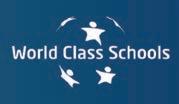
Helen Simpson of St George’s Ascot on how it’s embracing the digital age to give pupils tools for learning and for life
So, how do we handle tech use at school these days?’
That’s a question I get asked a lot. The truth is, it all comes down to balance.
Here at St George’s School, Ascot, we’re committed to developing confident, capable, and connected young women who can navigate the digital world thoughtfully and knowledgeably – so we need to get this right.
This year we’ve made some bold changes. One of the biggest has been introducing Yondr mobile device pouches, aligning with recent government policy on mobile phone use in schools. Since September 2024, we’ve been completely phone-free from Years 7 to 11, with pupils’ phones securely locked away during the school day. Our older girls, in Years 9 to 11, take charge of their own devices, keeping them locked in the pouches until the final bell. This more structured approach ensures that mobile phones stay out of sight and out of mind, allowing pupils to focus on their learning and personal development without digital distractions.
We know excessive screen time can a ect focus, sleep and mental health, and we wanted to tackle that head-on. We also know that we’re not alone in our views. A recent University of Cambridge study reveals nearly half of British teens feel they are ‘hooked’ on social media. Our experience following this chosen approach is that the girls have embraced the change


ABOVE & BELOW
Pupils at St George's
with maturity. They are more engaged, friendships have greater space to flourish, and the school day feels simpler. We certainly do not think that digital wellness is all about locking away phones and turning back the clock. At St George’s our approach is future-focused. We are preparing our girls to navigate and thrive in a tech-driven world. Embracing technology thoughtfully is key to this vision. As our Learning Innovation Lead Elodie Pierre puts it: “When used intentionally, we see that AI can elevate education by enhancing the human connection and critical thinking that our teachers bring to the classroom every day”. This belief underpins our Academic Management Innovation Exploration Plan (yes, even the name sounds like it came from AI). In fact, it’s a roadmap for equipping our teaching sta with e ective measures to integrate AI e ectively into the curriculum. We already ensure that digital skills are taught alongside digital wellness within our PSHE programme, so our girls don’t just use technology but develop a lifelong, balanced relationship with it. We’re not just reacting to the digital age – our
vision is to shape how it fits into education and life.
This approach recognises that while technology o ers remarkable educational opportunities, it must be managed with care and intention. Teenagers today face unprecedented pressures from social media and constant connectivity. Our role as educators extends to guiding them in developing healthy relationships with technology, whether through innovative solutions like Yondr pouches or by fostering open discussions about AI and digital literacy.
At St George’s, we remain committed to setting a national example for digital wellness in education. Our approach, which is grounded in research, empathy, and innovation, ensures our students not only excel academically but also develop the resilience and digital wisdom essential for life beyond the classroom.
We take immense pride in leading the charge toward healthier digital habits, emphasising the importance of conscientious and balanced technology use among pupils and sta alike. Our mission goes beyond academic excellence, empowering our girls to thrive in, and understand, an increasingly digital landscape.





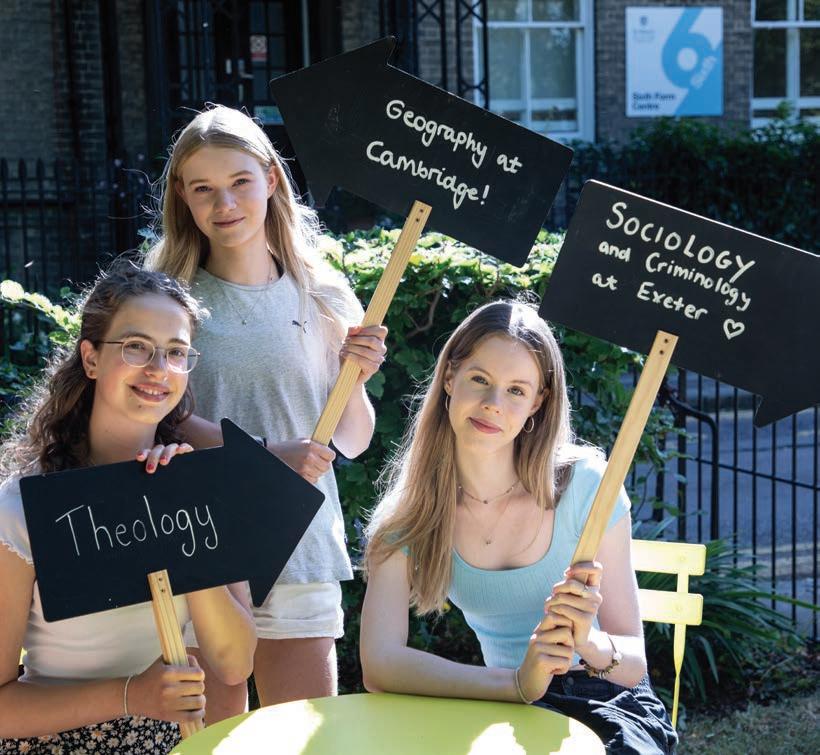
The Value of a Girls’ School
For expat families, choosing the right education for their daughters is a crucial decision. British boarding schools, particularly those with a focus on all-girls education, o er a unique environment where academic excellence is seamlessly combined with personal development, cultural awareness, and preparation for global challenges. St Mary’s School, Cambridge, is one such institution. With a long-standing tradition of nurturing young women to thrive in a competitive and interconnected world, the school provides an environment where girls can grow into confident, resilient individuals ready to take their place on the global stage.
Breaking Barriers Through Education
Despite significant progress, gender disparities in leadership, pay, and career opportunities remain a reality worldwide. This makes it more important than ever to equip the
next generation of women with the skills and confidence to challenge inequality. St Mary’s sees education not just as a pathway to success but as a tool to break down barriers and create lasting change.
Academic achievement is central to the experience at St Mary’s. With over 80% of graduates securing places at their first-choice universities, the school’s track record speaks for itself. However, the approach goes beyond exams. Students are encouraged to think critically, solve problems creatively, and embrace intellectual curiosity. Equally important is the focus on personal growth. In an all-girls environment, students are free from societal pressures and stereotypes. This allows them to take risks, express

themselves openly, and explore leadership roles, whether in STEM fields, the arts, or social advocacy.
Boarding as a Life Experience
Boarding life is more than just a place to study - it’s a space to build lifelong friendships, develop independence, and gain a sense of belonging. With strong pastoral care, a focus on wellbeing, and diverse extracurricular activities, the school o ers a holistic experience that supports each girl’s journey to adulthood.
Preparing for a Global Future
In today’s rapidly changing world, the ability to lead, adapt, and collaborate across cultures is essential. Schools like St Mary’s ensure that girls are not only academically prepared but also equipped with the character and confidence to make meaningful contributions wherever their future takes them.
For families seeking a British education that values academic success, personal development, and global perspective, St Mary’s School, Cambridge, o ers a thoughtful and inspiring choice. Visit stmarysschoolcambridge.co.uk to find out more.
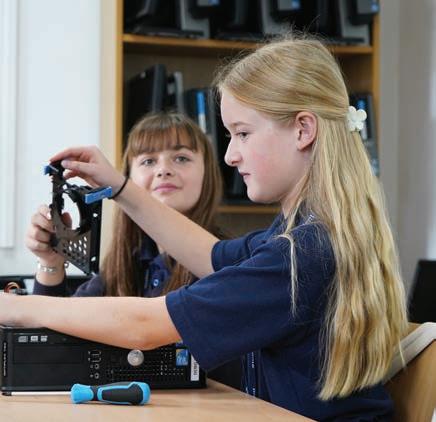
Scotland o ers the best of British education in beautiful and distincitive settings, says Peter Richardson, Head of Loretto School in Edinburgh
For those considering an international education, British schools are incredibly appealing. The education system is widely regarded as one of the best in the world, with high academic standards and a comprehensive curriculum. It’s natural to be drawn to independent schools located in England, perhaps viewing these as quintessentially British. However, by expanding your search slightly further to include Scotland, your child can experience the best of British, in addition to Scotland’s unique heritage, and the prestige of an education within the UK.
Having moved to the United Kingdom 20 years ago from my native South Africa, spending 12 of those in Scotland, and working in independent schools throughout this time, I like to think I’m well versed in the country, in terms of both education and culture. While Scotland has its own exam board,
several schools elect to follow the English examination system – Loretto being one of them. This system presents students with greater choice and flexibility, and the chance to study at a level that suits them, whether BTEC, GCSE, or A Level, translating to academic excellence and the development of interests. These qualifications are held in high esteem globally and symbolise the exceptional achievements of students. This is especially evident as students embark on life after school – each year, our leavers are presented with a wealth of opportunities, both within the UK and internationally. In an increasingly competitive world, holding such highly valued qualifications proves to be of the utmost importance.
Scotland has a diverse landscape, with beaches, lochs, and dramatic mountains being key features, inspiring all who lay their eyes upon them. In addition to being undeniably beautiful, research suggests that access to the outdoors is advantageous

to the wellbeing, development, and educational attainment of young people. Increasingly, independent schools are expanding their outdoor learning provisions, taking advantage of all that the natural environment has to o er. Being a relatively small country means that you’re never too far from the hustle and bustle of fantastic and distinct cities steeped in history, stunning architecture, and culture. Scotland hosts a variety of musical, arts, and sporting events. Every summer, there are eight festivals that take place in Edinburgh alone, including the world’s largest arts festival, The Fringe. Having a balance between these two environments can be incredibly positive for young people. They can appreciate the serenity of the countryside and peace of mind that this brings, whilst city trips stir excitement and fuel curiosity. For students in Scotland, the best of both worlds is very much a reality – and an accessible one at that.
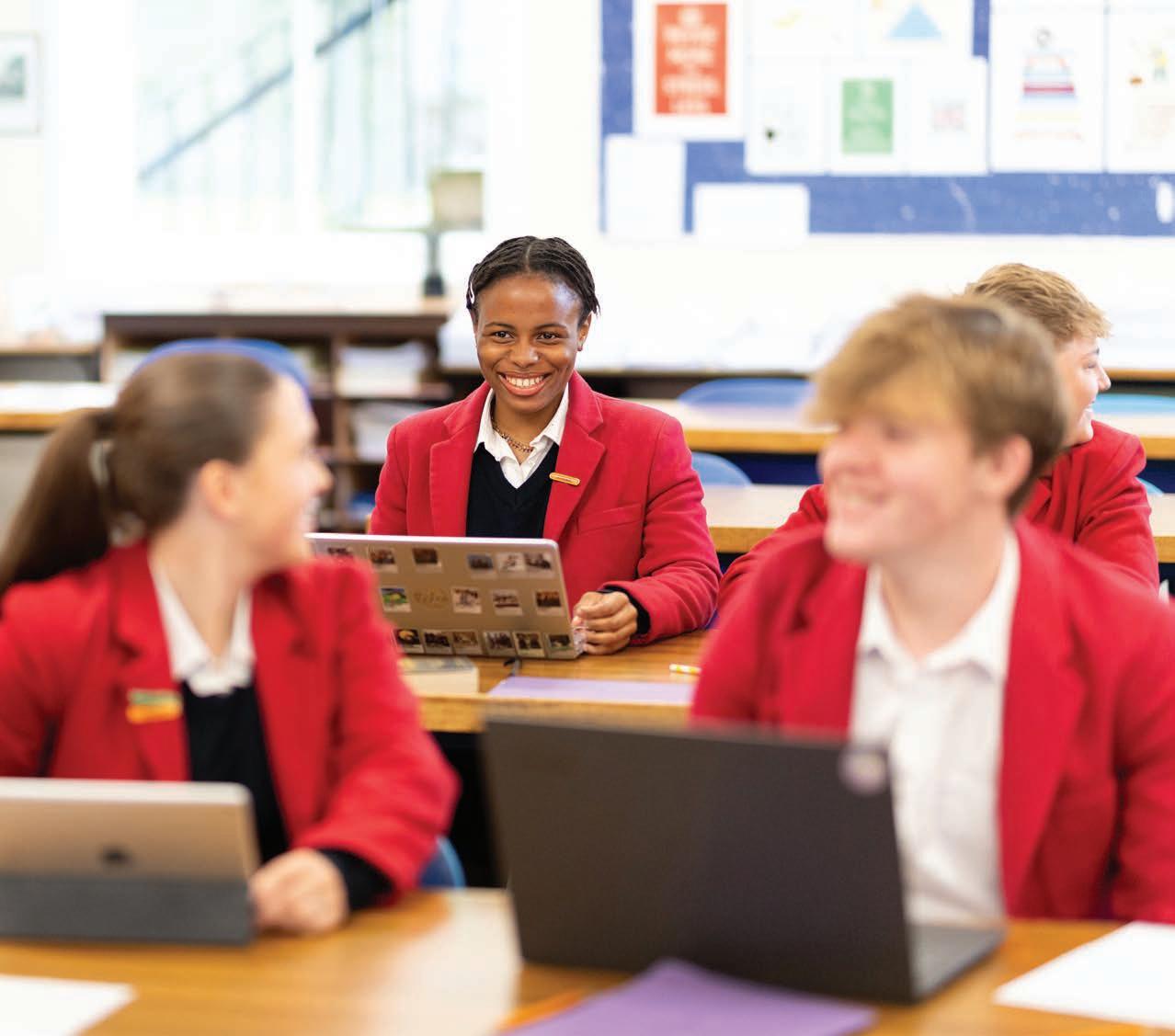
The country’s traditions are equally as beautiful as its locations. Days of celebration, including Burns Night and Hogmanay, ceilidhs soundtracked by the distinctive sound of the bagpipes, and culinary delights all add to the excitement of studying in Scotland. So proud of the nation’s heritage, schools today are enthusiastic to immerse their students in special events to gain a deeper understanding of the country, proving key to the integration of international students into their new home. Despite this strong sense of patriotism, the Scots’ ability to embrace other cultures is not inhibited – rather the opposite. Scotland is known for embracing individuals from all backgrounds, appreciating the vibrancy that this brings, and Loretto is no di erent. We warmly welcome 25 nationalities, representing the makeup of the country and giving students a global perspective that opens them up to the opportunities of the modern world.
For students with a passion for movement, there really is no greater place to study. Independent schools o er varied sports programmes, whether as part of the curriculum or as co-curricular activities, including sports that were invented and developed in Scotland. Perhaps most well-known are the country’s ties to golf, with the game being established here in the Middle Ages. With over 500 courses around the country, golfers are spoilt for choice. To make the most of this fantastic o ering and play to the best of their abilities, young people require excellent training facilities. That’s why we established the first Golf Performance Centre within an independent school in 2002. Students are coached by five experienced PGA professionals within innovative facilities and enjoy proximity to some of the finest courses along Scotland’s

Golf Coast – a winning combination that results in outstanding players. Whichever sport your child is passionate about, Scotland is not short of schools with the means and opportunities for them to flourish. Throughout history, Scotland has been at the forefront of technology and innovation. From the ATM to the telephone, several inventions that revolutionised the world have their roots here. Independent schools combine tradition with modernity, encouraging creative thinking, while still giving students the experience of an esteemed education within a British institution. Great minds are made in Scotland – let your child be next.
loretto.com
A surprising number of students choose their A levels unaware of the long-term impact on future study and career if they get it wrong, says Quintessentially Education’s Jess Harris
Lily is doing the wrong A levels. A Year 13 student at a leading London girls’ school, she has realised that the subjects she has chosen aren’t right for what she wants to study at university.
When she took her GCSEs, she was keen on humanities and textiles and opted for History, Psychology and Fine Art for A level. But she now realises she wants to study something to do with Life Sciences and she can’t do that without Biology A level.
She is not alone. Which, the UK consumer choices group, reported that 28% of more than 1,000 university applicants aged 18–19-years-old said, when surveyed, that they wished they had chosen di erent subjects. And only half of students surveyed felt well enough informed about how the subjects they had studied could a ect their choice of degree and university. At Quintessentially Education, we are often asked to support young people who have chosen A levels without realising the full implications for their future studies.
“It would be really helpful if our education system started with the desired university
degree and worked backwards,” says Amelia Buckworth, Education Manager at Quintessentially Education. “If we started with where students want to end up, we could ensure they have clear academic pathways. Instead, students narrow their subjects in Year 9 when they choose their GCSEs and again at A level.”
Of course, some students know early what they want to study at university, but many others are unsure. Even for students who have a clear idea of where they are heading, Buckworth advises doing the research. “Di erent universities and courses have distinct subject requirements. Being aware
“28% of university applicants aged 18–19 said they wished they had chosen di erent A-level subjects”
of these di erences early on will help ensure that students’ chosen GCSE and A-level subjects do not become a barrier to pursuing a certain academic interest, or a particular university.” For example, a BSc in Economics at LSE requires an A* in Maths, but a BA in Economics at SOAS does not.
By far the largest number of A-level students we support are those who dropped maths after GCSE without realising they needed an A level in the subject to go on to apply to their desired STEM course at university. Buckworth says: “What may take you by surprise are the courses that you won’t study at school, such as Aerospace Engineering”.
For those who are unsure when they embark on choosing GCSEs and A levels, Buckworth suggests keeping options open. It helps to research a selection of subjects to gauge the entry requirements. It might also be wise to choose one or two ‘facilitating subjects’ – academic A levels that top universities prefer (see Do... panel, right).
For those students who have started A levels and realised they aren’t the right

“Universities and courses have distinct subject requirements – a BSc in Economics at LSE requires an A* in Maths, but a BA at SOAS does not”
subjects, it’s important not to panic. If you’re only a term in, think about switching just after the winter break. This is school dependent, but we have supported students who have changed an A-level subject after one term. Alternatively, if you have your heart set on a particular course at a particular university, you could explore taking on another A level. “We only advise students to take four A levels in particular circumstances,” says Buckworth. “But if
picking up a fourth helps you get on to the course you want to do, then it makes sense.”
It can also be a good idea to broaden your university horizons – there are so many courses to choose from, all with di erent entry requirements. Another option is foundation courses, which take up to one-year to complete, typically have lower entrance thresholds and may help get you to your destination point. These can be studied at a university or sometimes at another location (for instance, a further education college) and are designed to help access university. Buckworth doesn’t recommend banking on this route, but adds that successful completion enables many students to access their chosen course. Most important of all is to do your research. “It doesn’t matter if you don’t know what you want to do at university, but make sure you get good advice,” says Buckworth. “Ask your school for advice on how to keep every pathway open, and there is always secondary expert support available, too.”
Jess Harris is the Director of Quintessentially Education
• Get honest teacher feedback on how you’re likely to perform before choosing A levels.
• Bear in mind those ‘facilitating subjects’ that keep more HE options open (History, Geography, English, Modern and Classical Languages, Biology, Chemistry, Physics, Maths and Further Maths).
• Be wary of A levels with overlapping curricula – for instance Business Studies and Economics – if you are taking three A-level subjects.
• Consider Art or Music as a fourth subject, rather than one of your three subjects, if you are unsure of your course direction.
• Assume you will like a subject at A level just because you liked it at GCSE –research the syllabus.
• Narrow your options by choosing subjects considered ‘so ’ by some universities. Examples may include General Studies and Global Perspectives.
• Take all new subjects – three, or even two, entirely new areas of study might become overwhelming.
• Study a Modern Foreign Language (for instance, French, Mandarin or Spanish) as one of your three core A levels if you are already a native speaker – it may be viewed as a ‘light’ option by universities.

Why Full Boarding benefits international students as well as the wider school community at Millfield
Full boarding is a concept that is becoming increasingly rare in Britain. Many schools o er a plethora of boarding options, flexi, weekly and occasional boarding, meaning schools are quiet, or often empty, on weekends. At a real full boarding school, children live on campus seven days a week and have lots of company in the evenings and on weekends in the boarding houses. The community remains active and vibrant.
This is very important for international students. Many boarding schools have a very small number of overseas students left on campus at the weekends because other students only board Monday to Friday and return home on the weekends.
Millfield has 950 full boarders. This is three-quarters of all the students in the school (1300). Even if 100 students leave school for various family occasions or other commitments over a weekend, 850 students remain on campus. This is important for social interactions, activities and enjoyment of school life.
Millfield Prep has 125 full boarders, and 20 occasional boarders. This is one third of all the pupils in the school. This is a really good size group of children who live at school all week.
A busy boarding house also helps children cope with any homesickness. The consistent nature of full boarding means that children can familiarise themselves with the school routine and get to know

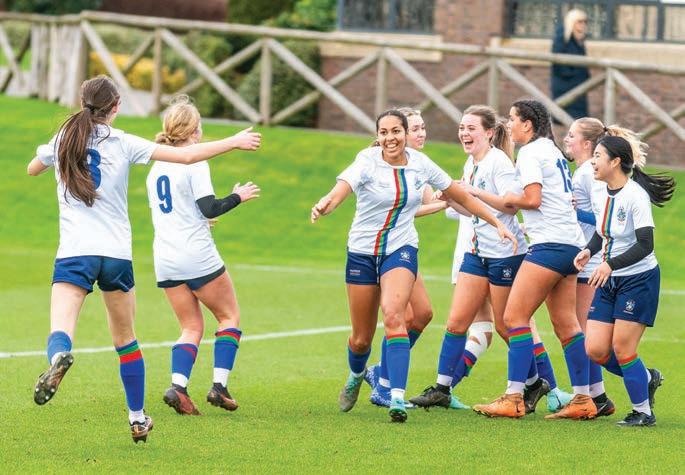
their peers and sta really well. Houses are alive in the evenings and on weekends, and a busy programme of activities and events keeps students busy and occupied.
Many schools have frequent fixed exeats throughout the year which can be a headache for parents of international students who often have to go to their UK based guardian or relative. This break in the term hampers progress and often causes students to lose momentum throughout the term. Millfield only has one fixed exeat per year, at the end of September in the Autumn term, so everyone gets a break after a busy start to the academic year. Optional exeats are possible to be agreed with Houseparents should parents be in the UK.
Full boarding schools will arrange travel for children to get to and from airports and train stations at the start and end of terms. Group travel arrangements are made for large numbers of students travelling to the same destination. At Millfield, sta representatives are at London Heathrow and on the main train line from Somerset to London at the start of term to welcome students back to the UK and help them on their onward travel. At Millfield, over 20% of boarders are international
from over 70 di erent countries. No one nationality dominates, but Hong Kong and the Middle East are regions where many of our students reside. We also have another 20% who are British students living overseas. This creates a wide cultural diversity and is something that has been a feature of Millfield since its foundation in 1935. Houses are a fusion of backgrounds, cultures and beliefs, and everyone learns from and embraces this mix. At the start of the academic year, we hold an induction day specifically for international families which allows students to spend more time with their new Houseparent and to start to make friendships. This community feel, and meeting people from all over the world, is often cited as a student’s favourite aspect of being at Millfield and is one of the distinctive features of the school.
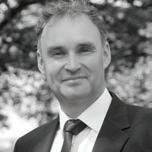
Our experts answer questions on e-learning tools versus tutoring and helping a child build up resilience and self-esteem

Nathaniel McCullagh
Managing
Director,
Simply Learning Tuition
QMy friend has hired a full-time tutor for her two children who go to my son’s school. The tutor is prepping one child for a Yale application while he teaches IGCSEs to the other. I want my son to have the best education possible – should I consider hiring a tutor for him, too?
ATutors have never been in higher demand it would seem: 46% of London children receive tuition outside of their normal school hours, according to The Sutton Trust (2023). Given the high prevalence of tutoring, many parents may feel they need to find a tutor just to make sure their child isn’t missing out. However, my strong advice is, don’t panic. Talk to your son’s teacher or headteacher to get an accurate picture of his academic progress and whether he is on track to get the results he, you and the school believe he can achieve.
As all parents know, every child is di erent and will have di erent learning styles. If your child is doing well at school academically, performing above expectations in school exams and well-motivated to reinforce his school learning at home with homework and revision then I doubt you will need the help of a tutor.
At Simply Learning Tuition we would not accept jobs where tuition is not required; we would not want to waste your or your

son’s time. Artificially pushing a child beyond their capabilities is not in anyone’s interests and may even lower their general confidence and raise anxiety levels. There are circumstances, however, when a tutor is invaluable. I completely support your friend’s decision to get specialist advice for a Yale application. Simply Learning Tuition has successfully guided many students and families through every stage of the competitive US admissions process; not all senior schools will have extensive experience of this and so getting specialist support is a good idea. If you feel, or your school’s advice is, that your son has obvious gaps in his academics, it is well
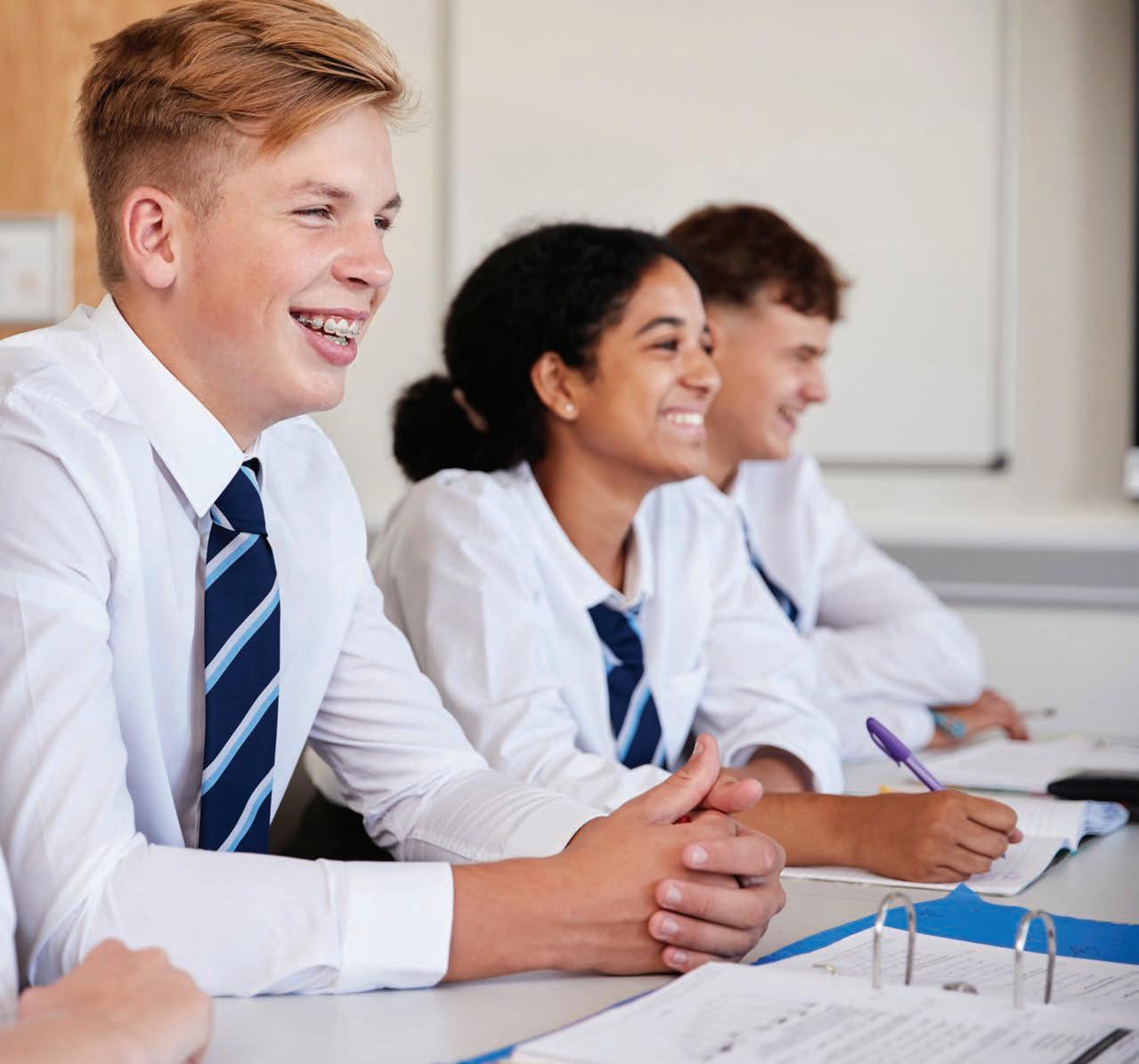
“Many parents may feel they need to find a tutor just to make sure their child isn’t missing out”
worth looking for additional help from a tutor. Danger signs to look out for include a bad school report, a call from the teacher or worse, a child who is trying to miss school, is stressed and seems worried. If any of this is ringing alarm bells, my strong advice is to contact a tuition company, with an established track record.
A good tuition company will have met and vetted all their tutors, ensured they have a strong academic record, extensive teaching and tutoring experience and set up stringent safeguarding checks. They should suggest two or three tutors for you to choose from and will act as an advocate for you, ensuring you find the right tutor to suit your
child. Importantly, they can step in to quickly resolve any niggles or di culties should they occur. You will need to decide if you want face-to-face or online tutoring. Inperson tutoring can be preferable for younger children and SEN students. We find that demand for in-person tutoring is particularly high at the moment, so don’t leave it to the last moment to find a suitable tutor once you decide to go down that route. Finally, remember that you are entering a fixed-term process with a distinct end goal: a child who can succeed independently in their study and is best placed to fulfil their academic potential. simplylearningtuition.co.uk
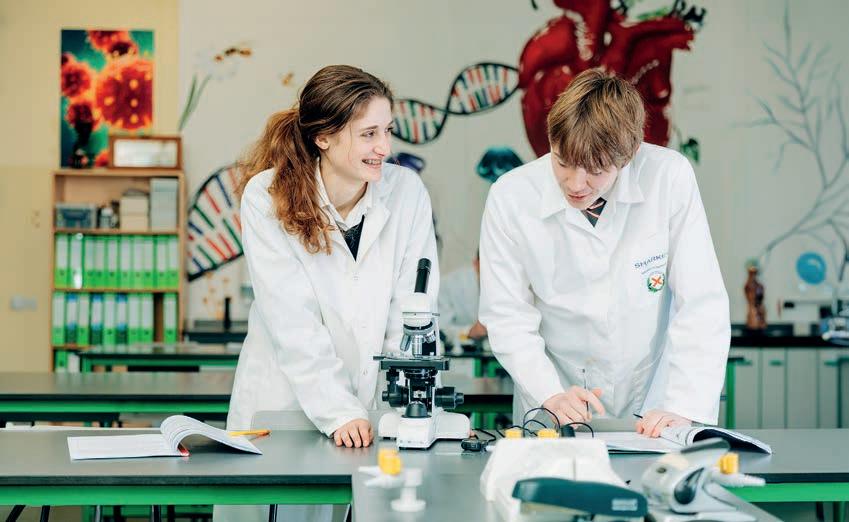













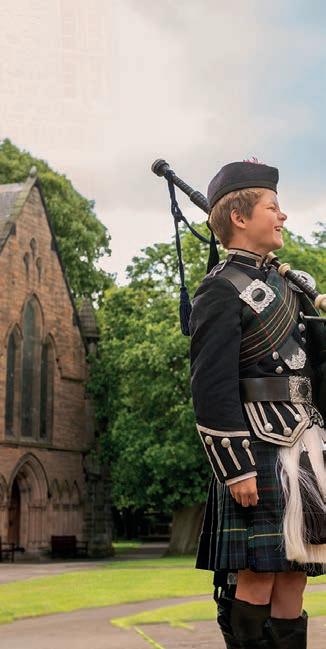

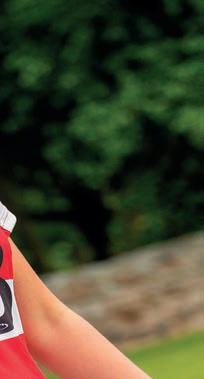

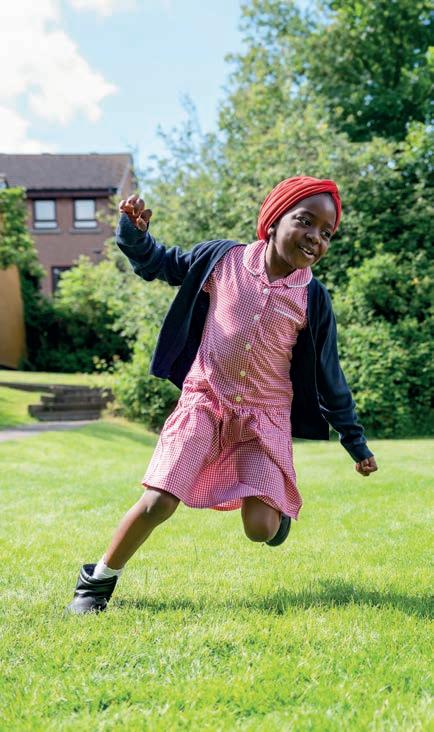
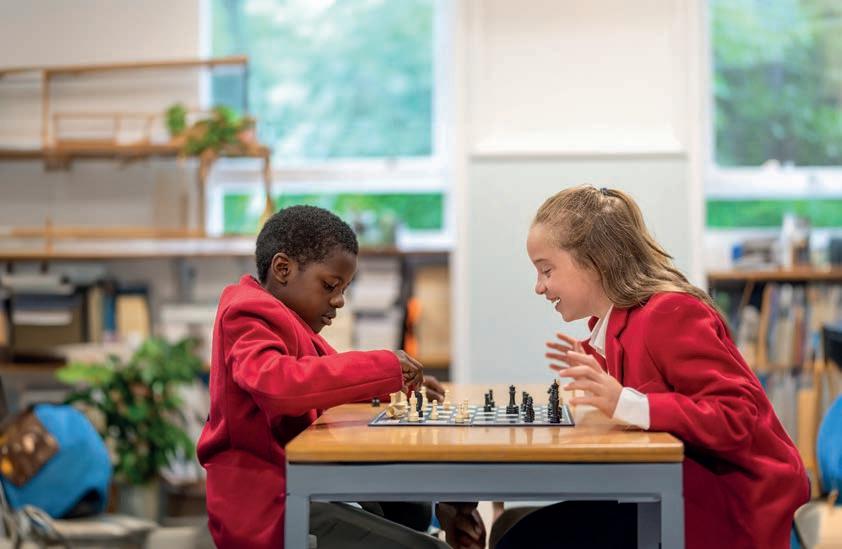
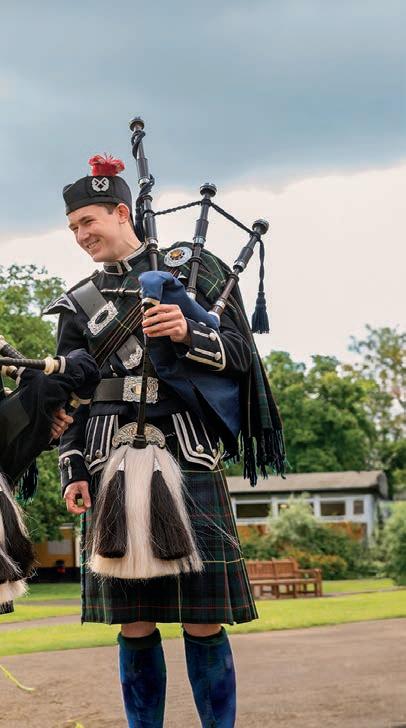
Cavendish Education, a family of schools for neurodiverse young people, on harnessing AI
The educational landscape is undergoing rapid transformation and Artificial Intelligence (AI) is fast emerging as a powerful tool for enhancing learning experiences. However, it is crucial to recognise that while AI can augment education, it cannot substitute the irreplaceable value of human interaction.
Within specialist schools like ours, we believe in an approach that leverages the strengths of both AI and human educators to create an optimal learning environment for our students, many of whom have struggled to thrive in the mainstream education system and so join our schools with the need to learn di erently.
As such, we look to present education in a tailored way to appeal to and work for the unique minds of our students. Harnessing AI brings a wealth of potential benefits. AI-driven platforms can tailor learning activities to suit the individual needs and pace of our students. It can also provide immediate feedback, helping students to understand and improve their skills in real-time.
Technologies like text-to-speech, speech-to-text, and other accessibility tools that help our students to participate fully in learning activities can incorporate AI, benefiting both accessibility and inclusivity. For dyslexic learners, for example, AI can build confidence in a safe, controlled environment, adjusting the pace and di culty of content based
“The most e ective educational models will embrace the potential of AI while preserving human interaction”
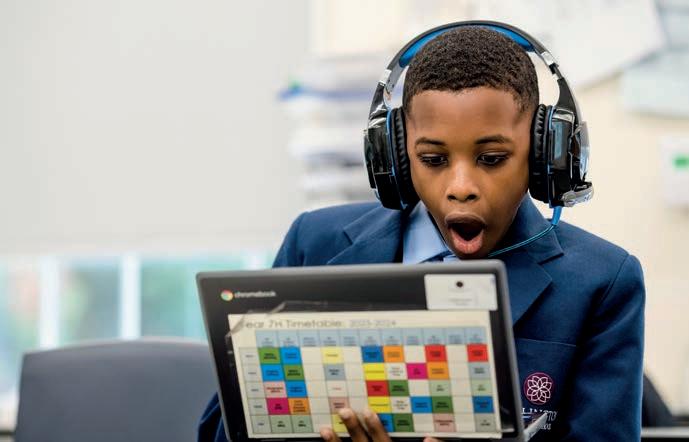
on an individual’s needs. It can also o er continuous assessment, tracking progress in real-time and adjusting learning paths. Some neurodiverse students require support with developing other skills – for instance, support for planning, sequencing, boosting working memory and executive functioning skills. In addition, and perhaps more importantly, these students benefit from help with social interaction, communication skills and emotional support.
While AI can create environments where students practise social interactions, –helping them to develop skills such as turntaking, active listening and appropriate responses – it is here where the human touch is so important. Human educators possess the unique ability to inspire, motivate and create a supportive learning community. They can provide the empathy, encouragement and guidance that all students need to develop their full potential.
Soft skills such as appropriate and e ective communication, collaboration, emotional intelligence and wellbeing, which are essential for success in the modern world and in the world
of work, are best developed through consistent human interaction.
As educators, we can model these skills, provide opportunities for practice, and o er tools, strategies and constructive feedback to help students build confidence, competence, creativity and character.
As we look to the future, it is clear that the most e ective educational models will be those that embrace the amazing potential of AI while preserving the essential role of human interaction. This collaborative approach will ensure that our students receive the comprehensive support they need to succeed in an increasingly complex and interconnected world.




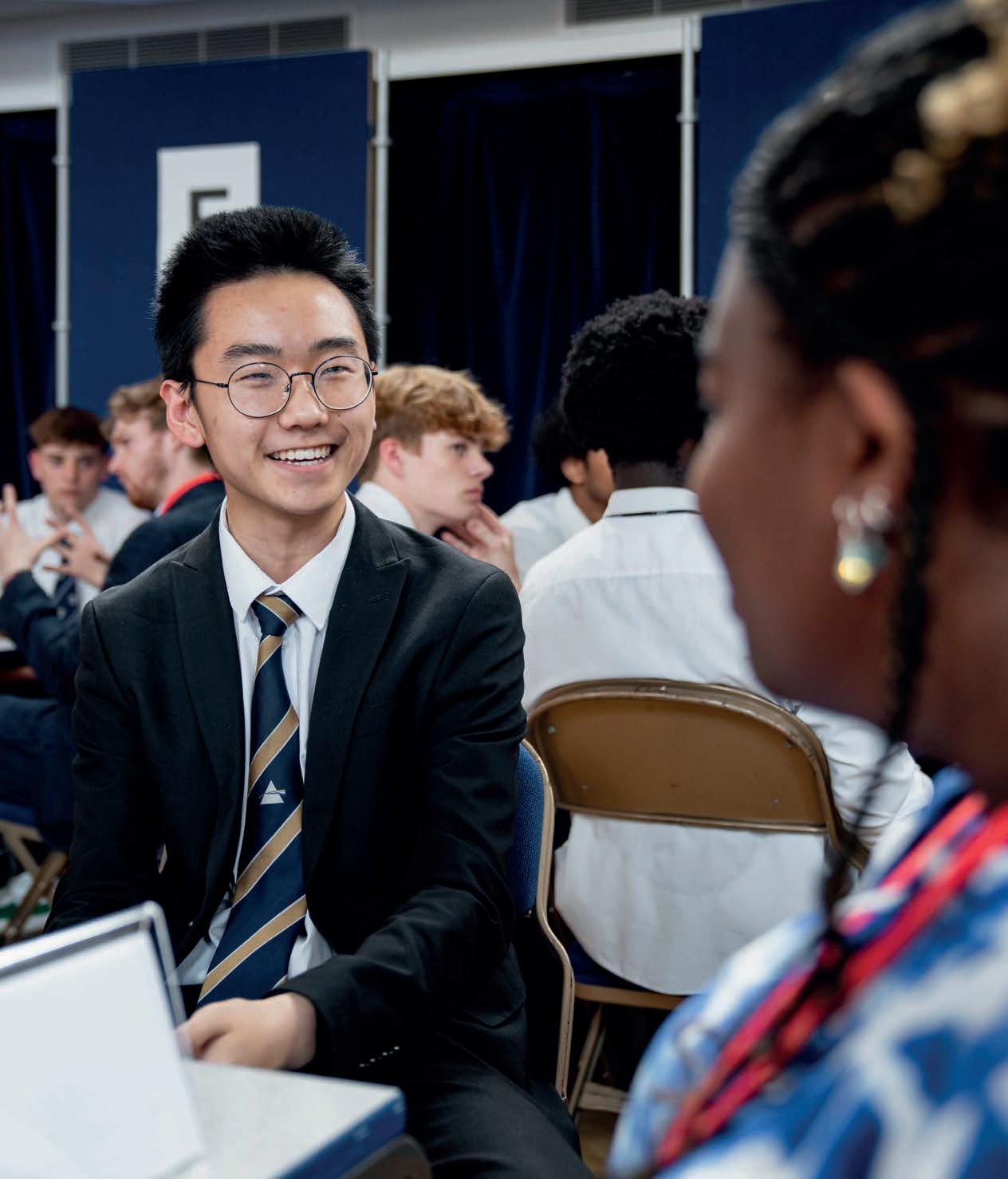
“There is a strong interest in traditional UK institutions, but also an increasing awareness of less traditional routes – including apprenticeships”
With so much change going on in the higher education and jobs landscape, how do we guide young people to make the right choices for them? We get insights from careers specialists at three leading independents
We hear: ‘educating for careers that haven’t been invented yet’ a lot and – like all great clichés –it’s making an important point. What world are young people full of ambition, skills and talent heading into? We can be pretty certain that side ventures and career changes are increasingly likely – the job for life is so 20th century. Then we have a degree of uncertainty in the higher-education landscape (with more to come). Also, young people’s perceptions of the value of committing to a chunk of debt before they even join the world of work come into play. These and other tough questions are facing careers advisors tasked with giving guidance. Here’s what they say.
At Whitgift we’ve moved away from the whole notion of ‘career advice’ –which conjures associations for me of the ‘expert’ telling a young person how to map out their life, with little regard for the seismic changes in the world of work that are now underway, and
little respect for the young person’s autonomy,” says Kate Goldberg, Assistant Head (Student Futures).
She says a whole di erent mindset is required. “We’re committed to a coaching ethos, which centralises an ongoing discussion about the young person’s values, strengths and interests and gives the students the tools to match these to potential careers and higher education options.” In Whitgift’s approach, there’s also recognition that young people may well change course as their interests and strengths evolve. The aim, says Kate Goldberg, is to give them the tools to carry on with the coaching on what they want long after they’ve left school. There’s plenty of in-school inspiration though. “We have an extensive programme of employer encounters – which starts from Year 6 – and ensures our students are exposed to a wide range of professionals from di erent sectors and industries.”
Kate Goldberg believes we may be behind the times in understanding young people’s viewpoint and knowledge of what a good job is. “The stereotype is still that they want a job as a doctor, lawyer or investment
banker – and they feel they need to study Biology, Latin or Maths to open certain doors. But we’ve now embedded our Student Futures programme into our PSHE curriculum,” she says. “Throughout their time at school students develop their understanding of growing and shrinking industries, the changing workforce and how key skills are used.” Useful intel, as is Whitgift’s inclusion of topics such as entrepreneurship, global citizenship, digital literacy and critical thinking within the Junior Year Curriculum (ages 10-12), and with a focus on their importance to future employability. Students are also up to speed on shifts in higher education so, while most students still focus on Russell Group universities, there’s increased interest in international universities and degree apprenticeships. “It’s interesting that we see some of our brightest and most aspirational students choosing degree apprenticeships now. They suit students who are self-starters and already focused on a particular professional pathway,” says Kate Goldberg. Whitgift is doing more in the space around evolving options – notably degree apprenticeships – as it watches the landscape of funding for UK
universities. Kate Goldberg notes that students are certainly attracted to the idea of zero student debt, a salary as they develop their professional skills – and also notching up three years’ career experience when peers are still on the jobs starting block.
With so much to consider, it’s certainly an increasingly tough decision-making process. “I tell students not to worry at all of they don’t know what to do by the time they leave school,” says Kate Goldberg. “Studying a subject you love is always going to be better than forcing yourself to do something you have zero interest in, just because you think it leads to a better career.” Ultimately, the jobs may change but some things will always stay the same. “Most workplaces want passion, people-skills and raw talent; they’ll teach you the specifics on the job.”
Careers advice starts early at Oakham School, paced to be appropriate to age and stage. “We include information on careers in the pastoral curriculum for all year groups, including those in the youngest year. Events and one-to-one guidance then increase as students make GCSE choices and move through study at GCSE and post-16 level,” says Dr Rachael Pearson, Head of Careers and Progression.
Getting the right blend is important, so Oakham o ers a mixture of talks, workshops and individual support. Students are pretty well informed at
a general level but may want a bit more support on the specifics. “Our students are engaged and aware of the world – they have heard of potential pathways in many cases but may not have access to information on the details or planned changes to application systems, for example,” says Rachael Pearson.
The careers team suggest bespoke areas for students to investigate, also o ering access to platforms, such as Morrisby and Unifrog, that help students consider their aptitudes and interests and check out choices in higher education and careers. Oakham students are increasingly open to the variety of options. “There is a strong interest in traditional UK institutions but also an increasing awareness of overseas options and less traditional routes – including apprenticeships and also interdisciplinary and multidisciplinary degrees.”
Oakham gets critical advice started early – GCSE students get advice sessions on producing a CV, and are also o ered follow-up meetings. “We stress the significance of transferable skills and competencies, especially in relation to co-curricular activities, so students become accustomed to understanding these through the lens of recruitment. The school is active in organising and supporting placements, also helping with that key non-school reference for onward destinations.

Interest in apprenticeships is growing all the time and there’s a dedicated Work Experience and Apprenticeships O cer at Oakham. “Demand can outstrip supply though – it is a competitive route.” Inevitably, money is part of the choice equation, and Rachael Pearson finds that students thinking about university are influenced by factors such as outlay versus time to recoup. “They also express concern about the cost of living being higher in some cities, especially in London.”
Oakham o ers a full suite of study options – A level, BTEC and IB – so part of the advice process is to encourage students to think about how they want to learn, as well as what they want to learn. But Rachael Pearson says the team are also on hand to advise on ensuring subject combinations to keep options open. “We do point out that some career and higher education pathways have prerequisites – and we also encourage students to explore how subjects become broader at higher levels, so can lead to routes they may not have considered.”
At The Leys in Cambridge, careers education starts early. “Starting in Year 7, we deliver a focused and impartial careers curriculum,” says Head of Sixth Form and Careers Robin Gri ths. This gears up as children grow, with some sessions delivered across year groups, others to interested groups. Often the advice is one-to-one, and a critical aim is to build emotional intelligence so students think broadly and make informed choices.
While some pupils are very well informed, others can be uncertain about where their future lies, so narrowing down happens organically, not just in careers sessions.
“Curriculum learning is linked to careers, and we encourage pupils to investigate a broad range of opportunities and career options to help them make informed choices appropriate to their personalities, interests and aptitudes.”
The Leys gives access to Unifrog, so young people can do their own research, and also provides expertise with the mechanics of UCAS, Oxbridge and international university applications. There are lots of events throughout the year, from industry-

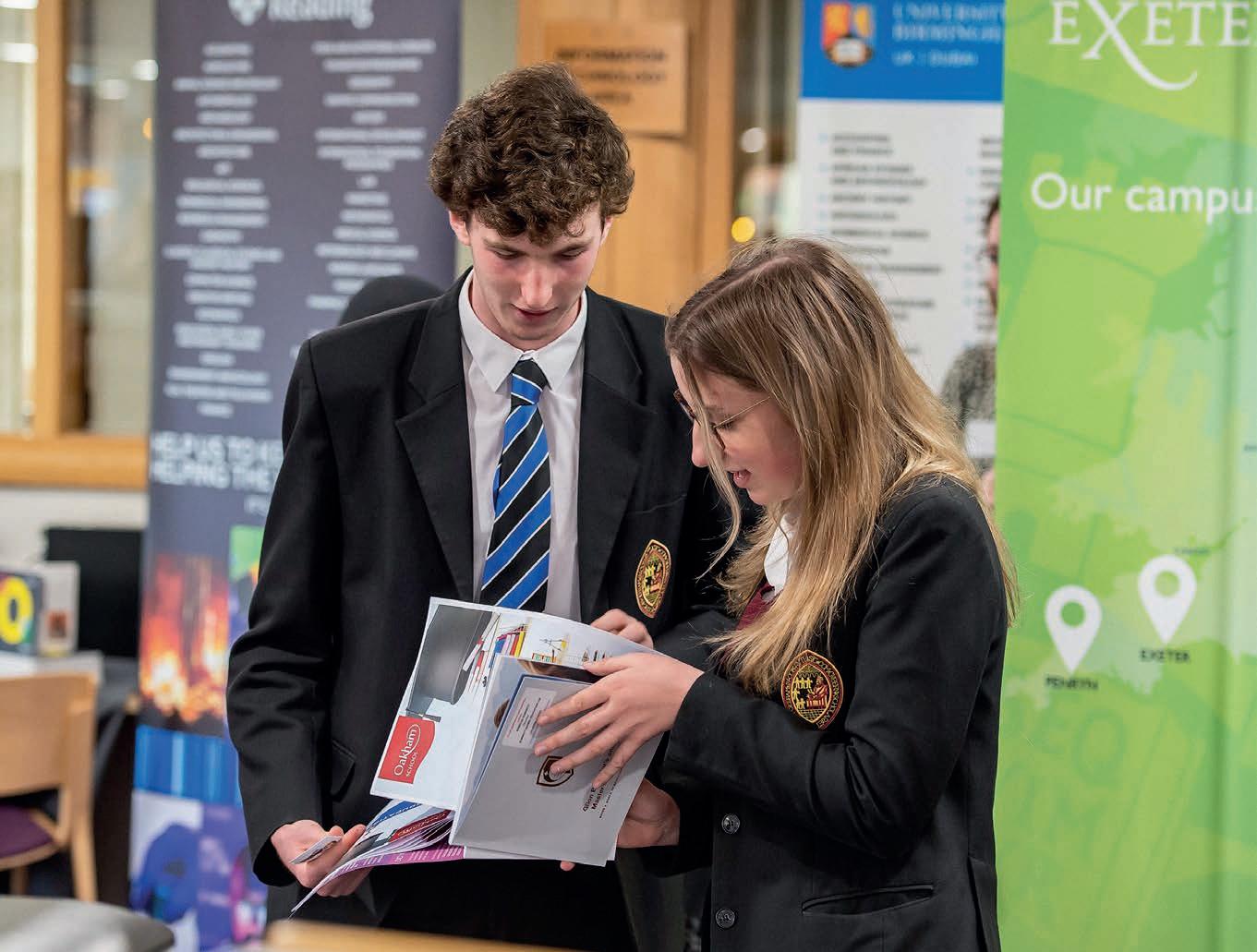
specific workshops to careers forums.
A Cambridge location means a great range of visiting speakers. “Recent guest speakers have included an RAF fighter pilot, a co ee entrepreneur, the General Counsel for Adidas, a leading author and film director, a computer gaming artist, a Fellow of The Institution of Mechanical Engineers and the Head of Microsoft’s Talent Sourcing Team,” says Robin Gri ths.
The Old Leysian network also proves to be able and willing, with speakers, careers advice and work experience all being o ered in support of current pupils – and, says Robin Gri ths, these can be the most inspiring insights and connections.
Higher education talks are a big feature of careers support during Year 11 and Sixth Form, and the Careers
O ce has drop-in guidance sessions. There’s also advice on CV building and writing, as well as support with work shadowing and work placements.
Russell Group universities are still very popular, but the school, like the city of Cambridge, is cosmopolitan, so there’s also plenty of interest in international destinations. “We had university applications to the USA, Canada, Europe and Asia last year,” says Robin Gri ths. “Those pupils are looking for di erent types of educational opportunities, particularly with those applying to the US where the emphasis is on breadth of curriculum.”
While the degree versus apprenticeship debate is not new, says Robin Gri ths, interest has certainly grown. “They are now recognised as a high-status alternative to university.
“Students develop their understanding of growing and shrinking industries, the changing workforce and how key skills are used”
Those degree apprenticeships that combine employment with a wellrespected firm and a high-quality degree course are seen as a very attractive option, although they are highly competitive as a result.”
He believes financial considerations are influencing students’ decisions on onward destinations – as is the current state of the university sector.
“Fear of debt and concerns over the rising costs will deter some young people,” says Robin Gri ths. “For others, it will influence choices over what and where to study, with living expenses often a deciding factor in more young people choosing to stay living at home while studying nearby. The value for money of investing in a degree is also under scrutiny.”
Robin Gri ths believes that the old rule of doing what you love is still a good one, with the usual proviso of choosing wisely if you have a specific course or university in mind. “Passion and natural aptitude can certainly help towards getting better grades.” he says. “It is also perfectly normal not to know what you want to do for a career, or what you want to study at university – and many graduates go on to work in fields completely unrelated to their chosen degree.”
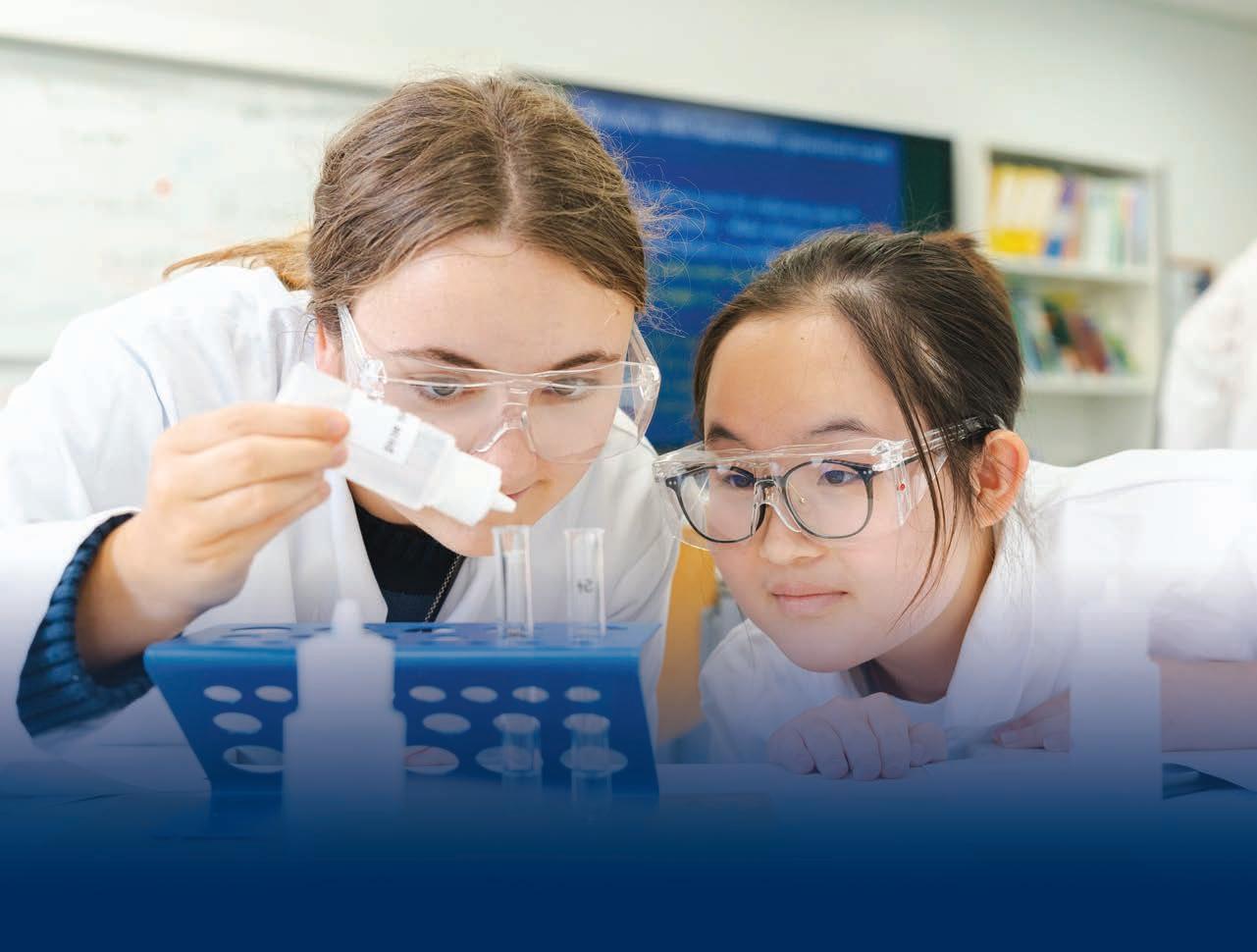
James Barton, Global Director of MPW, considers what ‘value added’ signifies in a world where tax has been imposed on independent schools
There’s a peculiar charm to British bureaucracy. It can take something as mundane as Value Added Tax (VAT) and turn it into a philosophical debate about fairness, privilege and the purpose of education. Independent schools now find themselves in the VAT crosshairs, as the government’s decision to remove their tax-exempt status has sent ripples through the sector. To some, this is justice – a long-overdue levelling of a tilted playing field. But amidst the applause and outrage, one question lingers: does redistributing resources solve the real issues we face in education?
How do all schools, state and independent alike, use their resources to add real value to students’ lives? And for that, let’s return to the name of this much-debated tax itself. Set aside the ‘T’ (a challenge for HMRC), and we’re left with the heart of the matter: ‘value added’ and what this means in education. It’s not about budgets or rankings but about how schools transform the lives of their students.
For centuries, education wasn’t a numbers game. Medieval grammar schools didn’t chase rankings or collate spreadsheets. They were places of formation, not calibration – focused on instilling discipline and knowledge, even if their methods occasionally leaned into questionable territory (apologies to lefthanded students coerced into writing with their right).
“Value added is not about rankings, but about how schools transform the lives of their students”
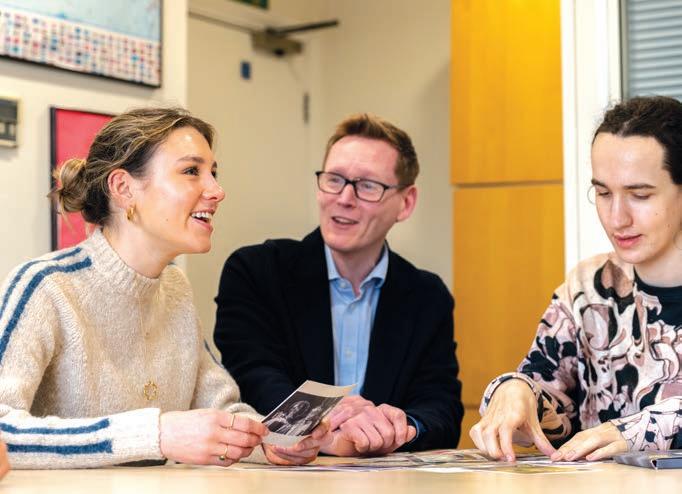
Somewhere along the way, we traded formation for calculation. League tables, introduced with great fanfare, promised clarity, but schools were reduced to data points. The problem isn’t the data itself, but how it is often used. Schools can top the rankings through cherry-picked metrics – test scores here, attendance there – but numbers obscure the quieter victories that define education.
Even the Greeks, trailblazers of Western education, would struggle to comprehend our obsession with league tables. While they valued feats like memorising the Iliad, they also understood the importance of nurturing the soul. Plato didn’t rank his students, nor did Aristotle hand out gold stars. Their goal was wisdom, not quantifiable achievement.
The duty to add value applies universally. Independent schools must prove that their resources are tools for transformation. State schools, now described as ‘beneficiaries’ of this tax reform, must ensure that any extra funding translates
into meaningful outcomes.
And what about the students themselves? Schools across both state and independent sectors must ask if they are equipping young people to thrive in an ever-changing world. They must also ask if they are nurturing thinkers, creators, and collaborators – qualities that society desperately needs and that no league table can measure. In the end, education is not about privilege or policy, it’s about potential – lives changed for the better.

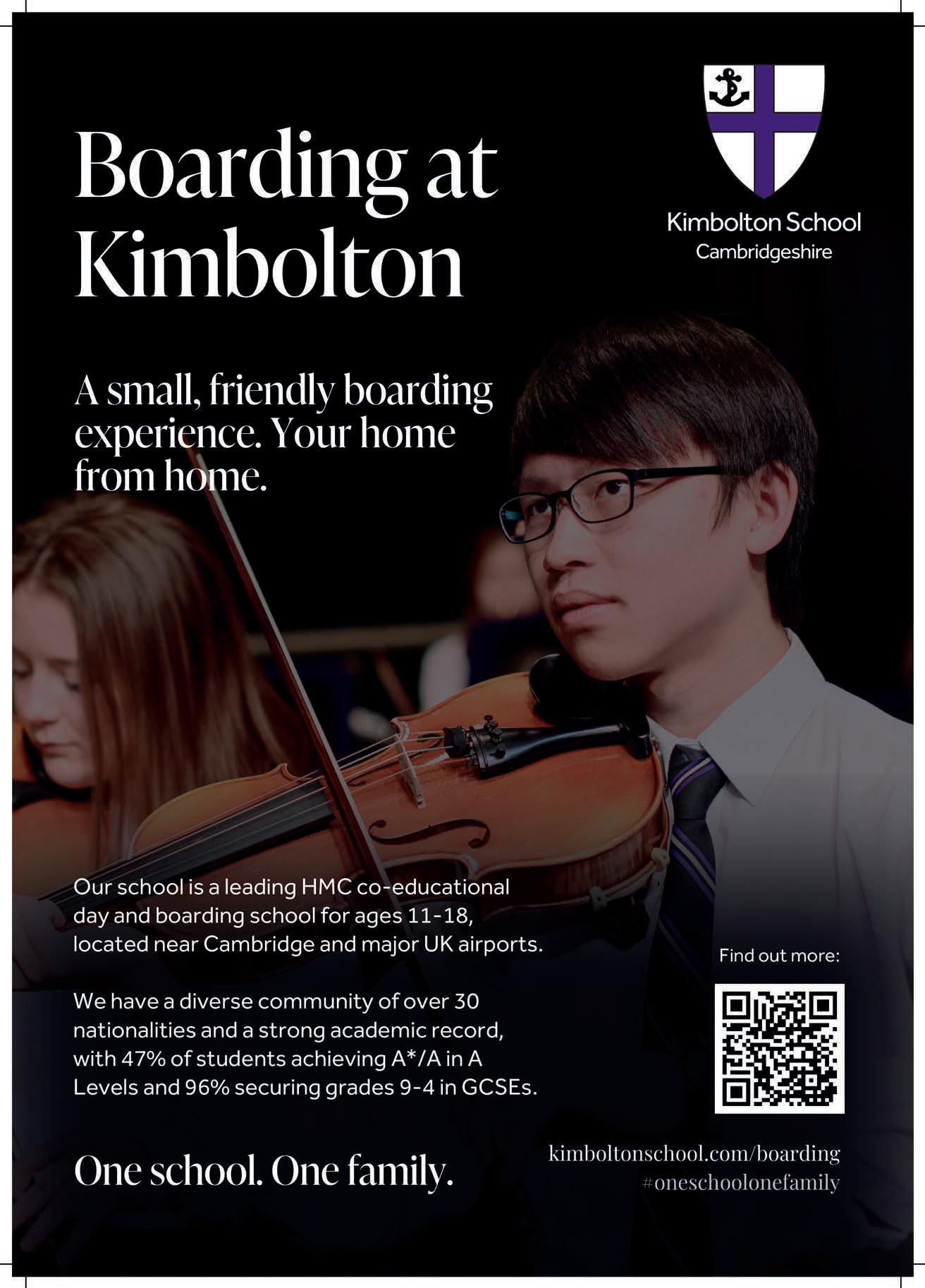
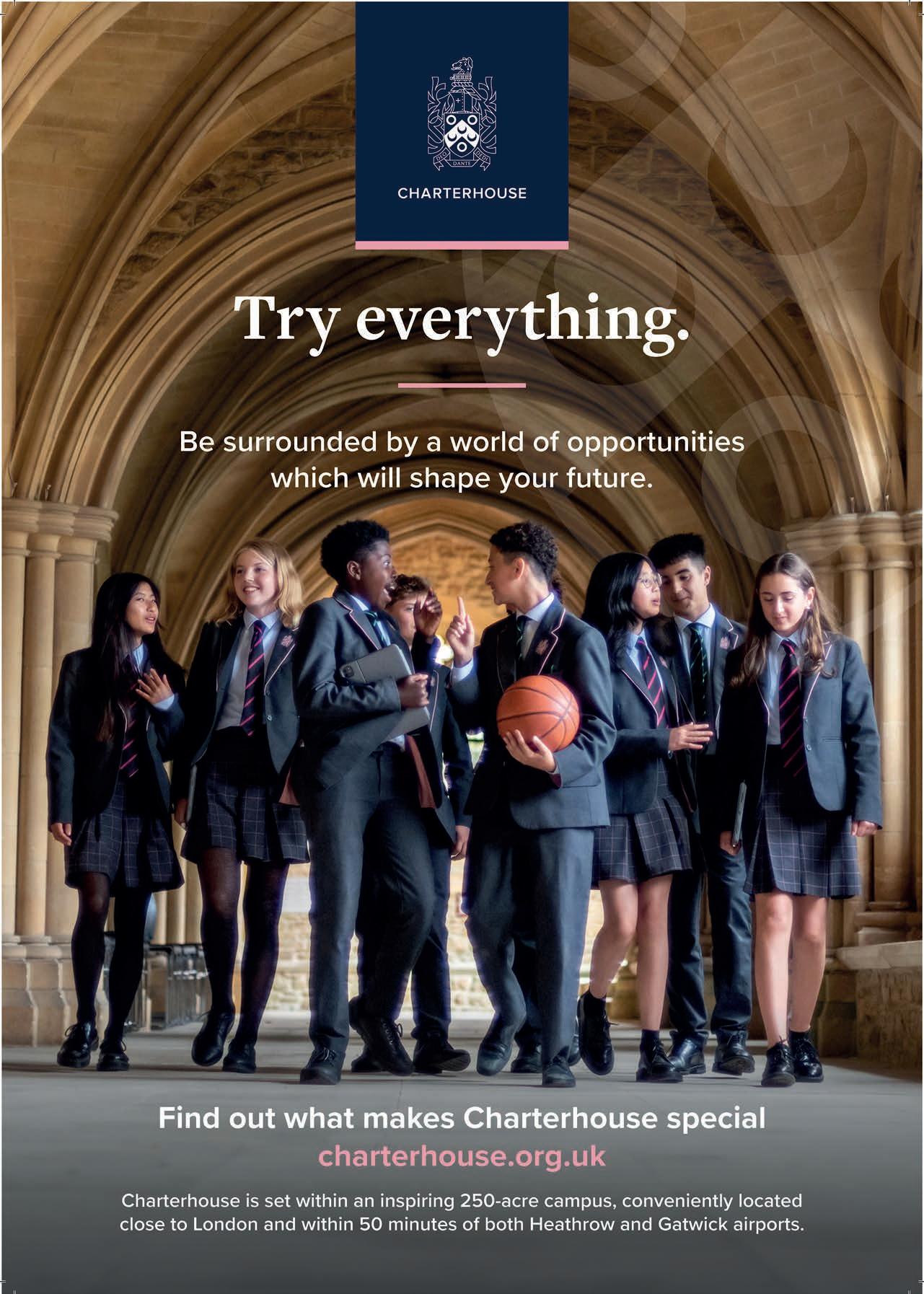
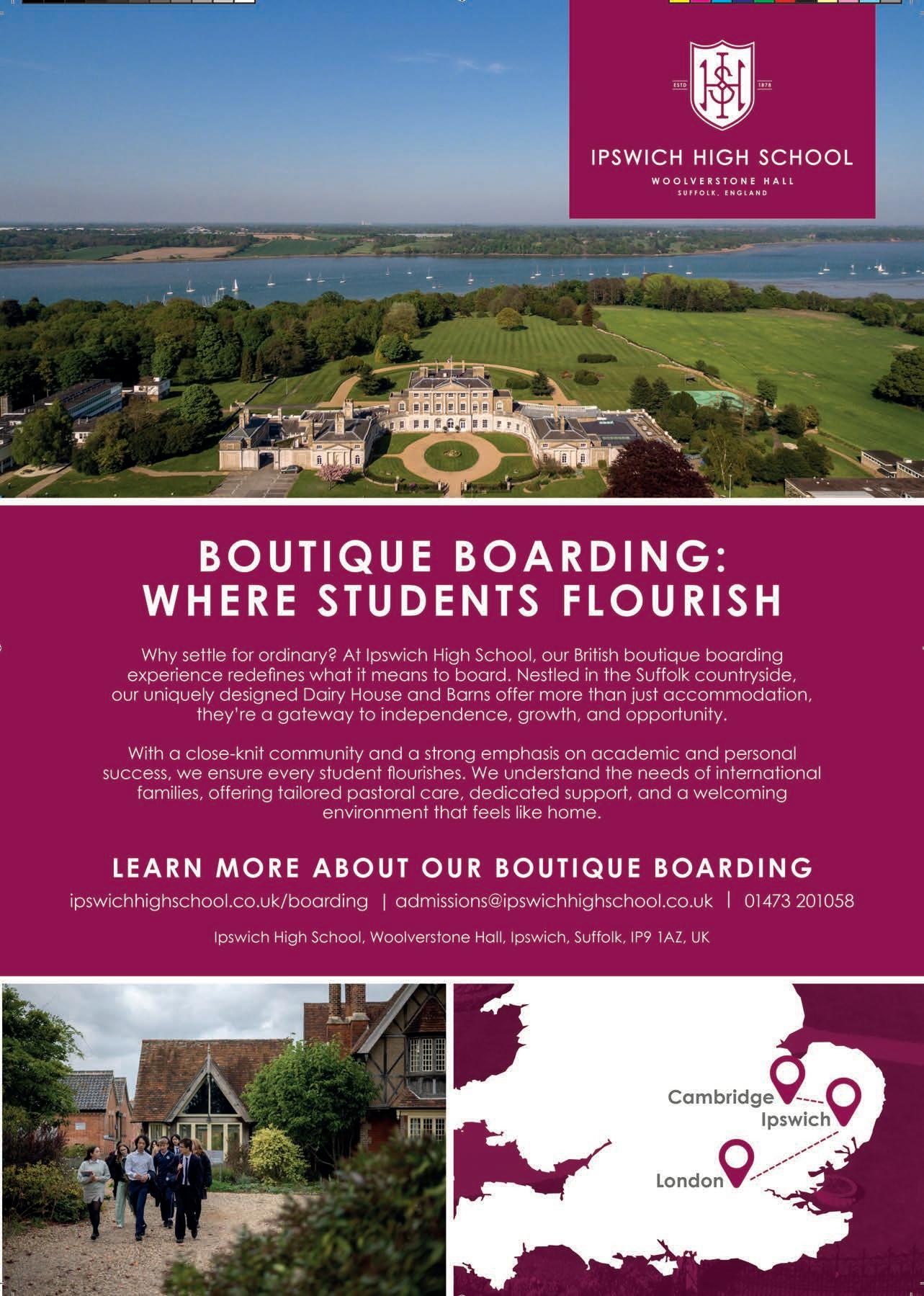
academic-asia.com
We are delighted to invite you to the UK School Expo & On-site Admissions on 15 February 2025 at the JW Marriott Hotel in Hong Kong. We are featuring over 20 famous UK boarding schools' delegates that are ready to meet you and conduct interviews.
The event will feature seminars hosted by esteemed headmasters, registrars, directors of admissions and representatives. Gain essential insights, tips for successful applications, and guidance on overcoming interview challenges. Don't miss out on this invaluable opportunity to navigate your educational journey effectively.
The AA Expo 2025 will take place at JW Marriott Hotel Hong Kong, Ballroom Level 3, Pacific Place, 88 Queensway, Hong Kong, on 15 February 2025
Register to join us: academic-asia.com

PRIOR PARK COLLEGE
Head: Martyn Beer
Location: Pontefract, West Yorkshire Ackworth School, established in 1779, is a prestigious independent Quaker school in West Yorkshire, England. O ering a well-rounded education for students aged 3 to 18, the school emphasises academic excellence, character development, and a strong sense of social responsibility, guided by our Quaker values of equality, peace, and integrity.
Head: Ben Figgis
Location: Ardingly, West Sussex Ardingly o ers a real choice of academic pathway to suit each individuals’s strengths. Our students can choose from 25 di erent A Level subjects or can take the IB Diploma. Whichever pathway they choose, our students’ results are among the best in the UK.
Head: Michael Hall
Location: Ashford, Kent Ashford School, established in 1898, is a co-educational day and boarding school for children aged 3 months to 18 years. The school is set in the heart of Kent in the south of England, providing excellent
transport links to Europe and the rest of the world. We have four boarding houses on site and enjoy the cultural diversity of students from more than 30 di erent countries. We o er an exceptional and inspiring education that promotes the happiness and success of all pupils.
Head: Tim Naylor
Location: Bath
We are a leading independent boarding and day college, with locations in central London, Bath and Liverpool. Established in 1974, we have almost 50 years’ experience of sending students to top universities in the UK and around the world. We take pride in our track record of excellence in delivering outstanding results in GCSE, A-levels, and University Foundation Programmes.
Head: James Hodgson
Location: Bedford, Bedfordshire Bedford School, awarded five stars in Fortune’s World Leading Boarding Schools 2023, seeks to raise good people first and foremost and then allows them to flourish as academics, sportsmen, artists and, above all, as themselves. Academic results and leavers’ destinations are excellent, with boys going to top UK and International universities.
Head: Josephine Velthoven
Location: Warminster, Wiltshire
Inspiring Futures Education is a group of international schools focused on preparing students for progression to leading boarding schools and universities. It comprises two schools – Bishopstrow College and Padworth College. Bishopstrow College is a year-round boarding school o ering English language and academic pathway programmes to prepare international students aged 7-17 years, for entry to the UK‘s top boarding schools.
Head: Jason Lewis
Location: Northampton, Northamptonshire
Education is a great responsibility and privilege. At Bosworth, we strive to grow well-educated, confident and resilient individuals who are ready to become future leaders. We put an emphasis on academics and extracurricular activities; a healthy balance creates well-rounded individuals ready to tackle the challenges of our everevolving world.
Head: Maria Coulter
Location: Poole, Dorset
Bournemouth Collegiate School is to discover brilliance in all of our pupils, helping them to achieve the extraordinary across personal, academic and professional endeavours. We are committed to educating and empowering pupils to make a positive di erence through building a culture of kindness, integrity, and respect. With a well-equipped school campus, we allow our student to flourish not only in academic but also in other areas like Sports, Arts and Performing Arts.
Head: Karin Askham
Location: Cambridge
Cambridge School of Visual & Performing Arts is a dedicated creative and performing arts school with campuses in the centre of Cambridge and London. We o er Diploma, Foundation, undergraduate and postgraduate courses across Art & Design, Fashion, Music and Performing Arts.
Head: Gareth Collier (Director)
Location: Cardi and Cambridge
Top academic school in the UK over the past 13 years. 14 o ers to Oxbridge for 2024 entry; 91% A*-A and 100% A*-B at A level. Unlike traditional boarding schools which rely on long histories and heritage, here at Cardi we look forward.
Head: Hugh McCormick
Location: Chesterton, Cambridge
At CATS Cambridge, we believe in nurturing academic excellence and fostering a supportive learning environment. Our dedicated faculty is committed to providing you with the highest quality education, tailored to your individual needs and aspirations. We challenge our students to reach their full potential by setting rigorous academic standards. Our goal is to equip you with the knowledge, skills, and critical thinking abilities necessary to succeed in your future endeavours.
Head: Gareth Pearson
Location: Brecon, Powys
Christ College Brecon is a small school with a big family feel, where the motto “They achieve because they believe they can” encourages self-confidence and a love of learning. With exceptional pastoral care, a warm welcome, and a small, compassionate community, pupils thrive in an environment where
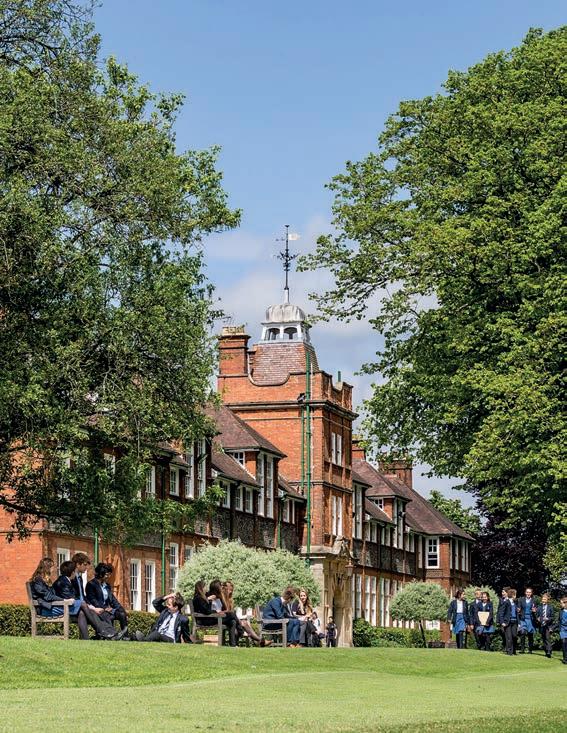
kindness, respect, and personal growth are at the heart of everything.
Head: Simon Reid
Location: Horsham, West Sussex
Christ’s Hospital opened in 1552 and is one of the oldest boarding schools in the UK. The school is well known for its outstanding education principle. While every fibre of the school is steeped in history, teaching takes place in 90 wellequipped classrooms. 98% of leavers go on to top universities.
Head: Dr Truss
Location: Shrewsbury, Shropshire
Concord College is a highly academic boarding school set in beautiful English countryside welcoming able students from across the globe. With exceptional facilities, outstanding examination results and 75 years of experience in helping international students access the best university courses in the UK and around the world, Concord is unique.
Head: John Davies
Location: Devizes, Wiltshire


Adventure is at the heart of a Dauntsey’s education - students are encouraged to push beyond their comfort zone and try new things. Jolie Brise is our very own tall ship which all students experience, teaching teamwork, resilience, bravery and leadership.
Head: David Game and John Dalton
Location: London
We are a leading independent boarding and day college, with locations in central London, Bath and Liverpool. Established in 1974, we have almost 50 years’ experience of sending students to top universities in the UK and around the world. We take pride in our track record of excellence in delivering outstanding results in GCSE, A-levels, and University Foundation Programmes.
Head: Sam Hart
Location: Settle, North Yorkshire
We have made the decision to absorb VAT on our school fees rather than passing it to families, while still delivering the same high quality of education. At Giggleswick, every student embarks on a personalised learning journey.
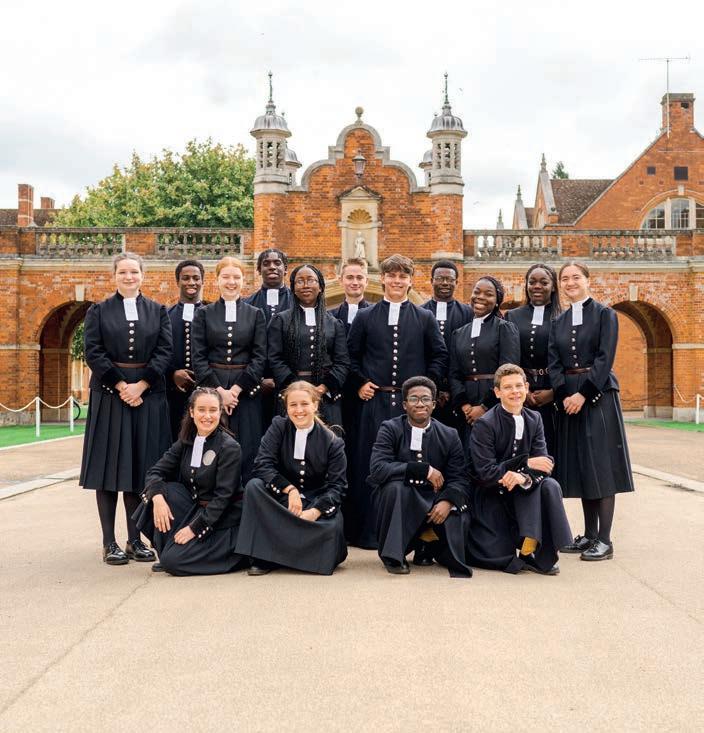
Our tailored pathways ensure each individual’s strengths, aspirations, and interests are nurtured, providing a flexible and supportive framework that prepares them for success in their chosen fields. From bespoke academic support to diverse cocurricular options, we focus on unlocking every pupil’s full potential.
Head: Carmel O’Dolan
Location: London
At Guildhouse School, we encourage creative ideas to flourish and students to be empowered to pioneer. Being in the heart of London means we can draw on the world’s most successful centre of commerce. We are proud to have the first Bloomberg Lab in Europe in a high school setting and actively encourage every student to develop an entrepreneurial spirit through our year-round programme of business inspired activities.
Head: Stephen Burley
Location: Warwick, Warwickshire
Our focus is on knowing and supporting each of our girls, and o ering each one superb teaching, to ensure outstanding public examination results year on year, and exciting destinations beyond A Level. Whatever a girl’s ambitions may be, we work in partnership to fulfil them: her journey is our journey. We ensure to o er our girls a huge range of co-curricular opportunities in order to harness their strengths and interests, whatever they may be. We share a campus with Warwick School and our students enjoy the best of both worlds — outstanding single sex teaching with a shared sixth form centre with the boys at Warwick and the opportunity to work and socialise together across a range of projects.
Head: Damian Henderson
Location: Castletown, Isle of Man
Founded in 1833 on the beautiful Isle of Man, King William’s College is a coed independent boarding school (ages 1118). With a rich history, we excel as one of the longest-standing International Baccalaureate schools in the British Isles. Our students consistently secure placements in top universities across the UK, Europe, and the USA.
Head: Victoria Bligh (Director)
Location: Liverpool
LILA* Liverpool in was founded in 2004 and grew to be one of the leading independent English Language schools with a globally recognised brand and reputation. 3 years ago, LILA* launched their ISI top-rated A Level and University Foundation Programmes at their modern, city centre campus in Liverpool.
Head: Andy Kemp
Location: Coventry, Warwickshire
At NatMatSci, we provide a nurturing environment for young mathematicians and scientists aiming for top universities. With 84.5% A*/A in A levels and 14 Oxbridge places this year (including Medicine), we foster future STEM leaders. Meet us in Hong Kong to explore how we can support your child’s academic goals.
Head: Crispin Dawson
Location: Reading, Berkshire
Inspiring Futures Education is a group of international schools focused on preparing students for progression to leading boarding schools and universities. It comprises of two schools – Bishopstrow College and Padworth College. Padworth College specialises in GCSE, A Level and university foundation programmes, preparing students aged 14-19 years for university entry.
Head: Ben Horan
Location: Bath, Somerset
At Prior Park, every child is known, valued, and cared for. Students are encouraged to explore who they are and find the adult they wish to be. They emerge with a character that is well rounded, and an academic profile that allows them to make their next step in life with confidence – whatever that step might be.
Head: Jeremy Quartermain
Location: Fleetwood, Lancashire
Rossall is a traditional British boarding school that o ers pupils an outstanding, holistic education. The school is renowned for its academic excellence and its specialist programmes in Football, Golf, Performing Arts and Piano. Over 80% of its pupils go to Russell Group universities. The school has a very diverse community, with pupils predominantly from Britain but with over 57 nationalities represented, creating a vibrant, engaging and inclusive atmosphere.
Head: Benson Ferrari
Location: Bryn, Llanelli, Carmarthenshire
St. Michael’s School is one of the UK’s leading independent schools, consistently highly ranked yet remaining inclusive and committed to our mission of success for all students who join us. Our results are entirely a product of the pupil and teacher commitment to doing everything as best as we possibly can. Importantly, we always ensure our advice and guidance to parents puts the child’s needs first, so that they have the future that they deserve.
Head: James Thomas
Location: Sutton Valence, Kent Sutton Valence School is a coeducational day and boarding school for pupils aged 2-18, set in the heart of the Kent countryside. The School o ers outstanding academic tuition in a nurturing, community-focused environment. It has a vibrant boarding community, enjoying the benefit of rural living, but with easy access to London.
Head: James Barker
Location: Warwick, Warwickshire Warwick School is an outstanding academic school for boys located within easy reach of London and Birmingham. Through our future-facing teaching and our extensive programme of activities beyond the curriculum, we focus on equipping our pupils with the knowledge, qualification, the skills and the confidence to leave school prepared to face the challenges of a changing world and make a meaningful contribution. Our dedicated support and pathways includes specialised support for preparing for after school destinations, we aim to support as many of our pupils as possible to go onto their first choice destination when they leave us.
Head: Phillip Stapleton
Location: Barnstaple, Devon
Our leading day and boarding school for children aged 3-18 in Devon, UK, o ers a holistic education that nurtures mind, body, and spirit, ensuring rounded development, alongside rigorous academics. Located in a safe, picturesque countryside, our nurturing and professional sta create an ideal environment for academic excellence and personal growth.



Head: Ian Gross
Location: Canterbury, Kent The Worthgate School has been inspiring and empowering students for over 70 years. Our campus is nestled in a leafy corner of historic Canterbury. Student welfare is central to our ethos; we provide a stimulating and inclusive environment that goes beyond the classroom. Our friendly sta provide each student with a home away from home and we were proud to be rated ‘fully compliant’ in all areas covering boarding, welfare, achievement and results, curriculum, extra activities, pastoral care, leadership, and teaching.
Head: Dale McMorran
Location: Wymondham, Norfolk Wymondham College is a worldclass state day and boarding school. Graded ‘Outstanding’ by Ofsted, it occupies a beautiful 83-acre site in rural Norfolk where students from ages 11 to 18 can live and learn. Our academic outcomes are amongst the very highest nationally complemented by a broad and extensive enrichment programme.



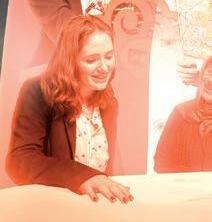
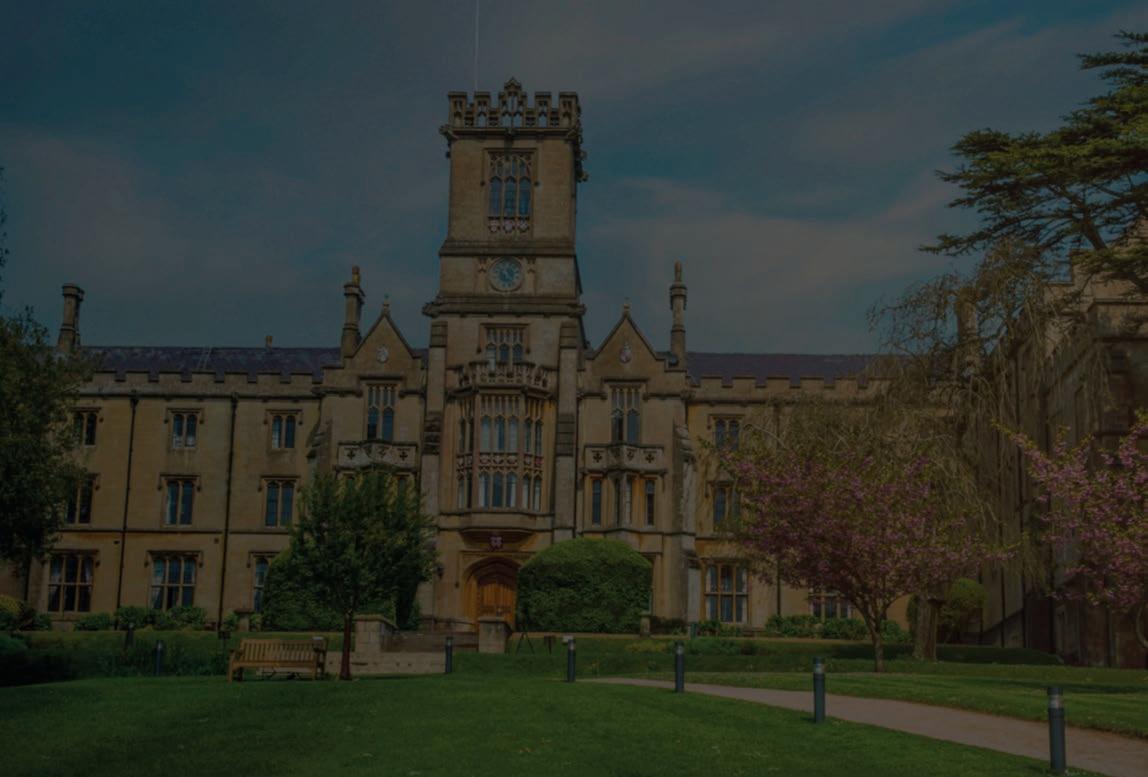

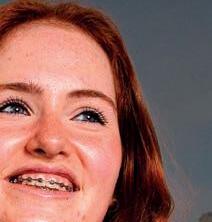



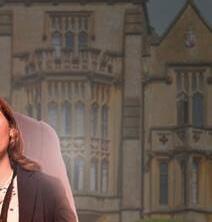

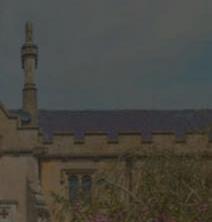
Renowned



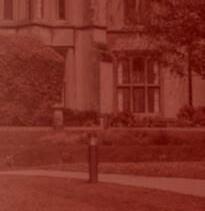
To






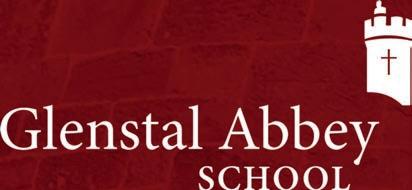


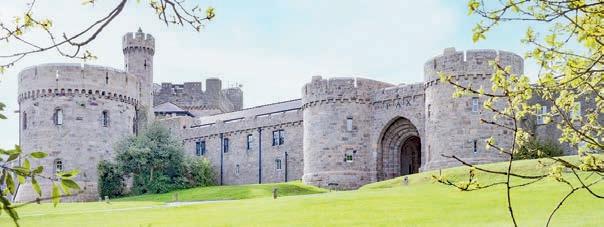


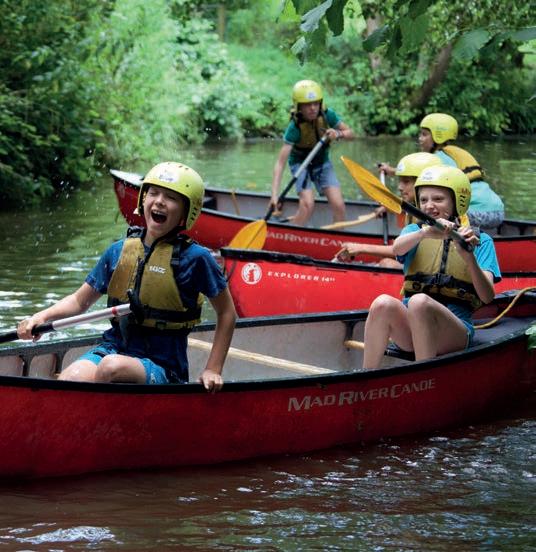
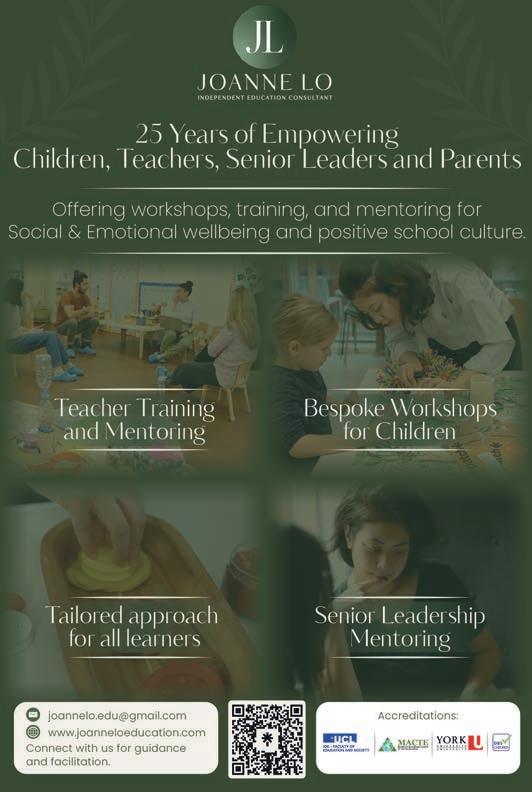



















































































seconds with 60
The Head of King Edward’s, Witley on her background and educational philosophy
What is your background?
I love learning and as a pupil I enjoyed the whole school experience. As my adoptive family were teachers or vicars, I always thought that I would never teach. However, I have now worked in schools for nearly 30 years, and I am married to a School Chaplain, so thankfully I was proved wrong. In my career, I have been privileged to work in amazing schools teaching drama, French, PSHE, English and RS. My understanding of holistic education really developed as a Housemistress at St Edward’s, Oxford before taking up the role of Deputy Principal, Pastoral, at Queenswood. This, in turn, led to me moving north to become Deputy Head at St Peter’s, York. I am now beginning my sixth year of headship here at King Edward’s, Witley.
What excites you most about your role?
Everything – the art of being with people, the art of the possible. My role is multifaceted, ever shifting. It demands mental agility, stamina, and creativity. Everyone has their own expectation of their Head, so I am always learning. Each day is di erent – sometimes familiar, but never dull or predictable. As Head of a Senior School, there is always the opportunity of seeing the positive, looking for the potential and making it happen.
What is your academic philosophy?
Education is transformative not just for the here and now in school, but for the future. We work hard to enable our pupils to be excellent learners, but we are also mindful that we are equipping them for the possibility of being kind and responsible parents, employees, entrepreneurs, inventors or leaders. Every child has the potential for doing great and good things. As schools, we must aim to ignite ambition and inspire hope.
Can you tell us about one pivotal moment in your career?
Directing a play at a prep school early in my career confirmed to me that working

with children was exciting, creative and worthwhile. Seeing the pupils’ joy on their first night, and their sense of achievement, was pivotal in my thinking with regards to my future path.
What is your school’s approach and what sets it apart?
This is a unique school – every Head will say that, I am sure. We belong to the royal, ancient and religious Bridewell Royal Hospital Foundation, of which I am Principal, with deep-rooted compassion, and a commitment to inclusion and diversity at its core. Our strong historical link with the City of London combines with our location in the beautiful Surrey Hills and demonstrates the span of our character. It holds so much breadth in one space as a brilliant community of grounded, caring all-rounders.
What makes a great student?
Enthusiasm, curiosity, kindness and a willingness to think well.
From your experience, what makes a great school environment?
Teamwork – the people, sta , pupils, parents – who share values and a common approach to being child-centred. The ability to be creative and agile in thinking combining with the opportunity to be authentic in caring and communication.
Great schools are able to laugh together as well as learn together. People who know themselves well, and can be reflective, are often the most progressive teachers. For me, a strong foundation, high ambitions and deep care for the individual pupil experience make the best school environment.
“Every child has the potential for doing great and good things – as schools we must aim to ignite ambition and inspire hope”

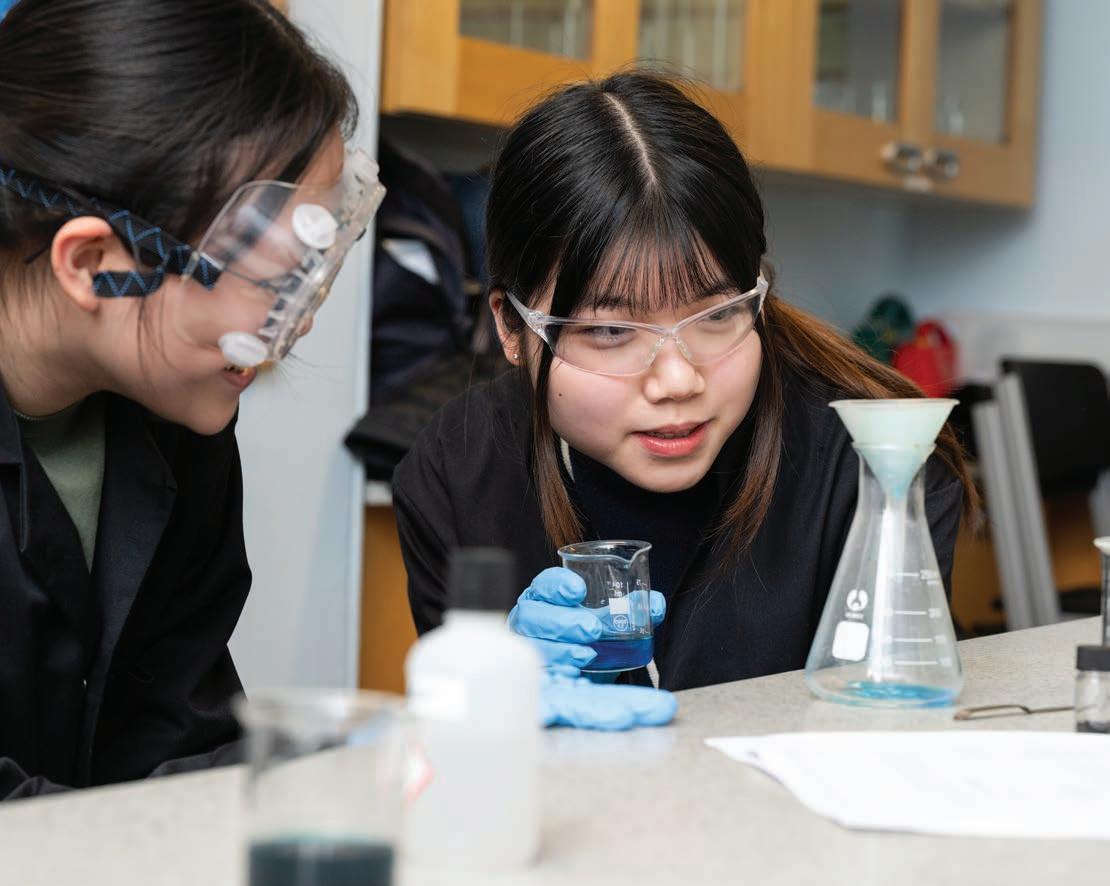
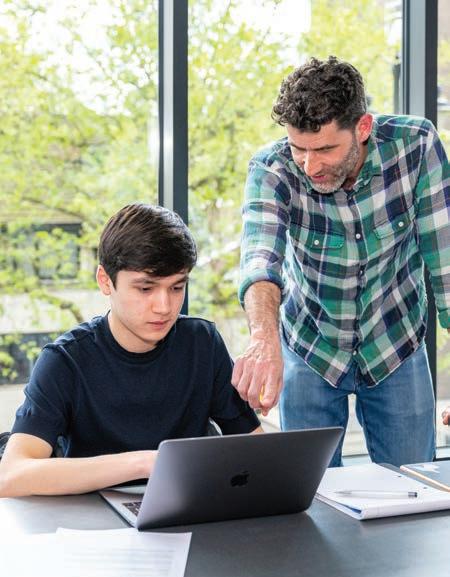
Colleges in London, Birmingham and Cambridge
A level, GCSE, University Foundation
Great university progression
1:1 support tuition
70% UK students / 30% International
Boarding facilities within walking distance
MPW was not just a school to me but also a home where I felt comfortable being myself. I can con dently say that MPW teachers are the most eminent life mentors. ey would guide and support us academically and psychologically. It would not have been possible for me to achieve anything like being the Head of the Student Council or receiving good A level results without them.